Cookies on GOV.UK
We use some essential cookies to make this website work.
We’d like to set additional cookies to understand how you use GOV.UK, remember your settings and improve government services.
We also use cookies set by other sites to help us deliver content from their services.
You have accepted additional cookies. You can change your cookie settings at any time.
You have rejected additional cookies. You can change your cookie settings at any time.
- Passports, travel and living abroad
- Travel abroad
- Foreign travel advice
Before you travel check that:
- your destination can provide the healthcare you may need
- you have appropriate travel insurance for local treatment or unexpected medical evacuation
This is particularly important if you have a health condition or are pregnant.

Emergency medical number
Dial 1669 and ask for an ambulance.
Contact your insurance or medical assistance company promptly if you’re referred to a medical facility for treatment.
Vaccinations and health risks
At least 8 weeks before your trip check:
- the latest information on vaccinations and health risks in TravelHealthPro’s Thailand guide
- where to get vaccines and whether you have to pay on the NHS travel vaccinations page
Health risks in Thailand include:
- dengue fever
See the ‘Other risks’ section of the TravelHealthPro Thailand guide for more on health risks .
To avoid mosquito-borne viruses, such as dengue fever and Zika virus, take steps to avoid being bitten by mosquitoes.
Air quality
There can be high levels of air pollution in large cities. This includes Bangkok and Chiang Mai, which are also affected by seasonal regional smoke haze from the burning of trees. The high pollution and particulate count sometimes reach dangerous levels. This may worsen bronchial, sinus or asthma conditions.
Check air quality levels for many cities on the World Air Quality Index website .
The legal status and regulation of some medicines prescribed or bought in the UK can be different in other countries.
Hospitals and pharmacies across Thailand will usually accept UK prescriptions. Brand name medication can often be more expensive than locally produced medication.
Medication sold on the street may not be genuine or may have been stolen. Taking medication without medical advice or a prescription can have serious health consequences.
Read best practice when travelling with medicines on TravelHealthPro . The NHS has information on whether you can take your medicine abroad .
Healthcare facilities in Thailand
FCDO has a list of English-speaking doctors in Thailand . All hospitals require guarantee of payment before treating patients. Make sure you have adequate health insurance.
Private hospitals in Thailand are of a high standard but can be expensive. Public hospitals and clinics do not always meet UK standards, particularly outside Bangkok.
COVID-19 healthcare in Thailand
Check the latest information on risk from COVID-19 risk for Thailand on TravelHealthPro .If you have severe symptoms, or any questions related to COVID-19, while in Thailand, call the Thai COVID-19 Hotline on 1422. There is more information on the PR Thai Government Facebook page .
Travel and mental health
Read FCDO guidance on travel and mental health . There is also mental health guidance on TravelHealthPro .
Related content
Is this page useful.
- Yes this page is useful
- No this page is not useful
Help us improve GOV.UK
Don’t include personal or financial information like your National Insurance number or credit card details.
To help us improve GOV.UK, we’d like to know more about your visit today. We’ll send you a link to a feedback form. It will take only 2 minutes to fill in. Don’t worry we won’t send you spam or share your email address with anyone.
All material herein © 2021 Entry Thailand. All Rights Reserved. Infrastructure Power by GDCC.
“The Land of Smiles.”
Entry requirements, from 1 july 2022, arrival and during the stay.
Contain informations, news, related websites and applications for travelers on arrival and during the stay in the Kingdom of Thailand
Before Leave
Contain informations, news, related websites and applications for travelers before leaving the Kingdom of Thailand
Before Arrival
Contain informations, news, related websites and applications for travelers before entering the Kingdom of Thailand
Traveller's Journey to Thailand.
Thailand’s entry requirements from 1 July 2022 Thailand Pass removed, Also lifting an US$10,000 health insurance requirement, thus welcoming all travellers with proof of either a certificate of vaccination or a pre-arrival negative RT-PCR or professional ATK test result.
Informations & Documents
Informations and Documents for Entering The Kingdom of Thailand
Hotel Booking
SHA/SHA+ Booking
COVID-19 Insurance Service
Thailand Pass
Thailand Pass Registration System (for air travel only)
Download MorChana for iOS and Android
Flight Status
Real-time in-depth flight information
Suvarnabhumi Airport
Don Mueang International Airport
Phuket International Airport
Chiang Mai International Airport
Mae Fah Luang – Chiang Rai International Airport
Hat Yai International Airport
OTOP Nawatwithi tourism nationwide
Nawatwithi Community-based Tourism Program
OTOP Shopping Mall
National Park Reservation
Thai Health Pass
Health Declaration Form (T.8) of Yellow Fever for Entry to Kingdom of Thailand
Travel Link
Sawasdee by AOT
SAWASDEE by AOT Application
THAI E-VISA
THAI E-VISA OFFICIAL WEBSITE
Area of Yellow Fever Virus
Thailand Information
Curabitur mollis bibendum luctus. Duis suscipit vitae dui sed suscipit. Vestibulum auctor nunc vitae diam eleifend, in maximus metus sollicitudin. Quisque vitae sodales lectus.
Cultural Calendar
Weather warning, thai disaster alert application ios.
Thai disaster alert Mobile Application
The Fine Arts Department
Thai disaster alert application android, tourism and sports volunteer (tsv), unseen heritage.
VR Unseen Heritage
Smart Museum
Virtual Museum
Virtual Historical Park
Railway Ticket Booking
Train tracking system
Sports publication
Thailand Travel Safety
contact channels for assistance
Red line station State Railway of Thailand
Bus lines of bangkok mass transit authority.
Thailand Tourism Directory
Tourist Police i lert u Application (Android)
Tourist Police i lert u
Thailand Privilege Card
Privilege Entry Visa
Reservation Home & Camp
National Park Office
VAT Refund for Tourists
Thailand vrt application.
Getting your VAT refund for tourists in Thailand faster and easier
Register your Airline
E-workforce ecosystem, thailand reopening.
Numbers of Country which eligible to travel to the Kingdom of Thailand and the Number of Travelers’ Statistics
(Test&Go, Sandbox, Quarantine)
Update 22/12/2021.
Update April 12, 2024
Information for u.s. citizens in the middle east.
- Travel Advisories |
- Contact Us |
- MyTravelGov |
Find U.S. Embassies & Consulates
Travel.state.gov, congressional liaison, special issuance agency, u.s. passports, international travel, intercountry adoption, international parental child abduction, records and authentications, popular links, travel advisories, mytravelgov, stay connected, legal resources, legal information, info for u.s. law enforcement, replace or certify documents.
Before You Go
Learn About Your Destination
While Abroad
Emergencies
Share this page:
Travel Advisory July 24, 2023
Thailand - level 1: exercise normal precautions.
Reissued with obsolete COVID-19 page links removed.
Exercise normal precautions in Thailand. Some areas have increased risk. Read the entire Travel Advisory.
Reconsider travel to:
- Yala, Pattani, Narathiwat, and Songkhla provinces due to civil unrest associated with ongoing insurgent activities.
Read the country information page for additional information on travel to Thailand.
If you decide to travel to Thailand:
- Enroll in the Smart Traveler Enrollment Program (STEP) to receive Alerts and make it easier to locate you in an emergency.
- Follow the Department of State on Facebook and Twitter .
- Review the Country Security Report for Thailand.
- Have evacuation plans that do not rely on U.S. government assistance.
- Visit the CDC page for the latest Travel Health Information related to your travel.
- Prepare a contingency plan for emergency situations. Review the Traveler’s Checklist .
Yala, Pattani, Narathiwat, and Songkhla Provinces – Level 3: Reconsider Travel
Periodic violence directed mostly at Thai government interests by a domestic insurgency continues to affect security in the southernmost provinces of Yala, Pattani, Narathiwat, and Songkhla. In Songkhla, the insurgency is most active in the districts of Chana, Thepha, Nathawat, and Saba Yoi. U.S. citizens are at risk of death or injury due to the possibility of indiscriminate attacks in public places.
The U.S. government has limited ability to provide emergency services to U.S. citizens in these provinces as U.S government employees must obtain special authorization to travel to these provinces.
Visit our website for Travel to High-Risk Areas .
Embassy Messages
View Alerts and Messages Archive
Quick Facts
6 months from date of entry required
One page is required per entry stamp; please note endorsement pages are not considered blank passport page
No, if your stay is less than 30 days
Yellow fever may be required if arriving from certain countries with yellow fever
Embassies and Consulates
U.S. Embassy Bangkok 95 Wireless Road Bangkok 10330 Thailand Telephone: + (66) (2) 205-4049, 02-205-4049 (within Thailand) Emergency After-Hours Telephone: +(66) (2) 205-4000, 02-205-4000 (within Thailand) Fax: +(66) (2) 205-4103, 02-205-4103 (within Thailand) Email: [email protected]
CONSULATE
U.S. Consulate General Chiang Mai 387 Witchayanond Road Chiang Mai 50300 Thailand Telephone: +(66) (53) 107-777, 053-107-777 (within Thailand) Emergency After-Hours Telephone: +(66) 81-881-1878, 081-881-1878 (within Thailand) Fax: +(66) (53) 252-633, 053-252-633 (within Thailand) Email: [email protected]
Destination Description
Learn about the U.S. relationship to countries around the world.
Entry, Exit and Visa Requirements
Visit the Royal Thai Embassy website for the most current visa information.
- U.S. citizen tourists entering Thailand for fewer than 30 days do not require a visa.
- We strongly recommend that your passport be valid for at least six months beyond the date of your arrival in Thailand to avoid possible denied entry.
- Thai immigration officials or airline staff may ask for your onward/return ticket.
- Business travelers, U.S. government employees travelling on official business, teachers, retirees, and those planning to stay longer than 30 days should check with the Royal Thai Embassy about visa requirements .
- If you overstay your visa, you will be fined. Depending on the length of overstay, you may also be arrested, detained, deported at your own expense, and banned from re-entering Thailand.
We strongly recommend you carry a copy of your U.S. passport identification page and current Thai visa to help avoid detention by the Thai immigration police.
Thailand’s entry/exit information is subject to change without notice. For the most current information, please see The Royal Thai Police Immigration Bureau .
You can find detailed information on vaccinations and other health precautions on the CDC website .
HIV/AIDS Restrictions: Some HIV/AIDS entry restrictions exist for visitors to and foreign residents of Thailand. However, these restrictions are generally not enforced. Please verify this information with the Royal Thai Embassy before you travel.
Find information on dual nationality , prevention of international child abduction and customs regulations on our websites.
COVID-19 Requirements: There are no COVID-related entry requirements for U.S. citizens.
Safety and Security
Terrorism: Terrorist groups and those inspired by such organizations are intent on attacking U.S. citizens abroad. Terrorists are increasingly using less sophisticated methods of attack – including knives, firearms, and vehicles – to more effectively target crowds. Frequently, their aim is unprotected or vulnerable targets, such as:
- High-profile public events (sporting contests, political rallies, demonstrations, holiday events, celebratory gatherings, etc.)
- Hotels, clubs, and restaurants frequented by tourists
- Places of worship
- Shopping malls and markets
- Public transportation systems (including subways, buses, trains, and scheduled commercial flights)
For more information, see our Terrorism page.
Periodic acts of violence in Thailand remain a concern. In August 2019, several small explosions and related arson events occurred in various locations throughout Bangkok resulting in no deaths but some injuries and minor property damage. Several small-scale bombings occurred near some tourist locations in the far Southern provinces in August 2016 and December 2018. In August 2015, an explosion near the Erawan Shrine in downtown Bangkok killed at least 20 people and injured more than 100. The U.S. Department of State assesses there is a continued risk of terrorism in Southeast Asia, including in Thailand.
If a protest or demonstration is expected to pass near the U.S. Embassy or Consulate facilities, Embassy and Consulate entrances and functions may be restricted. The U.S. Embassy in Bangkok’s website , Facebook, and Twitter sites and the U.S. Consulate General in Chiang Mai’s website , Facebook , and Twitter sites post information about local events that may affect Embassy functions. Enroll in the Smart Traveler Enrollment Program ( STEP ) to receive security and safety messages.
Far Southern Thailand: Periodic violence directed mostly at Thai government interests by a domestic insurgency continues to affect security in the southernmost provinces of Yala, Pattani, Narathiwat, and Songkhla. U.S. citizens are at risk of death or injury due to the possibility of indiscriminate attacks in public places. Martial law is in force in this region.
The U.S. government has limited ability to provide emergency services to U.S. citizens in these provinces. Travel to this region by U.S government employees must be reviewed and approved in advance. For more information on terrorist threats against U.S. citizens worldwide and steps to take as a result of these threats, please see the Worldwide Caution .
- Crimes of opportunity, such as pick-pocketing, bag-snatching, and burglary, occur in Thailand.
- Violent crimes against foreigners are relatively rare. However, murders, rapes, and assaults against foreigners do occur.
- Sexually motivated violence, committed by either Thai citizens or foreigners, is most likely to occur after time spent at bars, clubs, and parties, on beaches, or in remote/isolated areas. The Thai police response will differ from an investigation in the United States; investigating officials have publicly discredited people who have reported being the victim of crimes . In addition to making a report at the police jurisdiction in which the crime occurred, we advise contacting the Embassy and engaging a local attorney if you are a victim of an assault.
- When traveling alone, exercise caution, stay near other travelers, and ensure friends or family know how to contact you.
- Taxi and “tuk-tuk” drivers may attempt to charge excessive fares or refuse passengers. You should either request the driver use the meter or agree on the fare beforehand.
- At the airport use only public transportation from the airport’s official pick-up area, cars from the limousine counters, or a car from your hotel.
- Rental scams do occur in Thailand. Many rental motorbike, jet ski, and car companies will hold your passport until you pay for real or fictitious damages. We advise against using your passport as collateral.
- Exorbitant bar tab scams occur in Thailand. Some bars and entertainment venues will charge exorbitant prices for drinks or unadvertised cover charges and threaten violence if you don’t pay.
- Other scams involving gems, city tours, entertainment venues, and credit cards are common, especially in tourist areas.
International Financial Scams: See the Department of State and the FBI pages for information.
Internet romance and financial scams are prevalent in Thailand. Scams are often initiated through Internet postings/profiles or by unsolicited emails and letters. Scammers almost always pose as U.S. citizens who have no one else to turn to for help. Common scams include:
- Romance/Online dating
- Money transfers
- Grandparent/Relative targeting
- Free Trip/Luggage
- Work permits/job offers
Victims of Crime: U.S. citizen victims of crime are encouraged to contact the U.S. Embassy or Consulate for assistance. Report crimes to the local police by calling 191 or the Tourist Police at 1155 and contact the U.S. Embassy at +66 (0) 2-205-4049 or Consulate at +(66) (53) 107-777. Remember that only local officials have the authority to investigate and to prosecute a crime.
Domestic Violence: U.S. citizen victims of domestic violence are encouraged to contact the U.S. Embassy or Consulate for assistance. Report crimes to the local police by calling 191 or the Tourist Police at 1155 and contact the U.S. Embassy at +66 (0) 2-205-4049 or Consulate at +(66) (53) 107-777. Remember that only local officials have the authority to investigate and to prosecute a crime.
See our webpage on help for U.S. victims of crime overseas .
- Help you find appropriate medical care
- Assist you in reporting a crime to the police
- Contact relatives or friends with your written consent
- Explain the local criminal justice process in general terms
- Provide a list of local attorneys
- Provide our information on victim’s compensation programs in the U.S.
- Provide an emergency loan for repatriation to the United States and/or limited medical support in cases of destitution
- Help you find accommodation and arrange flights home
- Replace a stolen or lost passport
Tourism: The tourism industry is unevenly regulated, and safety inspections for equipment and facilities do not commonly occur. Hazardous areas/activities are not always identified with appropriate signage, and staff may not be trained or certified either by the host government or by recognized authorities in the field. In the event of an injury, appropriate medical treatment is typically available only in/near major cities. First responders are generally unable to access areas outside of major cities and to provide urgent medical treatment. U.S. citizens are encouraged to purchase medical evacuation insurance. See our webpage for more information on insurance providers for overseas coverage .
Local Laws & Special Circumstances
Criminal Penalties: You are subject to local laws. If you violate local laws, even unknowingly, you may be expelled, arrested, or imprisoned. Individuals establishing a business or practicing a profession that requires additional permits or licensing should seek information from the competent local authorities, prior to practicing or operating a business.
Furthermore, some laws are also prosecutable in the United States, regardless of local law. For examples, see our website on crimes against minors abroad and the Department of Justice website.
Arrest Notification: If you are arrested or detained, ask police or prison officials to notify the U.S. Embassy immediately. See our webpage for further information.
Conditions at the Bangkok Immigration Detention Center (IDC): Conditions in immigration detention centers (IDCs) where authorities detain foreign nationals who violate immigration laws remain poor and most are overcrowded. IDCs, administered by the Immigration Police Bureau, which reports to the Royal Thai Police (RTP), are not subject to many of the regulations that govern the regular prison system. U.S. citizen detainees often complain of stark, austere living conditions, overcrowding, and unhealthy conditions. Personal security is poor. In addition, the main IDC in Bangkok does not dependably provide adequate medical or mental health care. In 2019, two U.S. citizens died while in custody at the Bangkok IDC. Deportations are self-funded and it may take up to two weeks for Thai authorities to process a case before deportation. Detainees must have funds to purchase a phone card and do not have access to the internet. Prior approval and a security escort are required to visit a Western Union or an ATM machine.
- Please see the Immigration Act B.E. 1979 for more information about Thai Immigration violations.
- Please see the Department of State’s Report on Human Rights Practices for Thailand for further information.
Lèse majesté (Royal Insult): Thais hold the monarchy in the highest regard. Making a critical or defamatory comment about the royal family is punishable by a prison sentence of up to 15 years per offense. As an example, purposely tearing Thai bank notes, which carry an image of the King, may be considered a lèse majesté offense.
- Prostitution is illegal in Thailand. Serious consequences include criminal conviction and imprisonment, particularly in the case of child prostitution.
- Commercial surrogacy is banned.
- Personal use of even non-lethal military equipment, such as protective vests and night vision scopes, is prohibited.
- Illegal drugs carry severe penalties. Expect long jail sentences under harsh conditions, heavy fines, or even execution for possessing, using, or trafficking in illegal drugs.
- Shoplifting can result in large fines and lengthy detention followed by deportation.
- Domestic Issues: Local police are reluctant to become involved in domestic issues. You may call the Family Services Emergency hotline by dialing 1300 from any Thai phone.
- Possessing counterfeit or pirated goods is a crime in Thailand. For more information see the intellectual property section of the U.S. Department of Justice website .
Customs may enforce strict regulations on Buddha images, firearms, bullets and/or bullet casings, bullet-proof vests, night vision devices and other para-military type equipment, explosives, drugs, radios, books, and recordings, which might be cultural property and/or considered harmful to the public interest.
Faith-Based Travelers: See the following webpages for details:
- Faith-Based Travel Information
- International Religious Freedom Report – see country reports
- Human Rights Report – see country reports
- Hajj Fact Sheet for Travelers
- Best Practices for Volunteering Abroad
LGBTI Travelers: There are no known legal restrictions on same-sex sexual relations or the organization of LGBTI events in Thailand. However, LGBTI groups report that in the case of sexual crimes, police tend to downplay sexual abuse claims from LGBTI victims.
See our LGBTI Travel Information page and section 6 of our Human Rights report for further details.
Travelers Who Require Accessibility Assistance. Sidewalks and street crossings are not suitable for travelers with mobility issues. Newly constructed buildings, facilities, and transportation equipment should be accessible by law for persons with mobility issues. However, enforcement of these provisions is not uniform.
Students: See our Students Abroad page and FBI travel tips .
Women Travelers: Some victims of sexual assault or domestic violence find that Thai authorities do not handle such cases with as much sensitivity or consideration for privacy as they would expect in the United States. See our travel tips for Women Travelers .
Ambulance services are:
- not present throughout the country or are unreliable in most areas except for Bangkok and other major cities.
- Injured or seriously ill travelers may prefer to take a taxi or private vehicle to the nearest major hospital rather than wait for an ambulance.
Medical treatment is generally adequate in Thailand’s urban areas. In Bangkok, Chiang Mai, Phuket, and Pattaya, good facilities exist for routine, long-term, and emergency health care. Basic medical care is available in rural areas, but English-speaking providers are rare.
Medical tourism is an established and rapidly growing industry. You should consult with your local physician before traveling and also refer to information on medical tourism from CDC.
We do not pay medical bills. Be aware that U.S. Medicare/Medicaid does not apply overseas. Most hospitals and doctors overseas do not accept U.S. health insurance.
Medical Insurance: Make sure your health insurance plan provides coverage overseas. Most care providers overseas only accept cash payments. See our webpage for more information on insurance providers for overseas coverage. Visit the U.S. Centers for Disease Control and Prevention for more information on type of insurance you should consider before you travel overseas.
We strongly recommend supplemental insurance to cover medical evacuation.
Medicine for personal use is allowed as long as the amount does not exceed a 30-day supply and you bring the medicine with you. Do not mail medicine to Thailand without first confirming it will be allowed into the country.
If traveling with prescription medication, check with Thailand Customs and the Thailand Food and Drug Administration to ensure the medication is legal in Thailand. Always, carry your prescription medication in original packaging with your doctor’s prescription.
The following diseases are present:
- Chikungunya
- Japanese encephalitis
- Tuberculosis:
- Hepatitis A and B
- Melioidosis
Vaccinations: Be up-to-date on all vaccinations recommended by the U.S. Centers for Disease Control and Prevention.
Further health information:
- World Health Organization
- U.S. Centers for Disease Control and Prevention (CDC)
Air Quality: The air quality in Thailand varies considerably and fluctuates with the seasons, but seasonal smog is a problem. In recent years the air quality in Bangkok, Chiang Mai, Khon Kaen, Lampang, Nan, and Samut Sakhon have exceeded Thai and U.S. government daily standards for fine particulate matter (PM 2.5) for a portion of the year. In Chiang Mai and other northern provinces, annual agricultural burning, approximately February through late April, and forest fires cause days with unhealthy to hazardous air quality based on the U.S. index. In Bangkok environs, airborne dust and auto pollutants are prevalent in the cooler, dry period (December-February). Anyone who travels where pollution levels are high is at risk. People at the greatest risk from air pollution exposure include:
- Infants, children, and teens
- People over 65 years of age
- People with lung disease such as asthma and chronic obstructive pulmonary disease (COPD), which includes chronic bronchitis and emphysema;
- People with heart disease
- People who work or are active outdoors
For Bangkok and Chiang Mai, U.S. Mission Thailand is reporting the U.S. EPA’s Air Quality Index (AQI) calculated from PM2.5 data captured by monitors owned and maintained by the Royal Thai Government. The information and advice on health protection measures to take is available
Visit AirNow Department of State for information on air quality at U.S. Embassies and Consulates.
The U.S. Embassy maintains a list of doctors and hospitals . We do not endorse or recommend any specific medical provider or clinic.
Health facilities in general:
- Adequate health facilities are available in Bangkok and other major cities but health care in rural areas may be below U.S. standards.
- Hospitals and doctors require payment “up front” prior to service or admission. Credit card payment is not always available.
- Medical staff at public hospitals may speak little or no English.
- Patients bear all costs for transfer to or between hospitals.
- Psychological and psychiatric services are limited, even in the larger cities, with hospital-based care only available through government institutions.
Medical Tourism and Elective Surgery:
- Medical tourism is a rapidly growing industry. People seeking health care overseas should understand that medical systems operate differently from those in the United States and are not subject to the same rules and regulations. Anyone interested in traveling for medical purposes should consult with their local physician before traveling and visit the U.S. Centers for Disease Control and Prevention website for more information on Medical Tourism.
- We strongly recommend supplemental insurance to cover medical evacuation in the event of unforeseen medical complications.
- Your legal options in case of malpractice are very limited in Thailand.
- Although Thailand has many elective/cosmetic surgery facilities that are on par with those found in the United States, the quality of care varies widely. If you plan to undergo surgery in Thailand, make sure that emergency medical facilities are available and professionals are accredited and qualified.
Pharmaceuticals:
- Exercise caution when purchasing medication overseas. Pharmaceuticals, both over the counter and requiring prescription in the United States, are often readily available for purchase with little controls. Counterfeit medication is common and may prove to be ineffective, the wrong strength, or contain dangerous ingredients. Medication should be purchased in consultation with a medical professional and from reputable establishments.
- U.S. Customs and Border Protection and the Food and Drug Administration are responsible for rules governing the transport of medication back to the United States. Medication purchased abroad must meet their requirements to be legally brought back into the United States. Medication should be for personal use and must be approved for usage in the United States. Please visit the U.S. Customs and Border Protection and the Food and Drug Administration websites for more information.
Assisted Reproductive Technology and Surrogacy:
- If you are considering traveling to Thailand to have a child through use of assisted reproductive technology (ART) or surrogacy, please see our ART and Surrogacy Abroad page .
- Surrogacy is illegal for foreigners in Thailand, subject to complex local regulation. For additional information, visit the Government of Thailand’s website for information on foreigner surrogacy.
- If you decide to pursue parenthood in Thailand via assisted reproductive technology (ART) with a gestational mother, be prepared for long and unexpected delays in documenting your child’s citizenship. Be aware that individuals who attempt to circumvent local law risk criminal prosecution.
Water Quality:
- In many areas, tap water is not potable. Bottled water and beverages are generally safe, although you should be aware that many restaurants and hotels serve tap water unless bottled water is specifically requested. Be aware that ice for drinks may be made using tap water.
Adventure Travel:
- Visit the U.S. Centers for Disease Control and Prevention website for more information about Adventure Travel .
COVID-19 Testing: For the most current list of COVID-19 testing locations in Thailand approved by the Ministry of Public Health, please visit: http://service.dmsc.moph.go.th/labscovid19 . Testing is paid for by U.S. citizens.
The Ministry of Public Health provides a list of 44 laboratories approved to conduct COVID-19 testing found here .
Please Note : Same-day Covid-19 testing is available at most private hospitals throughout Thailand. Please reference this list of testing locations and contact the provider directly to inquire about COVID-19 testing options, scheduling, cost, and other information.
COVID-19 Vaccines: The COVID-19 vaccine is available for U.S. citizens to receive in Thailand. According to Thai authorities, both private and public hospitals are providing COVID-19 vaccines. More information on a list of hospitals in Thailand is available here .
The Bang Rak Vaccination and Health Center, the Institute of Dermatology, and the Bamrasnaradura Infectious Diseases Institute are currently providing free bivalent vaccines to non-Thai citizens on a walk-in basis.
Visit the FDA's website to learn more about FDA-approved vaccines in the United States.
Travel and Transportation
Road Conditions and Safety:
- Traffic accidents are common in Thailand. According to the World Health Organization , in 2018, Thailand had one of the world’s highest traffic-related fatality rates. Bangkok and some parts of Chiang Mai have heavy traffic.
- Reckless driving: Speeding, reckless passing, and failure to obey other traffic laws are common in all regions of Thailand. Traffic moves on the left. Some drivers move illegally against the traffic. Scooters and motorbikes commonly drive on the sidewalks during rush hour and other periods of heavy traffic. Commercial drivers commonly consume alcohol, amphetamines, and other stimulants.
- Accidents involving motorcycles can be deadly . Riders may incur serious injuries when they are not wearing helmets or proper clothing and footwear. According to the World Health Organization, in 2016, 74 percent of traffic fatalities involved riders of 2-and 3-wheeled vehicles. Use of motorcycle helmets is mandatory, but this law is sporadically enforced.
- Use a pedestrian bridge to cross the road where one is available, including in front of the U.S. Embassy on Wireless Road and on Sukhumvit Road, where many pedestrians have been killed and several U.S. citizens seriously injured. Look carefully in both directions before crossing streets, even when using a marked crosswalk.
- If you have a traffic accident, you should contact your insurance company for guidance in dealing with the other party and the police.
- Emergency vehicles: Congested roads and a scarcity of ambulances can make it difficult for accident victims to receive timely medical attention
Traffic Laws:
- Driving under influence is punishable by law . If you are found to be intoxicated, you could be jailed for a minimum of two years and subject to a fine.
- Bribes are illegal. If you are found guilty, you could be imprisoned up to five years, face severe fines, or both.
- Lack of ID.
- Not obeying traffic laws and traffic signals.
- Driving slowly in regular lanes of traffic.
- If you are involved in a traffic accident, you should contact your auto insurance company for guidance .
Public Transportation:
- Mass transit: In Bangkok, the BTS elevated "Skytrain," “Airport Rail Link” mass transit, and the underground MRT systems are reliable, inexpensive, air conditioned, and often faster than Bangkok traffic.
- Bus system: Bangkok also has an extensive bus system, but buses can be overcrowded and are often driven with little or no regard for passenger safety.
- For hire vehicles: Cities outside of Bangkok typically have only rudimentary public transportation and usually do not have metered taxis. In many cases, motorcycle taxis, tuk-tuks, bicycle-powered rickshaws, and pick-up trucks will be the only options available for travelers without their own transport.
- Smartphone-based for-hire vehicle service exist in Bangkok and other large cities. Those affiliated with registered taxis, such as Grab Taxi, Line Taxi, and All Thai Taxi are legal, but their affiliated car services are under legal review.
See our Road Safety page for more information.
Aviation Safety Oversight: The U.S. Federal Aviation Administration (FAA) has assessed the government of Thailand’s Civil Aviation Authority as not being in compliance with International Civil Aviation Organization (ICAO) aviation safety standards for oversight of Thailand’s air carrier operations. Further information may be found on the FAA’s safety assessment page .
Maritime Travel: Mariners planning travel to Thailand should also check for U.S. maritime advisories and alerts . Information may also be posted to the U.S. Coast Guard homeport website , and the NGA broadcast warnings .
For additional travel information
- Enroll in the Smart Traveler Enrollment Program (STEP) to receive security messages and make it easier to locate you in an emergency.
- Call us in Washington, D.C. at 1-888-407-4747 (toll-free in the United States and Canada) or 1-202-501-4444 (from all other countries) from 8:00 a.m. to 8:00 p.m., Eastern Standard Time, Monday through Friday (except U.S. federal holidays).
- See the State Department’s travel website for the Worldwide Caution and Travel Advisories .
- Follow us on Twitter and Facebook .
- See traveling safely abroad for useful travel tips.
Review information about International Parental Child Abduction in Thailand . For additional IPCA-related information, please see the International Child Abduction Prevention and Return Act ( ICAPRA ) report.
Travel Advisory Levels
Assistance for u.s. citizens, thailand map, learn about your destination, enroll in step.

Subscribe to get up-to-date safety and security information and help us reach you in an emergency abroad.
Recommended Web Browsers: Microsoft Edge or Google Chrome.
Make two copies of all of your travel documents in case of emergency, and leave one with a trusted friend or relative.
Afghanistan
Antigua and Barbuda
Bonaire, Sint Eustatius, and Saba
Bosnia and Herzegovina
British Virgin Islands
Burkina Faso
Burma (Myanmar)
Cayman Islands
Central African Republic
Cote d Ivoire
Curaçao
Czech Republic
Democratic Republic of the Congo
Dominican Republic
El Salvador
Equatorial Guinea
Eswatini (Swaziland)
Falkland Islands
France (includes Monaco)
French Guiana
French Polynesia
French West Indies
Guadeloupe, Martinique, Saint Martin, and Saint Barthélemy (French West Indies)
Guinea-Bissau
Isle of Man
Israel, The West Bank and Gaza
Liechtenstein
Marshall Islands
Netherlands
New Caledonia
New Zealand
North Korea (Democratic People's Republic of Korea)
Papua New Guinea
Philippines
Republic of North Macedonia
Republic of the Congo
Saint Kitts and Nevis
Saint Lucia
Saint Vincent and the Grenadines
Sao Tome and Principe
Saudi Arabia
Sierra Leone
Sint Maarten
Solomon Islands
South Africa
South Korea
South Sudan
Switzerland
The Bahamas
Timor-Leste
Trinidad and Tobago
Turkmenistan
Turks and Caicos Islands
United Arab Emirates
United Kingdom
Vatican City (Holy See)
External Link
You are about to leave travel.state.gov for an external website that is not maintained by the U.S. Department of State.
Links to external websites are provided as a convenience and should not be construed as an endorsement by the U.S. Department of State of the views or products contained therein. If you wish to remain on travel.state.gov, click the "cancel" message.
You are about to visit:
This website uses cookies to ensure you get the best experience on our website. Learn more

Information on how to stay safe and healthy abroad. About us.
- Destinations
- Asia (East)
- Asia (Central)
- Australasia & Pacific
- Central America
- Europe & Russia
- Middle East
- North America
- South America & Antarctica
Thailand (Asia)
Advice for all destinations.
Read the information on the COVID-19: Health Considerations for Travel page for advice on travelling during the COVID-19 pandemic.
Vaccinations and malaria risk
Review both the Vaccination and Malaria sections on this page to find out if you may need vaccines and/or a malaria risk assessment before you travel to this country.
If you think you require vaccines and/or malaria risk assessment, you should make an appointment with a travel health professional:
- How to make an appointment with a travel health professional
A travel health risk assessment is also advisable for some people, even when vaccines or malaria tablets are not required.
- Do I need a travel health risk assessment?
Risk prevention advice
Many of the health risks experienced by travellers cannot be prevented by vaccines and other measures need to be taken.
Always make sure you understand the wider risks at your destination and take precautions, including:
- food and water safety
- accident prevention
- avoiding insect bites
- preventing and treating animal bites
- respiratory hygiene
- hand hygiene
Our advice section gives detailed information on minimising specific health risks abroad:
- Travel Health Advice A-Z
Other health considerations
Make sure you have travel insurance before travel to cover healthcare abroad.
Find out if there are any restrictions you need to consider if you are travelling with medicines .
Know how to access healthcare at your destination: see the GOV.UK English speaking doctors and medical facilities: worldwide list
If you feel unwell on your return home from travelling abroad, always seek advice from a healthcare professional and let them know your travel history.
Vaccinations
- Confirm primary courses and boosters are up to date as recommended for life in Britain - including for example, seasonal flu vaccine (if indicated), MMR , vaccines required for occupational risk of exposure, lifestyle risks and underlying medical conditions.
- Courses or boosters usually advised: none.
- Other vaccines to consider: Diphtheria; Hepatitis A; Hepatitis B; Rabies; Tetanus; Typhoid.
- Selectively advised vaccines - only for those individuals at highest risk: Japanese Encephalitis.
Yellow fever vaccination certificate required for travellers aged 9 months or over arriving from countries with risk of yellow fever transmission and for travellers having transited more than 12 hours through an airport of a country with risk of yellow fever transmission.
Notes on the diseases mentioned above
- Diphtheria : spread person to person through respiratory droplets. Risk is higher if mixing with locals in poor, overcrowded living conditions.
Risk is higher where personal hygiene and sanitation is poor.
Risk is higher for long stays, frequent travel and for children (exposed through cuts and scratches), those who may require medical treatment during travel.
- Japanese Encephalitis : spread through the bite of an infected mosquito. This mosquito breeds in rice paddies and mainly bites between dusk and dawn. Risk is highest for long stay travellers to rural areas, particularly if unable to avoid mosquito bites.
- Tetanus : spread through contamination of cuts, burns and wounds with tetanus spores. Spores are found in soil worldwide. A total of 5 doses of tetanus vaccine are recommended for life in the UK. Boosters are usually recommended in a country or situation where the correct treatment of an injury may not be readily available.
- Typhoid : spread mainly through consumption of contaminated food and drink. Risk is higher where access to adequate sanitation and safe water is limited.
Malaria is a serious and sometimes fatal disease transmitted by mosquitoes.You cannot be vaccinated against malaria.
Malaria precautions
- Malaria risk exists in the forested and hilly areas mainly towards the international borders, all year round. There is also a risk in inland areas of Surat Thani province and parts of the southern border with Malaysia. There is low to no risk in the cities of Bangkok, Chiang Mai, Chiang Rai, Mae Sot, Pattay and Phuket, the islands of Ko Samui and Ko Chang and the River Quai bridge area.
- Malaria precautions are essential. Avoid mosquito bites by covering up with clothing such as long sleeves and long trousers especially after sunset, using insect repellents on exposed skin and, when necessary, sleeping under a mosquito net.
- Check with your doctor or nurse about suitable antimalarial tablets.
- See malaria map – additional information can be found by clicking on the Regional Information icon below the map.
- High risk areas: atovaquone/proguanil OR doxycycline is advised throughout the year.
- Low to no risk areas: antimalarials are not usually advised.
- If you have been travelling in a malarious area and develop a fever seek medical attention promptly. Remember malaria can develop even up to one year after exposure.
- If travelling to an area remote from medical facilities, carrying standby emergency treatment for malaria may be considered.
Other Health Risks
Altitude and travel, dengue fever.
There is a risk of exposure to coronavirus (COVID-19) in this country.
Please be aware that the risk of COVID-19 in this country may change at short notice and also consider your risk of exposure in any transit countries and from travelling itself.
- The 'News' section on this page will advise if significant case increases or outbreaks have occurred in this country.
Prior to travel, you should:
- Check the latest government guidance on the FCDO Foreign travel advice and country specific pages for travel to this country and the rules for entering the UK on return.
- Ensure you are up to date with UK recommendations on COVID-19 vaccination.
- You can check this in the FAQ's.
- If you are at increased risk of severe COVID-19 you should carefully consider your travel plans and consider seeking medical advice prior to making any decisions.
For further information, see Coronavirus disease (COVID-19) and COVID-19: Health Considerations for Travel pages.
Zika Virus Infection
This country has been categorised as having a risk of Zika (ZIKV) virus transmission.
ZIKV is mainly spread through mosquito bites. The mosquito responsible most commonly bites during daylight hours and is common in towns and cities.
The illness is usually mild but infection during pregnancy may lead to babies being born with birth defects. There is no vaccine currently available against ZIKV.
Advice for All Travellers
You should practice strict mosquito bite avoidance at all times. Do not travel without adequate travel insurance . Seek pre-travel health advice from a travel health professional 6 to 8 weeks in advance of travel.
Additional recommendations for pregnant travellers or those planning pregnancy
If you are planning pregnancy in the very near future you should consider whether you should avoid travel to this country.
- contact your GP, obstetrician or midwife for further advice, even if you have not been unwell or had any symptoms of ZIKV infection
- use barrier methods of contraception during and after travel and for the duration of your pregnancy, even in you have not been unwell or had any symptoms of ZIKV infection
- If you develop symptoms of ZIKV infection, it is recommended that you avoid becoming pregnant for a further 2 months following your recovery
- 2 months afterwards if you are female
- 3 months afterwards if you are male or if both partners travelled
These measures reduce the chance of sexual transmission of ZIKV and/or the risk of ZIKV infection in pregnancy.
For further information, see Zika virus infection page.
- 89 additional items in the news archive for this country
back to top
CDC in Thailand
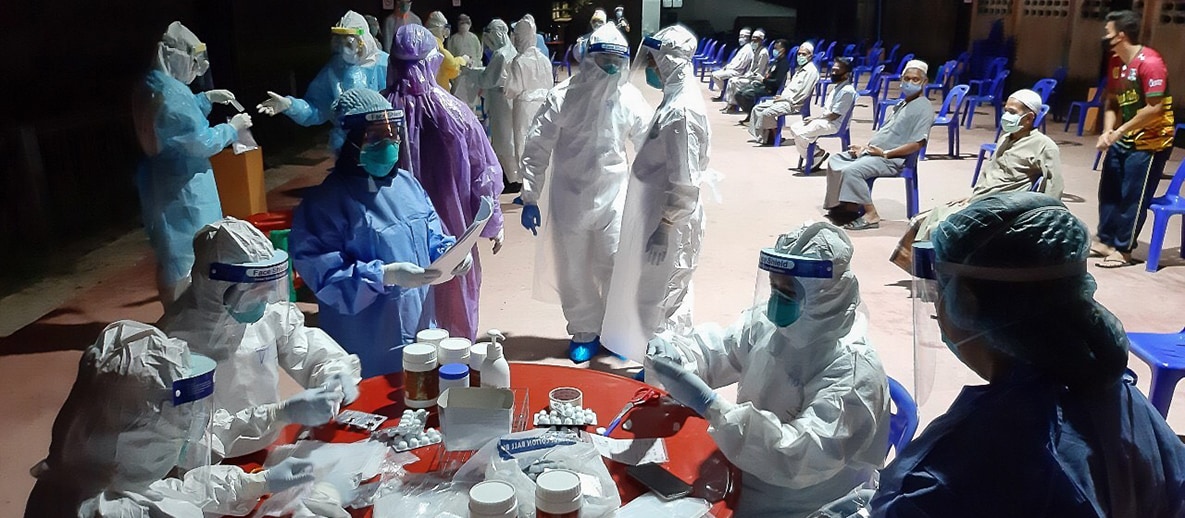
Thai epidemiologists conduct case investigations for COVID-19 during the Ramadan fasting period in 2020. For several decades, CDC has partnered with Thailand to build a workforce of expert disease investigators through the Field Epidemiology Training Program. Photo by Thailand Ministry of Public Health
The Centers for Disease Control and Prevention (CDC) has worked with Thailand’s Ministry of Public Health (MOPH) since 1980, when CDC established the first Field Epidemiology Training Program (FETP) outside of North America. CDC and MOPH work together to prevent and control HIV/AIDS, tuberculosis, influenza, and other infectious diseases; combat emerging infectious diseases through preparedness, surveillance, and control; translate local research into practice; improve the health of mobile populations; reduce the risk of cross-border disease transmission; and share important lessons-learned with other countries. The continued COVID-19 response highlights how this partnership is key to pandemic preparedness and response.
Download Thailand Factsheet [PDF – 341 KB]
Global Health Security
Field epidemiology training program (fetp), immigrant, refugee, and migrant health, noncommunicable diseases (ncds).
- Success Stories
- At a Glance
- Top 10 Causes of Death
- Related Links
CDC Impact in Thailand
CDC supports Thailand to continue strengthening local capabilities to prevent, detect, and respond to infectious disease outbreaks, achieve the goals outlined in the Global Health Security Agenda (GHSA), and implement the International Health Regulations . Thailand is a member country of GHSA, a permanent member of the GHSA Steering Group, and served as the Chair of the GHSA Steering Group in 2021. CDC supports Thailand in its role as a co-lead of the National Laboratory Systems and Workforce Development Action Packages and participant in the Antimicrobial Resistance and Biosecurity Action Packages.
Thailand’s National Strategic Plan on Antimicrobial Resistance (AR) for 2017-2021 aimed to reduce AR-related morbidity by 50%. The CDC office in Thailand provided technical assistance to assess and strengthen the capacity of health facilities in Bangkok to detect and respond to AR, establish and strengthen national and sub-national AR laboratory networks, build capacity to identify novel mechanisms of resistance, and provide specimens to WHO’s supported Enhanced Gonorrhea Antimicrobial Surveillance Programme.
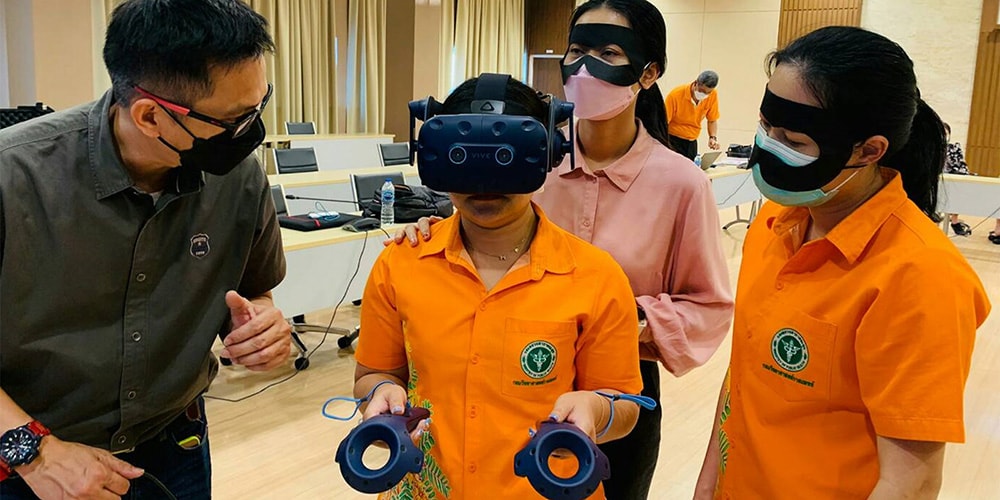
When in-person trainings were suspended due to COVID-19, CDC developed Virtual Reality (VR) Biosafety Cabinet training modules and tested them in Thailand. Photo credit: Ratigorn Guntapong/MOPH
CDC helps strengthen Thailand’s Emergency Operations Center (EOC) and set up rapid response teams for the COVID-19 response
With CDC support, Thailand completed Joint External Evaluations in 2017 and 2022 , a National Action Plan for Health Security in 2019, and chaired the GHSA Steering Committee in 2021
Through Thailand’s FETPs , CDC helps strengthen workforce abilities to investigate and respond to disease outbreaks. CDC established the FETP in Thailand in 1980 to train the next generation of public health leaders in Thailand and the region. Thailand’s FETP participants gain the skills to collect, analyze, and interpret data and contribute to evidence-based decisions during outbreak responses. In 2020, CDC and the Thai FETP established the FETP-Emerging Infectious Diseases (FETP-EID) track, in which residents work alongside CDC staff for 10 months to gain experience in emerging infectious diseases. During their time with CDC, FETP-EID residents receive on-the-job training in laboratory methods, epidemiologic data analysis, and research related to emerging and re-emerging infectious diseases. Thai FETP graduates are integral staff at Thailand’s EOC and play a particularly important role since the onset of the COVID-19 pandemic.
Since 1980, more than 228 epidemiologists , including 56 trainees from other countries , graduated from the Thai FETP
Thailand is on track to control the HIV epidemic by 2025. As of 2022, an estimated 94% of people with HIV know their status, 91% of people diagnosed with HIV are on treatment, and 97% of people with HIV who are on treatment achieved viral load suppression. As a key implementer of the U.S. President’s Emergency Plan for AIDS Relief (PEPFAR), CDC focuses on 14 provinces in Thailand with high rates of HIV. CDC helps strengthen disease surveillance systems, laboratory capacity, case-finding strategies, and safe delivery of medicine during the COVID-19 pandemic. CDC also helps implement HIV pre-exposure prophylaxis (PrEP), adult HIV care and treatment, programs to reduce stigma and discrimination, and continuous quality improvement along the HIV continuum of care. CDC conducts and supports research on injectable long-acting PrEP and new prevention and treatment strategies like non-daily PrEP and antibiotics for sexually transmitted infections.
The PEPFAR Asia Region Program (ARP) includes a diverse group of 12 countries: Burma (Myanmar), Cambodia, India, Indonesia, Kazakhstan, Kyrgyzstan, Laos, Nepal, Papua New Guinea, the Philippines, Tajikistan, and Thailand. ARP launched in 2019 with a vision to bring countries together to increase regional impact and efficiencies to advance and sustain epidemic control. The PEPFAR regional coordination unit is based in Bangkok, Thailand, and serves as the regional advisors for planning, budgeting, program implementation, results monitoring, and reporting.
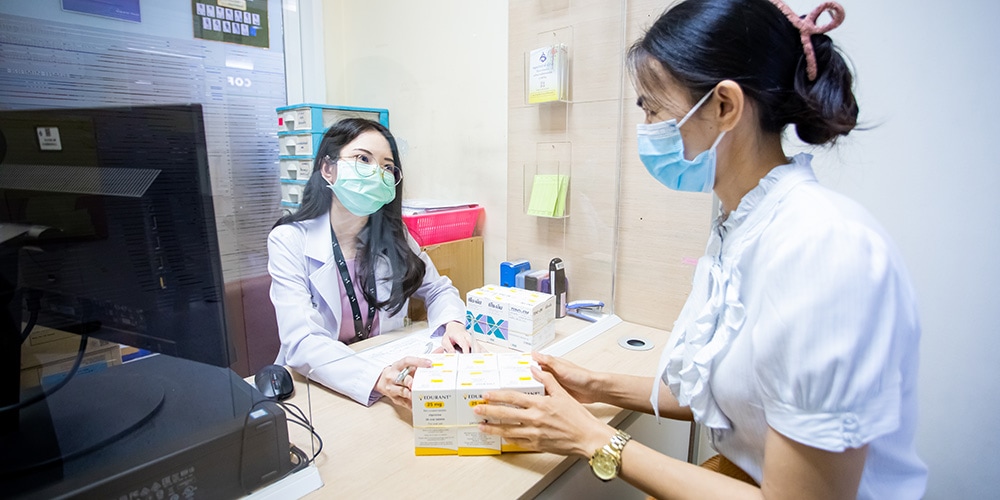
CDC Thailand supports the delivery of medicine and telehealth services provided at Ramathibodi Hospital to people living with HIV during the COVID-19 pandemic. Photo by CDC
97% of people with HIV in Thailand achieved undetectable viral loads , meaning they cannot transmit HIV to sexual partners. This percentage is near the top of all PEPFAR countries
In 2013, Thailand and CDC conducted the world’s first clinical trial that showed that PrEP can reduce HIV spread among people who inject drugs
In 2021, CDC and research partners in Thailand and other countries completed a landmark trial of a new PrEP drug among men and transgender women who have sex with men. The trial demonstrated that this injectable and long-acting drug is safe and effective , providing evidence that the U.S. Food and Drug Administration, CDC, and others used to issue new treatment recommendations and policies
In 2016, with support from CDC, Thailand was the first Asian country to receive World Health Organization certification for the elimination of mother-to-child transmission of HIV and syphilis
CDC works with partners in Thailand to respond to COVID-19 by integrating COVID-19 surveillance into the influenza sentinel surveillance system and leading contact tracing, mitigation, and control efforts in Bangkok. To monitor disease spread, CDC also supports serosurveillance (testing blood for diseases) among healthcare workers, refugee camps along the Thai-Myanmar border, and the general public. CDC strengthens border health activities by coordinating with neighbor countries, assessing points-of-entry, and sharing information on population movements. CDC also helped develop a national electronic COVID-19 vaccine registry and certificate system that is used to verify vaccination status for international travel.
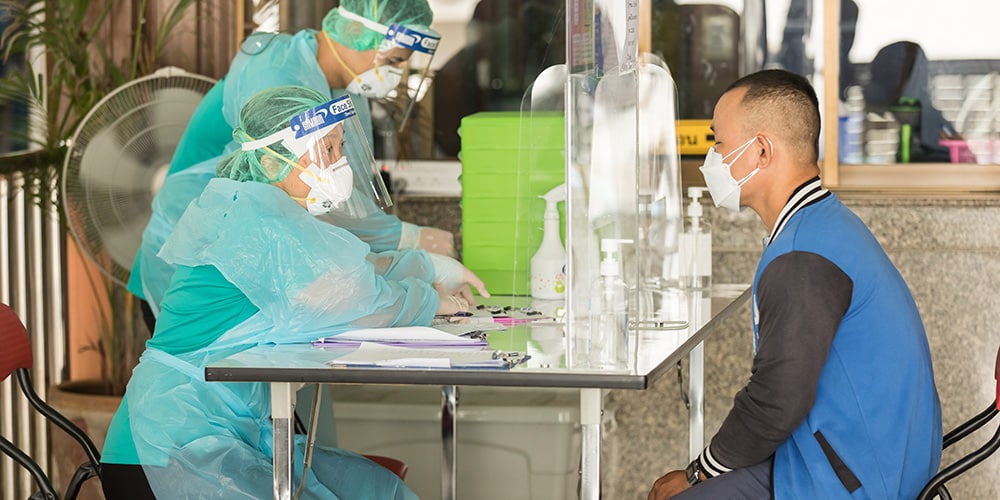
CDC staff interview a patient for enrollment in a study on COVID-19 fever. This project seeks to detect and monitor SARS-CoV-2 (virus that causes COVID-19) infection among patients presenting to hospitals with unexplained fever in Nakhon Phanom and Tak provinces. Photo by CDC
Since 2020, CDC supported 15 training courses for laboratory scientists in Thailand, Vietnam, Cambodia, Indonesia, Laos, and the Philippines , including courses on biosafety, advanced molecular methods, bioinformatics, and laboratory management
Between 2020 and 2023, CDC’s laboratory in Thailand performed more than 10,000 COVID-19 diagnostic tests in support of Thai government partners, the International Rescue Committee, and the U.S. Embassy community
CDC developed an enhanced disease surveillance program that is active in 9 refugee camps on the Thai-Myanmar border. This has system detected 3 COVID-19 outbreaks and helped mitigate widespread epidemics
CDC and partners published findings on clinical management of COVID-19 patients, which led to changes in the national discharge criteria
CDC worked with the MOPH to develop of an electronic COVID-19 vaccine registry for international travel . This system produces a COVID-19 vaccine certificate that is accessible via a smartphone application (MorPhrom) and has QR codes that are compatible with Singapore and European Union systems
Between July 2021 and June 2022, the electronic COVID-19 vaccine registry system generated more than 250,000 electronic certificates on the MorPhrom app
CDC supports countries to develop effective seasonal influenza vaccination programs with robust regulatory and delivery systems. These efforts increase local, regional, and global pandemic preparedness. CDC provides support and coordination across Thailand, as well as in Bangladesh, Indonesia, Laos, and to the WHO. CDC’s primary objectives include:
- Providing epidemiology and laboratory technical support to influenza detection, response, and prevention activities in Southeast Asia
- Growing the evidence-base to inform policy decisions for prevention and control programs, including influenza vaccination
- Supporting pandemic preparedness and the ongoing COVID-19 pandemic response in partner countries
CDC supports Thailand to sustain sentinel and event-based surveillance to monitor circulating influenza and respiratory pathogens. Due to these efforts, the Thailand National Influenza Center is regarded as a regional leader in surveillance
CDC worked with Thailand’s MOPH to deliver emergency supplies of oseltamivir, an influenza antiviral drug, to Laos within 24 hours . These supplies aided the response to a devastating outbreak of seasonal influenza in 2019
CDC’s global migration and quarantine experts address public health threats before they cross international borders and prevent the spread of disease among international travelers, immigrants, refugees, and other mobile populations in Southeast Asia. CDC provides technical support to the Thai MOPH and the Lao MOH related to COVID-19 testing and vaccination, disease surveillance, and emergency response and disease prevention at border crossings. CDC supports disease surveillance and outbreak response in refugee camps along the Thai-Myanmar border and ensures that refugees receive vital treatments and vaccinations for healthy resettlement. CDC experts also ensure that health examinations for immigrants and refugees follow CDC standards for detection and prevention of tuberculosis and COVID-19.
CDC provided technical and financial support to the MOPH for their first-ever WHO course on Ship Sanitation Inspection and Issuance of Ship Sanitation Certificates . This course is the first step in the MOPH’s plan to offer international sanitation inspections for ships at marine ports
CDC developed the regional border health initiative with the International Organization for Migration and provided training for immigration officials, international points-of-entry assessments, and monitoring population mobility along the Thai-Laos and Thai-Cambodia borders
CDC supported tracking of vaccine coverage, vaccination records management and certification systems, and other projects to increase demand for COVID-19 vaccines among refugees and migrant workers throughout Thailand
CDC helped recruit and train migrant volunteers in Bangkok and Phuket on COVID-19 detection and prevention
CDC recently worked with Thai partners to implement WHO’s Global Hearts Initiative, which strives to reduce the impact of high blood pressure and heart disease. CDC helps increase the MOPH’s cardiovascular health epidemiology and research capacities. CDC has also supported Thai FETP- NCD residents and staff to conduct a series of situational analyses and research projects focused on cardiovascular health.
CDC supported the Thai FETP with an evaluation of the cardiovascular surveillance system in Saraburi province
CDC partnered with the Thai National Cancer Institute to include new screening methods for colorectal and cervical cancer in the national cancer screening program
Thailand Screens Travelers for COVID-19 at Borders | CDC
Thailand and CDC strengthen laboratory capacity to respond to COVID-19 | CDC
Hunting for COVID-19 Answers in Thailand’s Wastewater | CDC
CDC’s Global Response to COVID-19 | CDC
International network explores the economics of noncommunicable diseases | CDC
More Thailand Success Stories
- 16 U.S. Assignees
- 141 Locally Employed
- Population: >66.8 million
- Per capita income: >$18,530
- Life expectancy at birth: F 81/M 74 years
- Infant mortality rate: 6/1,000 live births
Sources: Population Reference Bureau 2022, Thailand
- Ischemic heart disease
- Lower respiratory infections
- Chronic kidney disease
- Liver cancer
- Tracheal, bronchus, and lung cancer
- Alzheimer’s disease and other dementias
- Cirrhosis and other chronic liver diseases
- Diabetes mellitus
- Road injuries
Source: GBD Compare 2019, Thailand
Global HIV & TB Thailand country profile
U.S. Embassy and Consulate in Thailand
Publications: Thailand Articles All Issues | Emerging Infectious Diseases journal
Social media: U.S. Embassy Bangkok – Posts | Facebook
Photos: Thailand – CDC Global Flickr
- COVID-19 Surveillance Project
- Migrants and Refugee Camps
- People living with HIV in Thailand
- CDC Thailand Overview
- CDC Thailand HIV STD Clinic & Research
- CDC Thailand Global Health Protection
- CDC Thailand HIV STD Laboratory Research
- Thailand Elimination of Mother-to-Child Transmission (HIV/AIDS)
- CDC Thailand Division of Global HIV & TB
- Workforce Development
- Leader in One Health
- The First FETP outside of the North America
Get CDC’s free global health newsletter each week! Enter your email address:
Exit Notification / Disclaimer Policy
- The Centers for Disease Control and Prevention (CDC) cannot attest to the accuracy of a non-federal website.
- Linking to a non-federal website does not constitute an endorsement by CDC or any of its employees of the sponsors or the information and products presented on the website.
- You will be subject to the destination website's privacy policy when you follow the link.
- CDC is not responsible for Section 508 compliance (accessibility) on other federal or private website.


- Pick... ×

- Currency Converters
- Journey Planner
- Travel Questions

Member Login

Thailand Travel Health Information
Read below for travel health advice on Thailand from the MDtravelhealth channel on Red Planet Travel.
Page Sections
Medications
Immunizations
- Recent outbreaks of diseases
- Other Infections
- Food and Water
- Insect Tick Protection
- Airpollution
- General Advice
- Medical Facilities
- Travel with children
Travel and pregnancy
- Safety Information
- Page Drop Box
Are you a doctor or medical professional with knowledge of the situation in Thailand Why not apply to contribute to this page? You will get a link and referrals to your clinic from this site.
Summary You can't Edit
Summary of recommendations
Most travelers to Thailand will need vaccinations for hepatitis A and typhoid fever , as well as medications for travelers' diarrhea . Malaria prophylaxis is recommended for certain regions, in conjunction with insect repellents and other measures to prevent mosquito bites. Additional immunizations may be necessary depending upon the circumstances of the trip and the medical history of the traveler, as discussed below. All travelers should visit either a travel health clinic or their personal physician 4-8 weeks before departure.
Malaria:Prophylaxis with Malarone (atovaquone/proguanil) or doxycycline is recommended for rural areas bordering Cambodia, Laos, and Myanmar, including Mae Hong Son. Rare local cases have been reported from Phang Nga and Phuket; insect protection measures but not malaria pills are not recommended for these two areas.
Vaccinations:
Medications You can't Edit
Travelers' diarrhea is the most common travel-related ailment. The cornerstone of prevention is food and water precautions , as outlined below. All travelers should bring along an antibiotic and an antidiarrheal drug to be started promptly if significant diarrhea occurs, defined as three or more loose stools in an 8-hour period or five or more loose stools in a 24-hour period, especially if associated with nausea, vomiting, cramps, fever or blood in the stool. A recent study indicated that, due to the frequency of quinolone-resistant Campylobacter in Thailand, the most effective antibiotic is azithromycin (Zithromax) , given either as a single dose of 1 g or a three-day course of 500 mg/day (Clinical Infectious Diseases 2007; 44:338-46). Alternative regimens include a three day course of rifaximin (Xifaxan) 200 mg three times daily or a quinolone antibiotic: either ciprofloxacin (Cipro)(PDF) 500 mg twice daily or levofloxacin (Levaquin) 500 mg once daily for a total of three days. Quinolones are generally well-tolerated, but occasionally cause sun sensitivity and should not be given to children, pregnant women, or anyone with a history of quinolone allergy. Rifaximin should not be used by those with fever or bloody stools and is not approved for pregnant women or those under age 12. Azithromycin should be avoided in those allergic to erythromycin or related antibiotics. An antidiarrheal drug such as diphenoxylate (Lomotil) (PDF) or loperamide (Imodium) should be taken as needed to slow the frequency of stools, but not enough to stop the bowel movements completely. Diphenoxylate (Lomotil) and loperamide (Imodium) should not be given to children under age two.
Most cases of travelers' diarrhea are mild and do not require either antibiotics or antidiarrheal drugs. Adequate fluid intake is essential.
If diarrhea is severe or bloody, or if fever occurs with shaking chills, or if abdominal pain becomes marked, or if diarrhea persists for more than 72 hours, medical attention should be sought.
Though effective, antibiotics are not recommended prophylactically (i.e. to prevent diarrhea before it occurs) because of the risk of adverse effects, though this approach may be warranted in special situations, such as immunocompromised travelers.
Malaria in Thailand: prophylaxis is recommended for rural, forested areas that border Burma (Myanmar), Cambodia, and Laos. Rare local cases have been reported from Phang Nga and Phuket; malaria pills are not generally recommended for these two areas, but insect protection measures are advised, as below. There is no malaria risk in major tourist resorts or in the cities of Bangkok, Chiang Mai, Chiang Rai, Pattaya, Ko Samui, and Ko Phangan.
Either atovaquone/proguanil (Malarone)(PDF) or doxycycline may be given. Atovaquone/proguanil (Malarone) is a combination pill taken once daily with food starting two days before arrival and continuing through the trip and for seven days after departure. Side-effects, which are typically mild, may include abdominal pain, nausea, vomiting, headache, diarrhea, or dizziness. Serious adverse reactions are rare. Doxycycline is effective, but may cause an exaggerated sunburn reaction, which limits its usefulness in the tropics. The recommended dosage is 100 mg daily, starting one-to-two days before arrival and continuing for four weeks after departure from the malarious area.
Insect protection measures are recommended for all areas reporting malaria, including Phang Nga and Phuket.
Long-term travelers who will be visiting malarious areas and may not have access to medical care should bring along medications for emergency self-treatment should they develop symptoms suggestive of malaria, such as fever, chills, headaches, and muscle aches, and cannot obtain medical care within 24 hours. See malaria for details. Symptoms of malaria sometimes do not occur for months or even years after exposure.
Cases of malaria are sometimes reported from the southern part of the country (see "Recent outbreaks"). Because the risk appears to be extremely low, malaria prophylaxis is not generally recommended for travel to the south. However, travelers should be aware that the risk, though small, does exist, and should immediately seek medical attention if they develop fever or other malaria symptoms.
For further information concerning malaria in Thailand, go to the World Health Organization - South-East Asia Region .
Immunizations You can't Edit
The following are the recommended vaccinations for Thailand:
Hepatitis A vaccine is recommended for all travelers over one year of age. It should be given at least two weeks (preferably four weeks or more) before departure. A booster should be given 6-12 months later to confer long-term immunity. Two vaccines are currently available in the United States: VAQTA (Merck and Co., Inc.) (PDF) and Havrix (GlaxoSmithKline) (PDF) . Both are well-tolerated. Side-effects, which are generally mild, may include soreness at the injection site, headache, and malaise.
Older adults, immunocompromised persons, and those with chronic liver disease or other chronic medical conditions who have less than two weeks before departure should receive a single intramuscular dose of immune globulin (0.02 mL/kg) at a separate anatomic injection site in addition to the initial dose of vaccine. Travelers who are less than one year of age or allergic to a vaccine component should receive a single intramuscular dose of immune globulin (see hepatitis A for dosage) in the place of vaccine.
Typhoid vaccine is recommended for all travelers, with the exception of short-term visitors who restrict their meals to major restaurants and hotels, such as business travelers. It is generally given in an oral form (Vivotif Berna) consisting of four capsules taken on alternate days until completed. The capsules should be kept refrigerated and taken with cool liquid. Side-effects are uncommon and may include abdominal discomfort, nausea, rash or hives. The alternative is an injectable polysaccharide vaccine (Typhim Vi; Aventis Pasteur Inc.) (PDF) , given as a single dose. Adverse reactions, which are uncommon, may include discomfort at the injection site, fever and headache. The oral vaccine is approved for travelers at least six years old, whereas the injectable vaccine is approved for those over age two. There are no data concerning the safety of typhoid vaccine during pregnancy. The injectable vaccine (Typhim Vi) is probably preferable to the oral vaccine in pregnant and immunocompromised travelers.
Japanese encephalitis vaccine is recommended for those who expect to spend a month or more in rural areas and for short-term travelers who may spend substantial time outdoors or engage in extensive outdoor activities in rural or agricultural areas, especially in the evening. Japanese encephalitis is transmitted by mosquitoes and occurs from May through October in Thailand. The disease is highly prevalent in the north and occurs sporadically in the south. Annual outbreaks have been reported in the Chiang Mai Valley. Sporadic cases have been described in the Bangkok suburbs.
The recommended vaccine is IXIARO , given 0.5 cc intramuscularly, followed by a second dose 28 days later. The series should be completed at least one week before travel. The most common side effects are headaches, muscle aches, and pain and tenderness at the injection site. Safety has not been established in pregnant women, nursing mothers, or children under the age of two months. In addition to vaccination, strict attention to insect protection measures is essential for anyone at risk.
Hepatitis B vaccine is recommended for all travelers if not previously vaccinated. Two vaccines are currently licensed in the United States: Recombivax HB (Merck and Co., Inc.) (PDF) and Engerix-B (GlaxoSmithKline) (PDF) . A full series consists of three intramuscular doses given at 0, 1 and 6 months. Engerix-B is also approved for administration at 0, 1, 2, and 12 months, which may be appropriate for travelers departing in less than 6 months. Side-effects are generally mild and may include discomfort at the injection site and low-grade fever. Severe allergic reactions (anaphylaxis) occur rarely.
Rabies vaccine is recommended for travelers spending a lot of time outdoors, for travelers at high risk for animal bites, such as veterinarians and animal handlers, for long-term travelers and expatriates, and for travelers involved in any activities that might bring them into direct contact with bats. Children are considered at higher risk because they tend to play with animals, may receive more severe bites, or may not report bites. In Thailand, the chief risk is from dog bites, though cases from cat bites are also reported. A complete preexposure series consists of three doses of vaccine injected into the deltoid muscle on days 0, 7, and 21 or 28. Side-effects may include pain at the injection site, headache, nausea, abdominal pain, muscle aches, dizziness, or allergic reactions.
Any animal bite or scratch should be thoroughly cleaned with large amounts of soap and water and local health authorities should be contacted immediately for possible post-exposure treatment, whether or not the person has been immunized against rabies.
Tetanus - diphtheria vaccine is recommended for all travelers who have not received a tetanus-diphtheria immunization within the last 10 years.
Measles - mumps - rubella vaccine: two doses are recommended (if not previously given) for all travelers born after 1956, unless blood tests show immunity. Many adults born after 1956 and before 1970 received only one vaccination against measles, mumps, and rubella as children and should be given a second dose before travel. MMR vaccine should not be given to pregnant or severely immunocompromised individuals.
Polio vaccine is not generally recommended for adult travelers who completed the recommended childhood immunizations, since polio has not been reported from Thailand for several years. A one-time booster of inactivated polio vaccine may be considered for extended travel to rural areas.
Cholera vaccine is not generally recommended, though cholera is reported, because most travelers are at low risk for infection. Two oral vaccines have recently been developed: Orochol (Mutacol), licensed in Canada and Australia, and Dukoral , licensed in Canada, Australia, and the European Union. These vaccines, where available, are recommended only for high-risk individuals, such as relief workers, health professionals, and those traveling to remote areas where cholera epidemics are occurring and there is limited access to medical care. The only cholera vaccine approved for use in the United States is no longer manufactured or sold, due to low efficacy and frequent side-effects.
Yellow fever vaccine is required for all travelers greater than one year of age arriving from a yellow-fever-infected country in Africa or the Americas and for travelers who have been in transit more than 12 hours in an airport located in a country with risk of yellow fever transmission, but is not recommended or required otherwise. Yellow fever vaccine (YF-VAX; Aventis Pasteur Inc.) (PDF) must be administered at an approved yellow fever vaccination center , which will give each vaccinee a fully validated International Certificate of Vaccination. Yellow fever vaccine should not in general be given to those who are younger than nine months of age, pregnant, immunocompromised, or allergic to eggs. It should also not be given to those with a history of thymus disease or thymectomy.
Recent outbreaks of diseases You can't Edit
Recent outbreaks
An outbreak of hand, foot, and mouth disease was reported from Thailand in early 2014, causing almost 14,000 cases by the end of May. A small outbreak was reported from Burirum province, in the northeastern part of the country, in July 2012. Between July and September 2010, a hand, foot, and mouth outbreak caused more than 10,000 cases nationwide, including a small outbreak in Phuket. An outbreak was also reported in 2006 (see ProMED-mail ; September 7, 2006, September 28, 2010, July 14 and 15, 2012, and June 10, 2014).
Most cases of hand, foot and mouth disease occur in infants and young children, though adults may also be affected. The illness is characterized by fever, oral blisters, and a rash or blisters on the palms and soles. Most cases resolve uneventfully, but a small percentage are complicated by encephalitis (inflammation of the brain), myocarditis (inflammation of the heart muscle), or pulmonary edema (fluid in the lungs). Most cases are caused by enteroviruses, which are transmitted by exposure to fecal material from infected individuals. The key to prevention is good personal hygiene and scrupulous hand-washing, especially after defecation and before handling food.
Two cases of leptospirosis were reported in Spanish travelers who had visited the Phi Phi islands in September 2013 (see Eurosurveillance ). In June 2012, a leptospirosis outbreak was reported from the northeastern part of Surin province, causing 107 confirmed cases and seven deaths (see ProMED-mail , June 26, 2012).
Leptospirosis is acquired by exposure to water contaminated by the urine of infected animals. In Thailand, the animal reservoir includes rats and dogs. Outbreaks often occur in between August and November, which is the rainy season, and at times of flooding. Most cases occur in the north and northeast regions of the country (see Emerging Infectious Diseases). Symptoms may include fever, chills, headache, muscle aches, conjunctivitis (pink eye), photophobia (light sensitivity), and rash. Most cases resolve uneventfully, but a small number may be complicated by meningitis, kidney failure, liver failure, or hemorrhage. Those who may be exposed to contaminated fresh water, such as those on adventure trips, may consider taking a prophylactic 200 mg dose of doxycycline, either once weekly or as a one-time dose.
In September 2006, a leptospirosis outbreak was reported from Nan province in the northern part of the country, related to recent floods (see ProMED-mail ; September 12, 2006). A previous outbreak occurred in September-October 1999 in the Khumuang subdistrict, Buriram province, in the northeastern part of the country.
An increased number of malaria cases was reported in April 2011 from Yala Province in the south. Three cases of malaria were reported in late 2005 and early 2006 among travelers to Koh Phangan in the southern part of the country, where malaria is thought to be highly uncommon. See ProMED-mail (May 20, 2006, and April 22, 2011) and Eurosurveillance for further information. In 2002, two cases were reported in German travelers who had visited Khao Sok national park, also in the southern part of the country (see Eurosurveillance ). Because the risk appears to be low, malaria prophylaxis is not generally recommended for travel to the southern peninsula. However, travelers should be aware that the risk, though small, does exist, and should immediately seek medical attention if they develop fever or other symptoms suggestive of malaria.
An outbreak of melioidosis was reported from Thailand in August 2010, causing 1307 cases and six deaths, mostly among farmers in the northeastern part of the country. Three cases of melioidosis were reported in January 2005 among Finnish tourists who had survived the tsunami in December 2004. The tourists had been visiting Khao Lak on the southwest coast of Thailand when the tsunami struck. In October 2012, a case was reported in a Belgian traveler. Melioidosis is caused by a soil bacterium known as Burkholderia pseudomallei, which gains entrance to the body through cuts or other breaks in the skin, leading to pneumonia or wound infections. The infection may progress to septicemia and may be life-threatening, especially in those with compromised immune systems. In Thailand, most cases are reported from the northeastern part of the country, usually in rice farmers during the rainy season. To prevent melioidosis, travelers are advised to wear waterproof gloves and shoes or boots whenever coming into direct contact with soil, especially during the rainy season.
An outbreak of chikungunya fever , a mosquito-borne illness characterized by fever and incapacitating joint pains, was reported in early 2009 from southern Thailand, including Phuket. By late September, more than 42,000 suspected cases had been described and the outbreak had spread to all other regions of the country. The largest number of cases was reported from the southern province of Songkhla, followed by Narathiwat, Pattani, and Yala, also in the south. More than 2000 cases were reported from Phuket, including 31 cases in foreigners. None of the cases were fatal (see ProMED-mail , April 29 and May 15, 2009). Symptoms of chikungunya fever include fever, joint pains, muscle aches, headache, and rash. The disease is almost never fatal, but may be complicated by protracted fatigue and malaise. Rarely, the infection is complicated by meningoencephalitis, which is usually seen in newborns and those with pre-existing medical conditions. Insect protection measures are strongly recommended, as described below. Because of the risk of mother-to-child transmission, pregnant women need to take special care to protect themselves from mosquito bites. In October 2008, a chikungunya outbreak occurred in a village in Narathiwat province, in southern Thailand near the border with Malaysia.
Dengue fever , a flu-like illness sometimes complicated by hemorrhage or shock, is highly prevalent in Thailand. The number of cases usually peaks during the rainy season (ranging from May through November), when mosquitoes proliferate. A total of 26,000 cases and 33 deaths were reported nationwide for the first four months of 2013. A dengue outbreak was reported from Phuket in April 2013, causing more than 300 cases. Dengue is transmitted by Aedes mosquitoes, which bite primarily in the daytime and favor densely populated areas, though they also inhabit rural environments. No vaccine is available at this time. Insect protection measures are strongly advised, as outlined below.
More than 48,000 cases of dengue fever, 27 of them fatal, were reported from Thailand in the first nine months of 2011, chiefly in the central region. Provinces most affected included Krabi, Samut Sakhon, Satun, Songkhla, Ratchaburi, Nakhon Pathom, Nakhon Sawan, Chon Buri and Trat. An outbreak was reported from the island of Phi Phi in August 2011, causing 20 cases, some of them in tourists. In September 2011, an outbreak of a febrile illness, possibly dengue, was reported from the Karenni refugee camp in Mae Hong Song. More than 86,000 cases of dengue fever and at least 100 deaths were reported nationwide for the first nine months of 2010. Most of the cases were reported from the Northeastern provinces, followed by the Central, Southern and Northern regions. An outbreak was reported from the island of Phuket, causing almost 700 cases by November 2010. Dengue outbreaks were reported from Buri Ram province and from the northeastern province of Surin in September 2010, from the northeastern province of Ubon Ratchathani in August 2010, from Nakhon Ratchasima province in July 2010, and from Pattani province in May 2010. In June 2009, a dengue outbreak was reported from the region of Mae Hong Son, causing 155 cases. The dengue reports by province and region are available from the Thailand Ministry of Public Health dengue surveillance website at http://203.157.15.4/surdata/disease.php?ds=66 for dengue fever, http://203.157.15.4/surdata/disease.php?ds=26 for dengue hemorrhagic fever, and http://203.157.15.4/surdata/disease.php?ds=27 for dengue shock syndrome. While the URL links go to webpages in the Thai language, if one goes to the central column of the page, there are links to the data files by years, with 2552 representing 2009. Clicking on the year will then provide a link to download the respective files for dengue fever reports by province and region, dengue hemorrhagic fever reports by province and region, and dengue shock syndrome reports by province and region).
For the year 2008, there were more than 91,000 cases of dengue fever nationwide, including 99 deaths. Koh Samet, Koh Mun, and Koh Kodi were particularly affected. A dengue outbreak was reported from Rayong Province in August 2008, causing almost 1400 cases and two deaths. For the first nine months of 2007, more than 40,000 dengue cases were reported nationwide, including 47 deaths. The number of dengue cases appeared to rise earlier than usual in 2007, due to early, heavy rains. A dengue outbreak was reported from Phuket in August 2007, resulting in 110 cases and at least two deaths by November. In May 2007, an outbreak was reported from Trat province, 400 km southeast of Bangkok on the Cambodian border, and in the southernmost provinces along the Malaysian border. In August 2006, the provinces of Kamphaeng Phet, Nakhon Sawan, Phichit and Uthai Thani were declared dengue "alert zones" by the Ministry of Public Health because of a large number of cases (more than a thousand) being reported from these provinces (see Thailand Ministry of Public Health ). A dengue outbreak was reported from Surin Province in July 2006 and from Ampur Mae Sareang in June 2006. Earlier in the year, a dengue outbreak was reported from Chaiyaphum Province. In April 2002, a unusually large number of cases was reported among travelers to southern Thailand, especially the island of Koh Pha Ngan.
An increased number of cholera cases has been reported from the northeastern part of Thailand, due to the consumption of raw cockles, poorly prepared som tam, and fast food. A cholera outbreak was reported from Pattani province in southern Thailand in November 2009 and was ongoing as of January 2010. An outbreak was reported in June 2007 among Burmese migrant workers and in a Burmese refugee camp in Tak province, which shares a long border with Burma (see ProMED-mail , August 4 and 10 and October 30, 2007; February 5, 2010). As above, cholera vaccine is not recommended for most travelers.
Four cases of Legionnaires' disease were reported in December 2006 among guests who had stayed at a hotel in Patong Beach, Phuket, Thailand. See Eurosurveillance for further information. Legionnaires' disease is a bacterial infection which typically causes pneumonia but may also involve other organ systems. The disease is usually transmitted by airborne droplets from contaminated water sources, such as cooling towers, air conditioners, whirlpools, and showers. Legionnaires' disease is not transmitted from person-to-person.
A total of 25 human cases of H5N1 avian influenza ("bird flu"), 17 of them fatal, have been reported from Thailand. The first twelve cases were reported in January-February 2004, at the time of the initial avian influenza outbreaks in Thailand and other Asian countries. New poultry outbreaks were reported in July 2004, followed by five additional human cases in September-October, 2004. Five more human cases were reported between October and December, 2005. No human or avian cases were reported in the first half of 2006, but fresh poultry outbreaks and three additional human cases were reported between July and September 2006. The most recent poultry outbreaks were reported from the northern province of Phichit in September 2007 and again in January 2008; from Nakhon Sawan province, also in January 2008; from Sukhothai province in October 2008; and from Uthai Thani province in November 2008.
Most travelers are at extremely low risk for avian influenza, since almost all human cases have occurred in those who have had direct contact with live, infected poultry, or sustained, intimate contact with family members suffering from the disease. The Centers for Disease Control does not advise against travel to Thailand, but recommends that travelers should avoid exposure to live poultry, including visits to poultry farms and open markets with live birds; should not touch any surfaces that might be contaminated with feces from poultry or other animals; and should make sure all poultry and egg products are thoroughly cooked. A vaccine for avian influenza was recently approved by the U.S. Food and Drug Administration (FDA), but produces adequate antibody levels in fewer than half of recipients and is not commercially available. The vaccines for human influenza do not protect against avian influenza. Anyone who develops fever and flu-like symptoms after travel to Thailand should seek immediate medical attention, which may include testing for avian influenza. For further information, go to the World Health Organization , the Centers for Disease Control , and ProMED-mail .
An outbreak of botulism was reported in March 2006 among people who had eaten home-preserved bamboo shoots at a local village Buddhist festival in Baan Luang District, Nan Province. A total of 163 people were affected. Symptoms included dry mouth, dysphagia, dysarthria, ptosis, diplopia, abdominal discomfort, and muscle weakness. Forty people required intubation, but there were no fatalities. For further information, go to the World Health Organization and the Centers for Disease Control . Another botulism outbreak was reported in June 2006, affecting more than 50 people in the northern province of Phayao who had eaten raw deer meat. See Global Health for details.
Toxic jellyfish stings were reported to have killed two tourists swimming off the coast of Koh Phangan in August 2002. Three years before that, a fatal jellyfish sting was reported off Koh Samui in the Gulf of Siam. In general, the time of highest risk for jellyfish stings is the evening, when they come to the surface.
HIV disease has reached epidemic levels in Thailand. Most cases result from heterosexual transmission. HIV infection is common in prostitutes of both sexes.
Other Infections You can't Edit
Other infections
- Zika virus infections (mosquito-borne viral infection, usually mild; symptoms may include fever, headache, red eyes, rash, muscle aches, and joint pains; case reported in a traveler from Germany in November 2013; see Eurosurveillance )
- Streptococcus suis infections (northern Thailand; often acquired by eating Larb and Lu Mu, which are meat salads made with raw pork and raw pork blood; for the year 2010, 23 cases and 5 fatalities reported in Phetchabun province; three cases reported from Lampang province; cases also reported from Phetchabun and Nakhon Sawan provinces)
- Gnathostomiasis (acquired by eating raw or undercooked freshwater fish; chief symptom is intermittent, migratory swellings under the skin, sometimes associated with joint pains, muscle pains, or gastrointestinal symptoms; symptoms may not begin until months after exposure)
- Vibrio parahemolyticus (intestinal infection similar to cholera; numbers increasing rapidly over the last several years)
- Scrub typhus (deforested areas; transmitted by chigger bites; marked by thick black scab at the site of the initial bite and rash which starts on the trunk; also causes fever, headache, sweating, pink-eye, swollen glands)
- Murine typhus (case reported in April 2011 in a Japanese traveler who had visited northern Thailand)
- Spotted fever rickettsioses (reported from Sangkhlaburi District on the Myanmar border; trasnmitted by ticks)
- Schistosomiasis (acquired by exposure to contaminated water; incidence declining)
- Hepatitis E (transmitted by contaminated food or water; particularly dangerous for pregnant women)
- Eosinophilic meningitis (caused by roundworm; acquired by eating contaminated food; chief symptoms are headache, neck stiffness, numbness and tingling)
- Chikungunya fever (transmitted by mosquitoes; causes fever and incapacitating joint pains; rarely fatal but may be complicated by protracted fatigue and malaise)
A recent study of febrile illnesses along the Thai-Myanmar border showed that the most frequent documented causes were malaria and leptospirosis. Other common diagnoses included rickettsial infections, dengue fever, and typhoid. For further information, go to the American Journal of Tropical Medicine and Hygiene (74(1), 2006, pp. 108-113).
Food and Water You can't Edit
Food and water precautions
Tap water in Thailand should not be consumed unless it has been boiled, filtered, or chemically disinfected. In the major cities, water comes from water purification plants, but may be contaminated due to inadequate sewage facilities. This is especially common during times of flooding.
Avoid unpasteurized milk and any products that might have been made from unpasteurized milk, such as ice cream. Fruits and vegetables should not be eaten unless they have been peeled or cooked. Foods that have been cooked but left at room temperature, such as buffets, should be avoided, as well as raw or undercooked meat or fish. Do not buy food or beverages from street vendors.
All travelers should bring along an antibiotic and an antidiarrheal drug to be started promptly if significant diarrhea occurs, defined as three or more loose stools in an 8-hour period or five or more loose stools in a 24-hour period, especially if accompanied by nausea, vomiting, cramps, fever or blood in the stool. Antibiotics which have been shown to be effective include ciprofloxacin (Cipro), levofloxacin (Levaquin), rifaximin (Xifaxan), and azithromycin (Zithromax). Either loperamide (Imodium) or diphenoxylate (Lomotil) should be taken in addition to the antibiotic to reduce diarrhea and prevent dehydration.
Insect Tick Protection You can't Edit
Insect and Tick Protection
Wear long sleeves, long pants, hats and shoes (rather than sandals). For rural and forested areas, boots are preferable, with pants tucked in, to prevent tick bites. Apply insect repellents containing 25-50% DEET (N,N-diethyl-3-methylbenzamide) or 20% picaridin (Bayrepel) to exposed skin (but not to the eyes, mouth, or open wounds). DEET may also be applied to clothing. Products with a lower concentration of either repellent need to be reapplied more frequently. Products with a higher concentration of DEET carry an increased risk of neurologic toxicity, especially in children, without any additional benefit. Do not use either DEET or picaridin on children less than two years of age. For additional protection, apply permethrin-containing compounds to clothing, shoes, and bed nets. Don't sleep with the window open unless there is a screen. If sleeping outdoors or in an accommodation that allows entry of mosquitoes, use a bed net, preferably impregnated with insect repellent, with edges tucked in under the mattress. The mesh size should be less than 1.5 mm. If the sleeping area is not otherwise protected, use a mosquito coil, which fills the room with insecticide through the night. In rural or forested areas, perform a thorough tick check at the end of each day with the assistance of a friend or a full-length mirror. Ticks should be removed with tweezers, grasping the tick by the head. Many tick-borne illnesses can be prevented by prompt tick removal.
Airpollution You can't Edit
Air pollution
Air pollution may be a significant health problem in Bangkok and Chiang Mai. Travelers with respiratory or cardiac conditions and those who are elderly or extremely young are at greatest risk for complications from air pollution, which may include cough, difficulty breathing, wheezing, or chest pain. The risk may be minimized by staying indoors, avoiding outdoor exercise, and drinking plenty of fluids.
General Advice You can't Edit
General advice
Bring adequate supplies of all medications in their original containers, clearly labeled. Carry a signed, dated letter from the primary physician describing all medical conditions and listing all medications, including generic names. If carrying syringes or needles, be sure to carry a physician's letter documenting their medical necessity. Pack all medications in hand luggage. Carry a duplicate supply in the checked luggage. If you wear glasses or contacts, bring an extra pair. If you have significant allergies or chronic medical problems, wear a medical alert bracelet.
Make sure your health insurance covers you for medical expenses abroad. If not, supplemental insurance for overseas coverage, including possible evacuation, should be seriously considered. If illness occurs while abroad, medical expenses including evacuation may run to tens of thousands of dollars. Bring your insurance card, claim forms, and any other relevant insurance documents. Before departure, determine whether your insurance plan will make payments directly to providers or reimburse you later for overseas health expenditures. The Medicare and Medicaid programs do not pay for medical services outside the United States.
Ambulance You can't Edit
Ambulance and Emergency Services
For a public ambulance in Thailand, call 1669 . Response time is usually 10 minutes in cities and 30 minutes in rural areas. For a private ambulance in Bangkok, call 66-2-667-2999 (Bumrungrad International Hospital) or 66-2-712-7007 (Samitivej Hospital).
Medical Facilities You can't Edit
Medical facilities
Excellent medical care is available in Bangkok. Many physicians have been trained in the United States and other Western countries and many speak English. Outside Bangkok, medical care may be variable, and it may be difficult to find an English-speaking physician.
Many expatriates go to one of the following, all of which provide 24-hour emergency care:
- Global Doctor Clinic (Sumait Premmanisakul MD, Medical Director; G Floor, Holiday Inn Silom, Bangkok; ph. 66-2236-8444, mobile 661 8379957, email [email protected]; consultation by appointment or walk-in; also house calls; all medications made by international drug companies; most major credit cards accepted)
- Bumrungrad International Hospital (33 Sukhumvit 3 (Soi Nana Nua), Wattana, Bangkok 10110; ph. 66-2-667-1000 - general, 667-2999 - emergency; website http://www.bumrungrad.com)
- Samitivej Hospital (133 Sukhumvit 49, Vadhana, Bangkok 10110; ph. 66-2-392-0011 - general, 712-7007 - emergency; website http://www.samitivejhospital.com)
- BNH Hospital (9/1 Convent Rd, Silom, Bangkok; ph. 66-2-686-2700; website http://www.BNHhospital.com; also offers an international travel clinic)
For infectious diseases, travelers can also go to the Thai Travel Clinic at the Hospital for Tropical Diseases, Mahidol University (420/6 Rajvithi Rd, Rajthewi Bangkok 10400; ph. 66-23549100 x1420, x1225; website www.thaitravelclinic.com)
For a guide to physicians and other hospitals in Thailand, go to the Welcome to Thailand document (Appendix K) on the U.S. Embassy website. Many doctors and hospitals will expect payment in cash, regardless of whether you have travel health insurance. Life-threatening medical problems may require air evacuation to a country with state-of-the-art medical facilities.
Travel with children You can't Edit
Traveling with children
Before you leave, make sure you have the names and contact information for physicians, clinics, and hospitals where you can obtain emergency medical care if needed.
All children should be up-to-date on routine childhood immunizations, as recommended by the American Academy of Pediatrics . Children who are 12 months or older should receive a total of 2 doses of MMR (measles-mumps-rubella) vaccine, separated by at least 28 days, before international travel. Children between the ages of 6 and 11 months should be given a single dose of measles vaccine. MMR vaccine may be given if measles vaccine is not available, though immunization against mumps and rubella is not necessary before age one unless visiting a country where an outbreak is in progress. Children less than one year of age may also need to receive other immunizations ahead of schedule (see the accelerated immunization schedule).
The recommendations for malaria prophylaxis are the same for young children as for adults, except that (1) dosages are lower; and (2) doxycycline should be avoided. DEET-containing insect repellents are not advised for children under age two, so it's especially important to keep children in this age group well-covered to protect them from mosquito bites.
When traveling with young children, be particularly careful about what you allow them to eat and drink (see food and water precautions ), because diarrhea can be especially dangerous in this age group and because the vaccines for hepatitis A and typhoid fever , which are transmitted by contaminated food and water, are not approved for children under age two. Baby foods and cows' milk may not be available in developing nations. Only commercially bottled milk with a printed expiration date should be used. Young children should be kept well-hydrated and protected from the sun at all times.
Be sure to pack a medical kit when traveling with children. In addition to the items listed for adults, bring along plenty of disposable diapers, cream for diaper rash, oral replacement salts, and appropriate antibiotics for common childhood infections, such as middle ear infections.
Travel and pregnancy You can't Edit
International travel should be avoided by pregnant women with underlying medical conditions, such as diabetes or high blood pressure, or a history of complications during previous pregnancies, such as miscarriage or premature labor. For pregnant women in good health, the second trimester (18–24 weeks) is probably the safest time to go abroad and the third trimester the least safe, since it's far better not to have to deliver in a foreign country.
Before departure, make sure you have the names and contact information for physicians, clinics, and hospitals where you can obtain emergency obstetric care if necessary. In general, pregnant women should avoid traveling to countries which do not have modern facilities for the management of premature labor and other complications of pregnancy.
As a rule, pregnant women should avoid visiting areas where malaria occurs. Malaria may cause life-threatening illness in both the mother and the unborn child. None of the currently available prophylactic medications is 100% effective. Mefloquine (Lariam) is the drug of choice for malaria prophylaxis during pregnancy, but should not be given if possible in the first trimester. If travel to malarious areas is unavoidable, insect protection measures must be strictly followed at all times. The recommendations for DEET-containing insect repellents are the same for pregnant women as for other adults.
Strict attention to food and water precautions is especially important for the pregnant traveler because some infections, such as listeriosis, have grave consequences for the developing fetus. Additionally, many of the medications used to treat travelers' diarrhea may not be given during pregnancy. Quinolone antibiotics, such as ciprofloxacin (Cipro) and levofloxacin (Levaquin), should not be given because of concern they might interfere with fetal joint development. Data are limited concerning trimethoprim-sulfamethoxazole, but the drug should probably be avoided during pregnancy, especially the first trimester. Options for treating travelers' diarrhea in pregnant women include azithromycin and third-generation cephalosporins. For symptomatic relief, the combination of kaolin and pectin (Kaopectate; Donnagel) appears to be safe, but loperamide (Imodium) should be used only when necessary. Adequate fluid intake is essential.
Embassy You can't Edit
Embassy/Consulate Location
(reproduced from the U.S. State Dept. Consular Information Sheet)
Americans living in or visiting Thailand are encouraged to register, either online, or in person at the Consular Section of the U.S. Embassy in Bangkok or the U.S. Consulate General in Chiang Mai. At both locations, updated information on travel and security in Thailand is available. The Consular Section of the U.S. Embassy is located at 95 Wireless Road in Bangkok; the U.S. mailing address is APO AP 96546-0001. The central switchboard number is (66-2) 205-4000; the American Citizen Services Unit number is (66-2) 205-4049; and the fax number is (66-2) 205-4103. The web site for the U.S. Embassy is http://bangkok.usembassy.gov. American citizens can register online via the web site. Questions regarding American Citizens Services can be submitted by E-mail to [email protected]. The U.S. Consulate General in Chiang Mai is located at 387 Wichayanond Road; the U.S. mailing address is Box, C, APO AP 96546. The telephone number is (66-53) 252-629, and the fax number is (66-53) 252-633.
Safety Information You can't Edit
Safety information
For information on safety and security, go to the U.S. Department of State, United Kingdom Foreign and Commonwealth Office, Foreign Affairs Canada , and the Australian Department of Foreign Affairs and Trade .
Page drop box for MDth Thailand
Been to Thailand recently? What is the current health situation there? Do you have any information on the place. Is the information on this page as you found it?
You can earn Reputation score by joining our community and also enrol on the TravelTip$ program and get paid for good advice by other travellers.
If you are not logged in, or choose to make the drop box anonymously you can tell the community honestly what you seen without any concern. Please send images or other evidence to support your claims.
The MDtravelhealth channel is a source of travel health information for travellers, written by medical professionals.
MDth Navigation
- Clinic Finder
Page is maintained by
The MDtravelhealth channel relies on medical professionals from all over the world to maintain the Travel Health Information on these pages.
Topic Tags for Thailand
Topic Tags are what bind the Red Planet Travel site together, and are very important.
This place has been tagged:
Dev: Classes that can edit; Page Location Owner, Page Captain & Crew and anyone with EDITPAGETAGS reputation capability.
Got a Question?
Ask any travel related question or help others with your experience and earn Reputation Score and become a valued member of our community.
MDtravelhealth Medical Contributions
Before you apply read about the Medical Professionals Roles on Red Planet Travel
Have something to Contribute?
We are looking to grow the information on this site, if you have something to contribute to any page then we'd like to hear from you.

You will need to tell other members about yourself and your relevant knowledge and experience about what you want to contribute about.
Look below for some example page types, and types of people whose views on a place might be useful to know.
Page Type: Hotel
Tell us your job, knowledge, experience..
My Experience: Doctor
If you are the owner/manager of any place, then you can, of course, take control of your page and add relevant information other visitors might want to know
Related Pages
Check out our page on Thailand for information on how to get there, accommodation, video and reviews.
Medical Clinics
Do you have any recent experiences of clinics here? Please search for them, use the drop box at the bottom of their page to send us comments - good and bad.
- Chiangmai Ram Hospital Full Details Chiangmai Ram Hospital 8 Bunrueang Rit Rd, Tambon Su Thep, Amphoe Mueang Chiang Mai, Chang Wat Chiang Mai 50200, Thailand Directions +66 53 920 300 http://www.chiangmairam.com/
- 153 Khao Phra Subdistrict Tambon Khao Phra Full Details 153 Khao Phra Subdistrict Tambon Khao Phra, Amphoe Doem Bang Nang Buat, Chang Wat Suphan Buri 72120, Thailand Directions +66 35 578 032 http://www.dbhosp.com/
- Mae Wang Hospital Full Details Mae Wang Hospital 191 Tambon Ban Kad, Amphoe Mae Wang, Chang Wat Chiang Mai 50360, Thailand Directions +66 53 928 044 http://61.19.197.195/
- Bangkok Hospital Full Details Bangkok Hospital ถนน เพชรบุรีตัดใหม่ Khwaeng Bang Kapi, Khet Huai Khwang, Krung Thep Maha Nakhon 10310, Thailand Directions +66 2 310 3000 http://www.bangkokhospital.com/
Hotels near Thailand
- Baan Tung Krajeaw Highland Resort Baan Tung Krajeaw Highland Resort offers simply furnished rooms and the convenience of an on-site restaurant and massage services. On-site parking is provided for drivers.
- Orchid Home And Restaurant With views of surrounding greenery from private balconies, Orchid Home and Restaurant offers cosy Thai-style bungalows at affordable prices. It features free Wi-Fi in public areas and free parking.
- Leelawadee Place Leelawadee Place is a 10-minute drive from Phetchabun Bus Terminal. It offers air conditioned rooms with free WiFi. The property also provides free private parking.
- Klang Muang River Home Klang Muang River Home is 500 metres from Phetchabun Bus Terminal. Offering air-conditioned rooms, the property is equipped with free Wi-Fi and free private parking. Coin-operated washing machines are available on site.
- The One Phetchabun The One Phetchabun is located in the city centre. It offers air-conditioned rooms with free Wi-Fi. The property also provides free public parking for guests’ convenience. The property is 500 metres from Phetchabun Bus Terminal.
- Pasak Hillside Resort Nestled amidst tropical gardens, Pasak Hillside Resort boasts an outdoor pool and a restaurant. Offering cosy accommodation, it is a 30-minute ride from Si Thep Historical Park. Free Wi-Fi is available in all areas.
- Paradize Khaokhor Paradize Khaokhor is located in Phetchabun. It offers comfortable rooms with air conditioning and the convenience of on-site parking. The accommodation will provide you with a cable TV. Featuring a shower, private bathrooms also come with towels.
- Indian View Indian View is located 5 km from Khao Kho National Park. Guests can enjoy a variety of outdoor activities on site including ATV, tower jumping and giant swing. Free Wi-Fi is available in the lobby. Pets can stay for free.
- Phutawan Resort Situated in Chai Badan, Phutawan Resort offers cosy accommodation with air conditioning. Featuring on-site parking, the property is 300 metres from Sabtakiang reservoir. Free WI-Fi is available throughout.
- The Natural Yurt Resort @ Khao Kho Featuring Chinese-style accommodation, The Natural Yurt Resort @ Khao Kho is a 10-minute drive from Sridith Waterfall. It offers the convenience of on-site parking and free Wi-Fi, which is available throughout the resort.
More hotels from our Partner Booking.com
Accommodation near Thailand
Looking for somewhere to stay near Thailand? Here is our list of options.
- The Hill Hotel No info yet.. Please go to this page and enter some.
- 116 ถนน บริพัตร Khwaeng Ban Bat No info yet.. Please go to this page and enter some.
- Grande Centre Point Ploenchit No info yet.. Please go to this page and enter some.
- 2 Soi Sukhumvit 13 No info yet.. Please go to this page and enter some.
- Miami Hotel No info yet.. Please go to this page and enter some.
- Grande Centre Point Ratchadamri No info yet.. Please go to this page and enter some.
- 300 Sukhumvit 55 Klongton Nua Wattana Krung Thep Maha Nakhon 10110 No info yet.. Please go to this page and enter some.
- Grande Centre Point. No info yet.. Please go to this page and enter some.
- Oriental Residence Bangkok No info yet.. Please go to this page and enter some.
- Check Inn Chinatown by Sarida No info yet.. Please go to this page and enter some.
Related Questions
Can you help with answering any of these questions? Help other travellers with your experience and earn reputation score on this site.
- Thai immigration officers raiding my room is it legal? Are the immigration officers allowed to enter my hotel room without my permission? They were about d...
- Job in thailand from September Hello, With my boyfriend we prepare our trip in Thailand for September. We want find a job on the ...
- Azure windows around the world Sat here in Malta and planning a day trip to Gozo tomorrow. Kinda sad that the Azure window no longe...
- Is 20,000 thb enough to last a month in Thailand? I'll be working in Bangkok a month before I get paid so not going off to islands or anything like th...
- Car Insurance for Thai girlfriend and me Me and my Thai girlfriend are looking to buy a car soon, what would the process be to get me insured...
- best neighborhood for short stay in Chiang Mai Thailand? Hi there, what is the best neighborhood to be in for a stay of seven days? Friends recommended the N...
- reliable service alternative to Thailand Post usually use thailandpost to send some parcels everyday, mostly to european countries. I am not sati...
- What vaccines do I need for travelling to Thailand, Cambodia and Vietnam? Travelling to Southeast Asia in mid March to early May and I need to know what vaccines i need to ge...
- Bangkok train filling with smoke Anyone ever been on the train riding through the country side when the carriages all fill up with th...
- train ticket from lomprayha company from bkk to Surat Thani Hello, everyone, is there any one know how to get a train ticket from lomprayha company from bkk to ...
Red Planet Travel is made in Andorra
Corazón Tecsys SL - C/ Hospital 24, Cambrils, Tarragona, Spain © 2014
CONFIG: LIVE DAY: 0
Cluster Server: TYCHE
Travel Vaccines and Advice for Thailand

Thailand is a popular destination with its tropical climate, food, culture and beaches.
Thai is the official language of Thailand. But, other smaller languages spoken in rural areas. The primary religion of Thailand is Buddhism and is prevalent in many aspects of culture throughout Thailand. Islam is also practiced in Southern provinces.
Bangkok, Thailand’s capital city, is also the largest city in the country. Bangkok is highly populated with congested streets, modern buildings and temples. It is most known for its nightlife.
Thailand’s other major cities include Ayutthaya, Chiang Mai, and Chiang Rai.
Do I Need Vaccines for Thailand?
Yes, some vaccines are recommended or required for Thailand. The CDC and WHO recommend the following vaccinations for Thailand: typhoid , cholera , hepatitis A , polio , yellow fever , Japanese encephalitis , chikungunya , rabies , hepatitis B , influenza , COVID-19 , pneumonia , chickenpox , shingles , Tdap (tetanus, diphtheria and pertussis) and measles, mumps and rubella (MMR) .
See the bullets below to learn more about some of these key immunizations:
- Typhoid – Food & Water – Recommended for travelers to most regions.
- Cholera – Food & Water – Cholera is rare, but present in Thailand. Vaccination is recommended for travelers at increased risk or visiting areas with active transmission.
- Hepatitis A – Food & Water – Recommended for most travelers.
- Polio – Food & Water – Generally considered a routine vaccination for most travel itineraries. Single adult booster recommended.
- Yellow Fever – Mosquito – Required if traveling from a country with risk of yellow fever transmission
- Japanese Encephalitis – Mosquito – Recommended depending on itinerary and activities. Recommended for extended travel, recurrent travelers and travel to rural areas. Present throughout country, especially northern regions. Most cases from May to October.
- Chikungunya – Mosquito – Thailand is a higher risk region. Vaccination is recommended.
- Rabies – Saliva of Infected Animals – High risk country. Vaccine recommended for long-term travelers and those who may come in contact with animals.
- Hepatitis B – Blood & Body Fluids – Recommended for travelers to most regions.
- Influenza – Airborne – Vaccine components change annually.
- COVID-19 – Airborne – Recommended for travel to all regions, both foreign and domestic.
- Pneumonia – Airborne – Two vaccines given separately. All 65+ or immunocompromised should receive both.
- Chickenpox – Direct Contact & Airborne – Given to those unvaccinated that did not have chickenpox.
- Shingles – Direct Contact – Vaccine can still be given if you have had shingles.
- TDAP (Tetanus, Diphtheria & Pertussis) – Wounds & Airborne – Only one adult booster of pertussis required.
- Measles Mumps Rubella (MMR) – Various Vectors – Given to anyone unvaccinated and/or born after 1957. One time adult booster recommended.
See the table below for more information:
Specific Vaccine Information
- Typhoid – Typhoid, caused by Salmonella Typhi, spreads via contaminated food and water, especially in areas with poor sanitation. Protect yourself by practicing good hygiene and safe food habits. Vaccination can significantly reduce the risk of typhoid infection, especially when traveling to endemic areas.
- Hepatitis A – Be sure to protect yourself from hepatitis A, a contagious liver infection caused by HAV, through vaccination. The virus spreads through contaminated food, water, and close contact. Along with vaccination, maintaining proper hygiene and avoiding undercooked shellfish are essential for prevention.
- Japanese Encephalitis – Japanese encephalitis is a mosquito-spread viral disease that affects the central nervous system. Prevention is achieved through protective attire and vaccination.
- Chikungunya – Chikungunya, a mosquito-borne virus, can be prevented by avoiding mosquito bites and reducing breeding sites. The chikungunya vaccine provides teh best protection.
- Rabies – Rabies is a deadly viral illness transmitted mainly through animal bites. Vaccination is pivotal, with pre-exposure and post-exposure options available to protect against this potentially fatal disease.
- Hepatitis B – The hepatitis B virus leads to liver infection through contact with infected fluids. The most effective safeguard is the hepatitis B vaccine, administered in a series of shots that stimulate the body to produce antibodies, providing long-term immunity. It is crucial for infants and those at an increased risk of exposure.
- Measles, Mumps, Rubella (MMR) – Measles, mumps, and rubella are viral infections that can spread through close contact and respiratory droplets. Vaccination is the most effective way to halt their transmission. The MMR vaccine, given in two doses, strengthens immunity, reducing the chances of contracting and spreading these diseases.
Malaria In Thailand
Malaria is primarily found the border provinces, near Burma, Cambodia and Malaysia. Some rare cases have been identified in Bangkok, Chiang Mai and Chiang Rai. Parasites in Thailand are resistant to chloroquine and mefloquine. Consult with a travel health specialist on which antimalarial will be best for your trip.
To find out more about these vaccines, see our vaccinations page. Ready to travel safely? Book your appointment either call or book online now.
Other Ways to Stay Healthy In Thailand
Prevent bug bites in thailand.
Safeguard against bug bites by dressing appropriately and using EPA-registered repellents with DEET, picaridin, or OLE. If bitten, cleanse the area, refrain from scratching, and mitigate discomfort with OTC treatments. Seek medical aid for serious reactions.
Food and Water Safety In Thailand
When traveling, ensure food safety by adhering to CDC recommendations, which include eating fully cooked foods, avoiding raw seafood, and selecting reputable dining places. Safely drink bottled beverages, avoiding ice in uncertain water sources, and consume alcohol in moderation. Prevent travelers’ diarrhea through hand hygiene and avoiding street food in unsanitary areas.
Infections To Be Aware Of In Thailand
- Avian/Bird Flu – Avian flu, also known as bird flu, is a contagious virus that affects birds and can spread to humans. Preventing it involves vaccination of poultry, strict biosecurity on farms, safe handling and cooking of poultry, surveillance for outbreaks, and raising public awareness.
- Dengue – Dengue fever is a mosquito-borne illness with symptoms ranging from mild to severe, including high fever and pain. The CDC emphasizes prevention through avoiding mosquito bites by using repellents and removing standing water. Treatment focuses on symptom relief and hydration, avoiding certain pain relievers that can worsen bleeding risks.
- Leishmaniasis – Leishmaniasis is transmitted by sand flies’ bites. To prevent its spread, individuals should use insect repellents, wear long-sleeved clothing and limit outdoor activities during sand fly activity periods. Eliminating breeding sites and early diagnosis are crucial for effective prevention.
- Zika – Zika, a mosquito-borne virus, can cause mild to severe symptoms and poses significant risks during pregnancy. Prevention strategies include using insect repellent, safe sex practices, and avoiding travel to affected areas.
Do I Need a Visa or Passport for Thailand?
U.S. citizens staying in Thailand for 30 days or less do not need a visa. But, their passport must be valid for at least six months from the date of entry.
Sources: Embassy of Thailand and U.S. State Department
Always carry your passport and visa with you to avoid arrest in Thailand.
What is the Climate Like in Thailand?
Thailand is a country with a tropical climate that is hot and humid throughout the year. The temperature ranges from 25 to 35 degrees Celsius during the day. The weather can be different depending on where you are in Thailand. Here are some popular tourist destinations:
- Bangkok : Bangkok is hot and humid all year round. It rains a lot, especially between May and October.
- Phuket : Phuket is a tropical place. It can rain a lot from May to October. The temperature is usually between 75 and 90 degrees.
- Chiang Mai : Chiang Mai has a tropical climate with three different seasons: cool, hot, and rainy. The cool season runs from November to February, the hot season from March to May, and the rainy season from June to October.
- Pattaya : Pattaya is hot and humid all year round. It rains a lot, especially between May and October.
- Koh Samui : Koh Samui is an island that has two different seasons: dry and rainy. The dry season runs from December to April, and the rainy season from May to November.
Remember that weather can change, so always check the forecast before you travel.
How Safe is Thailand?
In the past few years, there have been periodic terrorist attacks at popular tourist attractions in Thailand,. This remains a high-concern today. There is an ongoing risk of terrorist attacks in Thailand.
The National Council for Peace and Order (NCPO) has placed strict restrictions on media and have banned political gatherings. Tourists may be detained by the military for openly criticizing the NCPO.
Pick-pocketing is common in Thailand as is sexual violence in bars and isolated areas.
Do not use your passport as collateral. Many rental places are scams.
In Southern Thailand (Yala, Pattani, Narathiwat, and Songkhla), martial law is still prevalent. Tourists are cautioned against traveling to these areas.
Temples in Thailand
Avoid mosquitoes and other bugs, insect-borne disease are a threat throughout the world., keep the bugs away with passport health’s repellent options .
There are over 40,000 temples in Thailand, making them popular tourist attractions. These temples range in age and architecture and many are still in use today.
Wat Pho, located in Bangkok, is one of the most popular due to its size and attractions within. It is one of the largest complexes in the country, holding many buildings. Wat Pho houses the largest reclining Buddha and largest collection of Buddha images.
The site is also headquarters for the teaching and preservation of Thai medicine. There, tourists can find two massage schools and pavilions.
You must take off your shoes to enter and you purchase coins to put into bowls for good luck. All the money goes towards renovating and up-keeping the site.
What Should I Take To Thailand?
Thailand is a hot and humid country, it’s important to pack lightweight and comfortable clothing. You should bring comfortable shoes for walking, sun protection like sunscreen, hats, and sunglasses to avoid the strong sun rays. Mosquitoes are common in Thailand, so it’s important to bring insect repellent to avoid bites.
Thailand uses different types of electrical outlets, so it’s recommended to bring a universal adapter. It’s also recommended to pack any prescription medication and over-the-counter medications such as pain relievers, anti-diarrhea medication, and motion sickness medication.
Thailand is a cash-based society, so it’s important to bring cash and credit cards. If you plan to visit the beaches or go swimming, don’t forget to pack swimwear and a beach towel. When visiting temples or other religious sites, make sure to dress respectfully, covering your shoulders and knees, and avoid wearing revealing clothing in public places.
Don’t forget to bring your passport, visa (if required), travel insurance, and any other important travel documents.
U.S. Embassy in Thailand
All Americans visiting Tunisia should register online with the U.S. Department of State before departure. This will inform the office of your travel plans within the country and will allow them to reach out in the case of an emergency or evacuation.
Once in Thailand, the information for the U.S. Embassy is:
U.S. Embassy Bangkok 95 Wireless Road Bangkok 10330 Thailand Telephone: + (66) (2) 205-4049, 02-205-4049 (within Thailand) Emergency After-Hours Telephone: +(66) (2) 205-4000, 02-205-4000 (within Thailand) Fax: +(66) (2) 205-4103, 02-205-4103 (within Thailand) Email: [email protected]
If you have any questions about traveling to Thailand or are wondering what shots you may need for your trip, schedule an appointment with your local Passport Health travel medicine clinic. Call us at or book online now! and protect yourself today.
Customer Reviews
Passport health – travel vaccines for thailand.
On This Page: Do I Need Vaccines for Thailand? Is Cholera in Thailand? Do I Need a Visa or Passport for Thailand? What is the Climate Like in Thailand? How Safe is Thailand? Temples in Thailand What Should I Take To Thailand? U.S. Embassy in Thailand
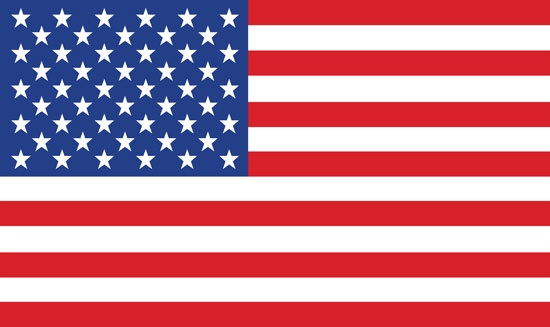
- Records Requests
- Passport Health App
- Privacy Center
- Online Store
- Skip to main content
- Skip to "About this site"
Language selection
Search travel.gc.ca.
Help us to improve our website. Take our survey !
COVID-19: travel health notice for all travellers
Thailand travel advice
Latest updates: The Health section was updated - travel health information (Public Health Agency of Canada)
Last updated: April 16, 2024 10:39 ET
On this page
Safety and security, entry and exit requirements, laws and culture, natural disasters and climate, thailand - exercise a high degree of caution.
Exercise a high degree of caution in Thailand due to ongoing political tensions and sporadic demonstrations in Bangkok and elsewhere in the country.
Southern provinces of Narathiwat, Pattani, Songkhla and Yala - Avoid all travel
Back to top

Southern provinces of Narathiwat, Pattani, Songkhla and Yala
Separatist insurgents periodically perpetrate criminally and politically motivated attacks in the southernmost provinces of Narathiwat, Pattani, Songkhla and Yala.
These deadly attacks include shootings, bombings and arson, and are usually directed at military, government and security buildings and personnel. They have also occurred in a variety of public places.
Martial law and heavily enhanced security measures are in place in Narathiwat, Pattani, Yala, and Sadao District in Songkhla.
Increased enforcement powers allow authorities to:
- detain suspects without charge
- conduct searches
- seize objects or documents
- impose curfews
You risk becoming a collateral victim of an attack if you travel in these provinces.
Myanmar border areas in the provinces of Mae Hong Son and Tak
Exercise a high degree of caution when travelling to the Thailand–Myanmar border areas in the provinces of Mae Hong Son and Tak.
Occasional violence, banditry and clashes between government forces and drug traffickers occur.
Border crossing points may be closed without notice. Cross at designated border crossing points only, with the required travel documentation.
Preah Vihear Temple area and surrounding border region
Thailand and Cambodia have an ongoing border dispute in the region. There are reports of landmines in the Preah Vihear temple area.
Exercise a high degree of caution if you are travelling to any other Thai–Cambodian border areas.
Political tensions
Political instability in Thailand has created a volatile and unpredictable security environment throughout the country, particularly in Bangkok.
Legal provisions may allow the military to retain and exercise sweeping powers that could include the right to:
- prevent public gatherings
- censor media
- set up checkpoints
- restrict movement
- search for weapons
- exercise force in response to violence
Such measures could be enforced at any time. Some television, radio stations and web sites may be unavailable, and access to social media services may be intermittently suspended.
Petty crime, such as purse snatching, pickpocketing and theft, is common. Thieves sometimes use razors to cut purses and bags open to remove their contents.
- Don’t leave bags unattended
- Ensure that your personal belongings, including your passport and travel documents, are secure at all times, especially in tourist areas, crowded markets and bus or train stations
- Avoid walking in dark alleys or isolated areas
Thefts occur on cross-country buses and vans. Personal belongings, including passports, have been stolen from luggage compartments under buses, especially on long-distance journeys. Use only reputable transportation companies.
Break-ins occur at budget guesthouses, sometimes while guests are asleep in their rooms.
Be careful at night in entertainment areas throughout the country, including in Koh Pha Ngan and Koh Tao, particularly during full moon parties, Songkran, and other events in popular tourist locations. Robberies and assaults (including sexual assaults) can occur during these events. Passport thefts and losses are common.
Violent crime against foreigners occurs occasionally.
You should report all criminal incidents to the Thai police in the jurisdiction where the incident occurred before leaving Thailand.
Many Canadians fall victim to a variety of scams while visiting Thailand. You should report all incidents to the tourist police.
Credit card and ATM fraud
Credit card and ATM fraud occurs. Be cautious when using debit or credit cards:
- pay careful attention when your cards are being handled by others
- use ATMs located in well-lit public areas or inside a bank or business
- avoid using card readers with an irregular or unusual feature
- cover the keypad with one hand when entering your PIN
- check for any unauthorized transactions on your account statements
Rental scams
Rental companies have at times accused renters of causing damage upon return of the equipment. In some cases, renters who refused to pay were harassed and threatened, and their passports (left as collateral) were withheld. Some companies have also stolen the motorcycle and then claimed compensation from the renter.
Before renting a motorcycle or personal watercraft, read all rental contracts thoroughly to ensure that the vehicle is insured to cover damage and theft. Take photos of existing damage on rented vehicles as proof of pre-existing damage.
You must never use your Canadian passport as collateral for rental. If your passport is inaccessible or stolen because of such a situation, you may be subject to investigation by Passport Canada and may receive limited passport services.
Only rent from reputable companies.
Entertainment venues
Some bars, nightclubs and entertainment venues may try to charge exorbitant prices. Discussions about overcharging may lead to threats of violence.
- Confirm the prices before consumption
- Avoid running a tab
- Avoid leaving your credit card with bar or restaurant staff
Travel agencies
When dealing with travel agencies, ensure that the company is a reputable tour organization before providing payment.
Investment fraud
If you plan on buying property or making other investments in Thailand seek legal advice in Canada and Thailand. Do so before making commitments. Related disputes could take time and be costly to resolve.
Gems and jewellery purchases
In scams involving gems and jewellery, merchants sell lower-quality items at inflated prices with promises that the items can be resold at a profit. The guarantees that merchants offer are not always honoured.
Carefully consider all purchases if you are not knowledgeable about gems and jewellery. The Government of Canada cannot assist in obtaining refunds for purchases made.
Overseas fraud
Spiked food and drinks
Never leave food or drinks unattended or in the care of strangers. Be wary of accepting snacks, beverages, gum or cigarettes from new acquaintances. These items may contain drugs that could put you at risk of sexual assault and robbery.
Seek immediate medical attention if you suspect that you have been drugged.
Women’s safety
Sexual assaults against foreign women have occurred. Be particularly vigilant during full moon parties, Songkran, and other events in popular tourist locations.
If you are victim of a sexual assault, you should seek medical attention and report the situation immediately to local authorities and the nearest Canadian office.
Advice for women travellers
There is a threat of terrorism in Thailand. Although infrequent outside of the southern provinces of Narathiwat, Pattani, Songkhla and Yala, small-scale bomb attacks have occurred in public places. Further attacks are possible.
Targets could include:
- government buildings, including schools
- places of worship
- airports and other transportation hubs and networks
- public areas such as tourist attractions, restaurants, bars, coffee shops, shopping centres, markets, hotels and other sites frequented by foreigners
Always be aware of your surroundings when in public places.
Demonstrations
Large demonstrations are taking place regularly in Bangkok and across the country. There are social tensions, and demonstrations are likely to continue.
Even peaceful demonstrations can turn violent at any time. They can also disrupt traffic and public transportation when they block major roads and intersections and may cause the closure of mass transit stations.
Maintain a high level of personal security awareness at all times.
Demonstration sites in Bangkok include:
- the areas around the Victory Monument
- Thammasat University
- the Bangkok Arts and Cultural Centre
- the Democracy Monument
- Ratchaprasong intersection
Other areas of the city may also be affected by protests and associated movements. Demonstrations have also taken place in other cities.
- Avoid military installations and concentrations of security personnel
- Expect a heightened security presence in several areas
- Carry identification documents at all time
- Avoid areas where demonstrations and large gatherings are taking place
- Follow the instructions of local authorities
- Monitor local media for information on ongoing demonstrations
Mass gatherings (large-scale events)
Water activities
Deaths have occurred due to contact with poisonous jellyfish off Koh Lanta, Koh Pha Ngan, Koh Phi Phi, Krabi and Phuket.
Riptides in coastal areas can be strong, including in the popular destinations of Cha-am/Hua Hin, Koh Samui, Pattaya, Phuket and Rayong. There have been several deaths due to drowning.
Diving schools and rescue services may not adhere to international standards.
- Rent water sports equipment only from operators affiliated with major international training organizations
- Exercise extreme caution when swimming or practising water activities
- Heed flag warnings and don’t swim when a red flag is displayed
- If stung by a jellyfish, seek immediate medical assistance
Water safety abroad
Adventure tourism
If you undertake adventure sports, such as zip-lining, rock climbing, speleology, elephant trekking or parasailing, choose a well-established and reputable company that has insurance.
Tour operators may not adhere to international standards. If you have any doubt concerning the safety of the installation or equipment, don’t use them. Ensure that your travel insurance covers the recreational activities you choose.
If engaging in adventure tourism:
- never do so alone
- always hire an experienced guide from a reputable company
- buy travel insurance that includes helicopter rescue and medical evacuation
- ensure that your physical condition is good enough to meet the challenges of your activity
- don’t venture off marked trails
- ensure that you’re properly equipped
- ensure that you’re well informed about weather and other conditions that may pose a hazard
- inform a family member or friend of your itinerary
- obtain detailed information on each activity before setting out
Chemical pesticide poisoning
There have been cases of poisoning linked to the use of chemical pesticides, including phosphine. Seek immediate medical assistance if you believe that you have been exposed to a chemical pesticide and are experiencing unusual symptoms.
Seek information on whether or not chemical pesticides are used in your accommodations.
Road safety
Accidents involving vehicles and pedestrians are extremely frequent in Thailand.
Hazardous road conditions, adverse weather conditions, local disregard for traffic laws and drunk driving result in frequent accidents.
Some vehicles may drive against the flow of traffic and on the sidewalks, particularly motorcycles.
Drunk driving and accidents are much more frequent around the western New Year (January 1) and Thai New Year (Songkran, mid-April). Be particularly vigilant when driving during these holiday periods.
Slow-moving trucks limit speed and visibility. Avoid driving on mountain roads at night, especially during the rainy season (June to October). Paved roads connect major cities, but most have only two lanes. Some roads can become impassable, particularly during the rainy season.
Pedestrians and cyclists should be particularly careful. You should always use elevated walkways/pedestrian bridges whenever possible, especially in Bangkok.
Motorcycles
Motorcycle accidents are common and are responsible for the majority of road deaths. Rental scooters and motorcycles are often poorly maintained, making them unsafe to their riders and others on the road.
Helmets are mandatory for motorcycle riders (including passengers), but many helmets don’t meet international safety standards.
Insurance claims could be denied if you were driving without a motorcycle licence.
Avoid driving or riding motorcycles in Thailand, even if you are an experienced motorcyclist
Public transportation
Use licensed taxis from official taxi stands, limousine services or a trusted ride-sharing app.
If arriving by air, arrange to be picked up by hotel shuttle services, use a trusted ride-sharing app, the airport rail-link service or official airport buses.
Unlicensed vehicles (bearing black and white licence plates) are not correctly insured to carry passengers and may not use meters. Many taxis may not be equipped with backseat seatbelts.
Don’t share a taxi with strangers.
Disputes with taxis operators, tuk-tuks (motorized rickshaws), etc., occur and have occasionally resulted in violence or intimidation. Should a dispute occur and you feel threatened, seek local police's assistance to settle the matter.
Marine transportation
Passenger boats accidents have occurred due to overloading and poor maintenance of some vessels. Vessels often lack adequate safety equipment.
Don’t board vessels that appear overloaded or unseaworthy.
In the past, rail lines in the far south have been the targets of sabotage and armed attacks.
Train accidents in recent years have caused injuries and deaths.
Pirate attacks and armed robbery against ships occur in coastal waters. Mariners should take appropriate precautions.
Live piracy report - International Maritime Bureau
We do not make assessments on the compliance of foreign domestic airlines with international safety standards.
Information about foreign domestic airlines
Every country or territory decides who can enter or exit through its borders. The Government of Canada cannot intervene on your behalf if you do not meet your destination’s entry or exit requirements.
We have obtained the information on this page from the Thai authorities. It can, however, change at any time.
Verify this information with the Foreign Representatives in Canada .
Entry requirements vary depending on the type of passport you use for travel.
Before you travel, check with your transportation company about passport requirements. Its rules on passport validity may be more stringent than the country’s entry rules.
Regular Canadian passport
Your passport must be valid at least 6 months upon entry into Thailand.
Passport for official travel
Different entry rules may apply.
Official travel
Passport with “X” gender identifier
While the Government of Canada issues passports with an “X” gender identifier, it cannot guarantee your entry or transit through other countries. You might face entry restrictions in countries that do not recognize the “X” gender identifier. Before you leave, check with the closest foreign representative for your destination.
Other travel documents
Different entry rules may apply when travelling with a temporary passport or an emergency travel document. Before you leave, check with the closest foreign representative for your destination.
Useful links
- Foreign Representatives in Canada
- Canadian passports
Tourist visa: not required for stays of up to 30 days Business visa: required Student visa: required Working visa: required
If you’re travelling to Thailand for tourism with a regular Canadian passport, you can obtain a 30-day visa upon arrival.
If you obtain a multiple-entry tourist visa, you can stay for up to 60 days. The visa is valid for 6 months and must be obtained before travelling.
If you wish to stay longer than 60 days or work or study in Thailand, you must obtain the appropriate visa from a Thai embassy or consulate. Local authorities are actively monitoring and enforcing compliance with visa regulations.
Those applying for non-immigrant visas of category "O-A" need to show proof of a valid health insurance meeting specific criteria.
Guidelines Non-Immigrant Visa (O-A) - Thai General Insurance Association
Other entry requirements
Thai Border officials may ask you to show them a return or onward ticket and proof that you have sufficient funds to support yourself for the duration of your stay.
If you are unable to do so, you may be denied entry.
Entry stamp
You must get an entry stamp from an immigration officer at the point of entry into Thailand. Don’t get your visa, visa extension or entry stamp from visa shops or travel agents in Thailand.
A passport that has been altered or that contains counterfeit visas, and entry/exit stamps is deemed invalid. Offenders can expect jail sentences, fines and deportation, and may also be prohibited from entering Thailand in the future.
Length of stay
The date indicated on your Thai entry stamp determines how long you may stay in the country, even if your visa shows a different date.
All foreigners staying in Thailand longer than 3 months must notify Thailand’s immigration bureau of their residence every 90 days.
The Royal Thai Police perform random visa checks and strict penalties are enforced for overstaying. Canadians overstaying their visa have been arrested and detained until deportation. Deportation procedures are at the foreigner’s own expense and can be lengthy. Detention conditions in immigration detention centres are poor.
If you overstay, regardless of whether you leave Thailand voluntarily or are deported, you may be banned from re-entering Thailand for 1 to 10 years.
Notification of stay longer than 90 days - Thailand’s immigration bureau
Dual citizenship
If you are a dual citizen, you must enter and exit Thailand with the same nationality passport.
Children and travel
Learn more about travelling with children .
Yellow fever
Learn about potential entry requirements related to yellow fever (vaccines section).
Relevant Travel Health Notices
- Global Measles Notice - 13 March, 2024
- Zika virus: Advice for travellers - 31 August, 2023
- COVID-19 and International Travel - 13 March, 2024
This section contains information on possible health risks and restrictions regularly found or ongoing in the destination. Follow this advice to lower your risk of becoming ill while travelling. Not all risks are listed below.
Consult a health care professional or visit a travel health clinic preferably 6 weeks before you travel to get personalized health advice and recommendations.
Routine vaccines
Be sure that your routine vaccinations , as per your province or territory , are up-to-date before travelling, regardless of your destination.
Some of these vaccinations include measles-mumps-rubella (MMR), diphtheria, tetanus, pertussis, polio, varicella (chickenpox), influenza and others.
Pre-travel vaccines and medications
You may be at risk for preventable diseases while travelling in this destination. Talk to a travel health professional about which medications or vaccines may be right for you, based on your destination and itinerary.
Yellow fever is a disease caused by a flavivirus from the bite of an infected mosquito.
Travellers get vaccinated either because it is required to enter a country or because it is recommended for their protection.
- There is no risk of yellow fever in this country.
Country Entry Requirement*
- Proof of vaccination is required if you are coming from or have transited through an airport of a country where yellow fever occurs.
Recommendation
- Vaccination is not recommended.
- Discuss travel plans, activities, and destinations with a health care professional.
- Contact a designated Yellow Fever Vaccination Centre well in advance of your trip to arrange for vaccination.
About Yellow Fever
Yellow Fever Vaccination Centres in Canada * It is important to note that country entry requirements may not reflect your risk of yellow fever at your destination. It is recommended that you contact the nearest diplomatic or consular office of the destination(s) you will be visiting to verify any additional entry requirements.
There is a risk of hepatitis A in this destination. It is a disease of the liver. People can get hepatitis A if they ingest contaminated food or water, eat foods prepared by an infectious person, or if they have close physical contact (such as oral-anal sex) with an infectious person, although casual contact among people does not spread the virus.
Practise safe food and water precautions and wash your hands often. Vaccination is recommended for all travellers to areas where hepatitis A is present.
Measles is a highly contagious viral disease. It can spread quickly from person to person by direct contact and through droplets in the air.
Anyone who is not protected against measles is at risk of being infected with it when travelling internationally.
Regardless of where you are going, talk to a health care professional before travelling to make sure you are fully protected against measles.
Japanese encephalitis is a viral infection that can cause swelling of the brain. It is spread to humans through the bite of an infected mosquito. Risk is very low for most travellers. Travellers at relatively higher risk may want to consider vaccination for JE prior to travelling.
Travellers are at higher risk if they will be:
- travelling long term (e.g. more than 30 days)
- making multiple trips to endemic areas
- staying for extended periods in rural areas
- visiting an area suffering a JE outbreak
- engaging in activities involving high contact with mosquitos (e.g., entomologists)
Hepatitis B is a risk in every destination. It is a viral liver disease that is easily transmitted from one person to another through exposure to blood and body fluids containing the hepatitis B virus. Travellers who may be exposed to blood or other bodily fluids (e.g., through sexual contact, medical treatment, sharing needles, tattooing, acupuncture or occupational exposure) are at higher risk of getting hepatitis B.
Hepatitis B vaccination is recommended for all travellers. Prevent hepatitis B infection by practicing safe sex, only using new and sterile drug equipment, and only getting tattoos and piercings in settings that follow public health regulations and standards.
Malaria is a serious and sometimes fatal disease that is caused by parasites spread through the bites of mosquitoes. There is a risk of malaria in certain areas and/or during a certain time of year in this destination.
Antimalarial medication may be recommended depending on your itinerary and the time of year you are travelling. Consult a health care professional or visit a travel health clinic before travelling to discuss your options. It is recommended to do this 6 weeks before travel, however, it is still a good idea any time before leaving. Protect yourself from mosquito bites at all times: • Cover your skin and use an approved insect repellent on uncovered skin. • Exclude mosquitoes from your living area with screening and/or closed, well-sealed doors and windows. • Use insecticide-treated bed nets if mosquitoes cannot be excluded from your living area. • Wear permethrin-treated clothing. If you develop symptoms similar to malaria when you are travelling or up to a year after you return home, see a health care professional immediately. Tell them where you have been travelling or living.
In this destination, rabies is carried by dogs and some wildlife, including bats. Rabies is a deadly disease that spreads to humans primarily through bites or scratches from an infected animal. While travelling, take precautions , including keeping your distance from animals (including free-roaming dogs), and closely supervising children.
If you are bitten or scratched by an animal while travelling, immediately wash the wound with soap and clean water and see a health care professional. Rabies treatment is often available in this destination.
Before travel, discuss rabies vaccination with a health care professional. It may be recommended for travellers who are at high risk of exposure (e.g., occupational risk such as veterinarians and wildlife workers, children, adventure travellers and spelunkers, and others in close contact with animals).
Coronavirus disease (COVID-19) is an infectious viral disease. It can spread from person to person by direct contact and through droplets in the air.
It is recommended that all eligible travellers complete a COVID-19 vaccine series along with any additional recommended doses in Canada before travelling. Evidence shows that vaccines are very effective at preventing severe illness, hospitalization and death from COVID-19. While vaccination provides better protection against serious illness, you may still be at risk of infection from the virus that causes COVID-19. Anyone who has not completed a vaccine series is at increased risk of being infected with the virus that causes COVID-19 and is at greater risk for severe disease when travelling internationally.
Before travelling, verify your destination’s COVID-19 vaccination entry/exit requirements. Regardless of where you are going, talk to a health care professional before travelling to make sure you are adequately protected against COVID-19.
Safe food and water precautions
Many illnesses can be caused by eating food or drinking beverages contaminated by bacteria, parasites, toxins, or viruses, or by swimming or bathing in contaminated water.
- Learn more about food and water precautions to take to avoid getting sick by visiting our eat and drink safely abroad page. Remember: Boil it, cook it, peel it, or leave it!
- Avoid getting water into your eyes, mouth or nose when swimming or participating in activities in freshwater (streams, canals, lakes), particularly after flooding or heavy rain. Water may look clean but could still be polluted or contaminated.
- Avoid inhaling or swallowing water while bathing, showering, or swimming in pools or hot tubs.
Cholera is a risk in parts of this country. Most travellers are at very low risk.
To protect against cholera, all travellers should practise safe food and water precautions .
Travellers at higher risk of getting cholera include those:
- visiting, working or living in areas with limited access to safe food, water and proper sanitation
- visiting areas where outbreaks are occurring
Vaccination may be recommended for high-risk travellers, and should be discussed with a health care professional.
Travellers' diarrhea is the most common illness affecting travellers. It is spread from eating or drinking contaminated food or water.
Risk of developing travellers' diarrhea increases when travelling in regions with poor standards of hygiene and sanitation. Practise safe food and water precautions.
The most important treatment for travellers' diarrhea is rehydration (drinking lots of fluids). Carry oral rehydration salts when travelling.
Typhoid is a bacterial infection spread by contaminated food or water. Risk is higher among children, travellers going to rural areas, travellers visiting friends and relatives or those travelling for a long period of time.
Travellers visiting regions with a risk of typhoid, especially those exposed to places with poor sanitation, should speak to a health care professional about vaccination.
Insect bite prevention
Many diseases are spread by the bites of infected insects such as mosquitoes, ticks, fleas or flies. When travelling to areas where infected insects may be present:
- Use insect repellent (bug spray) on exposed skin
- Cover up with light-coloured, loose clothes made of tightly woven materials such as nylon or polyester
- Minimize exposure to insects
- Use mosquito netting when sleeping outdoors or in buildings that are not fully enclosed
To learn more about how you can reduce your risk of infection and disease caused by bites, both at home and abroad, visit our insect bite prevention page.
Find out what types of insects are present where you’re travelling, when they’re most active, and the symptoms of the diseases they spread.
There is a risk of chikungunya in this country. The risk may vary between regions of a country. Chikungunya is a virus spread through the bite of an infected mosquito. Chikungunya can cause a viral disease that typically causes fever and pain in the joints. In some cases, the joint pain can be severe and last for months or years.
Protect yourself from mosquito bites at all times. There is no vaccine available for chikungunya.
- In this country, dengue is a risk to travellers. It is a viral disease spread to humans by mosquito bites.
- Dengue can cause flu-like symptoms. In some cases, it can lead to severe dengue, which can be fatal.
- The level of risk of dengue changes seasonally, and varies from year to year. The level of risk also varies between regions in a country and can depend on the elevation in the region.
- Mosquitoes carrying dengue typically bite during the daytime, particularly around sunrise and sunset.
- Protect yourself from mosquito bites . There is no vaccine or medication that protects against dengue.
Zika virus is a risk in this country.
Zika virus is primarily spread through the bite of an infected mosquito. It can also be sexually transmitted. Zika virus can cause serious birth defects.
During your trip:
- Prevent mosquito bites at all times.
- Use condoms correctly or avoid sexual contact, particularly if you are pregnant.
If you are pregnant or planning a pregnancy, you should discuss the potential risks of travelling to this destination with your health care provider. You may choose to avoid or postpone travel.
For more information, see Zika virus: Pregnant or planning a pregnancy.
Animal precautions
Some infections, such as rabies and influenza, can be shared between humans and animals. Certain types of activities may increase your chance of contact with animals, such as travelling in rural or forested areas, camping, hiking, and visiting wet markets (places where live animals are slaughtered and sold) or caves.
Travellers are cautioned to avoid contact with animals, including dogs, livestock (pigs, cows), monkeys, snakes, rodents, birds, and bats, and to avoid eating undercooked wild game.
Closely supervise children, as they are more likely to come in contact with animals.
Human cases of avian influenza have been reported in this destination. Avian influenza is a viral infection that can spread quickly and easily among birds and in rare cases it can infect mammals, including people. The risk is low for most travellers.
Avoid contact with birds, including wild, farm, and backyard birds (alive or dead) and surfaces that may have bird droppings on them. Ensure all poultry dishes, including eggs and wild game, are properly cooked.
Travellers with a higher risk of exposure include those:
- visiting live bird/animal markets or poultry farms
- working with poultry (such as chickens, turkeys, domestic ducks)
- hunting, de-feathering, field dressing and butchering wild birds and wild mammals
- working with wild birds for activities such as research, conservation, or rehabilitation
- working with wild mammals, especially those that eat wild birds (e.g., foxes)
All eligible people are encouraged to get the seasonal influenza shot, which will protect them against human influenza viruses. While the seasonal influenza shot does not prevent infection with avian influenza, it can reduce the chance of getting sick with human and avian influenza viruses at the same time.
Person-to-person infections
Stay home if you’re sick and practise proper cough and sneeze etiquette , which includes coughing or sneezing into a tissue or the bend of your arm, not your hand. Reduce your risk of colds, the flu and other illnesses by:
- washing your hands often
- avoiding or limiting the amount of time spent in closed spaces, crowded places, or at large-scale events (concerts, sporting events, rallies)
- avoiding close physical contact with people who may be showing symptoms of illness
Sexually transmitted infections (STIs) , HIV , and mpox are spread through blood and bodily fluids; use condoms, practise safe sex, and limit your number of sexual partners. Check with your local public health authority pre-travel to determine your eligibility for mpox vaccine.
Tuberculosis is an infection caused by bacteria and usually affects the lungs.
For most travellers the risk of tuberculosis is low.
Travellers who may be at high risk while travelling in regions with risk of tuberculosis should discuss pre- and post-travel options with a health care professional.
High-risk travellers include those visiting or working in prisons, refugee camps, homeless shelters, or hospitals, or travellers visiting friends and relatives.
HIV (Human Immunodeficiency Virus) is a virus that attacks and impairs the immune system, resulting in a chronic, progressive illness known as AIDS (Acquired Immunodeficiency Syndrome).
High risk activities include anything which puts you in contact with blood or body fluids, such as unprotected sex and exposure to unsterilized needles for medications or other substances (for example, steroids and drugs), tattooing, body-piercing or acupuncture.
Medical services and facilities
Excellent healthcare is available in major cities, particularly in private hospitals and clinics. Quality of care varies significantly in rural areas.
Establishments may require confirmation of health insurance coverage, a guarantee of payment or an upfront deposit before admitting patients.
Psychiatric or psychological facilities and services in Thailand may not meet international standards. Canadians with mental illness have been committed to state facilities, detained and deported.
Medical evacuation can be very expensive and you may need it in case of serious illness or injury.
Make sure you get travel insurance that includes coverage for medical evacuation and hospital stays.
Travel health and safety
You must abide by local laws.
Learn about what you should do and how we can help if you are arrested or detained abroad .
Overview of the criminal law system in Thailand
Identification
You must carry identification at all times. Carry a photocopy of your passport bio-data page and Thai visa or entry stamp.
Police may still require that you produce the original document. If you fail to do so, you could be detained.
Penalties for possession, use or trafficking of illegal drugs, including cannabis, are very severe. Convicted offenders can expect heavy fines, jail sentences or even the death penalty.
Police regularly perform spot checks to search for illegal drugs, particularly in and around entertainment venues. Uniformed or undercover police may conduct physical searches and may screen your belongings. You may be asked to provide a urine sample.
If you carry prescription drugs or other medicines, keep them in clearly marked, original packaging.
Certain prescription drugs are frequently sold without prescription in entertainment areas and coastal resorts, including on the street. You should never buy controlled drugs without prescription or on the street. These may be counterfeit or could contain illegal substances. If you purchase these drugs, you could be subject to scrutiny or detained.
The legal drinking age in Thailand is 20.
It is illegal to promote the consumption of alcohol. You could be fined or taken to court for posting on social media any pictures that include alcoholic beverages or people consuming alcohol.
Drugs, alcohol and travel
It is prohibited to import, possess or use e-cigarettes, vaporisers, e-baraku (e-hashish) and their refills. Convicted offenders can expect heavy fines or jail sentences of up to 10 years.
A smoking ban is in effect on several beaches across the country and is punishable by a 100,000-baht fine and up to 1 year in prison.
Check with local authorities and look for no-smoking signs before smoking on a beach.
Gambling, with some exceptions, is illegal.
Lèse-majesté
Actions or words that are considered offensive or insulting to the king or the royal family are illegal and may result in criminal prosecution and lengthy prison sentences.
Don’t make any public statement, including online, that could be perceived as critical of:
- the monarchy
- the political situation in Thailand
- the Royal Thai Army
Restricted goods
There are strict regulations regarding the importation and exportation of images of the Buddha, counterfeit goods, pornographic material and other items.
Consult the complete list of restricted and prohibited items before travelling.
Restricted goods - Thai Customs
Feeding fish
Feeding fish in the ocean is illegal and punishable by a 100000-baht fine and up to 1 year in prison.
Do not feed fish in the ocean and avoid boat tour operators who encourage tourists to do so.
Traffic drives on the left.
You must be at least 18 years old to drive a car in Thailand.
You must carry an international driving permit or a Thai driver’s licence to drive in Thailand.
It is illegal to operate a motorcycle without a valid Thai motorcycle licence or an international driving permit with a motorcycle endorsement.
Helmets are mandatory for motorcycle riders (including passengers), but many helmets do not meet international safety standards.
Carry your identification card, driver’s licence and vehicle registration book at all times.
International Driving Permit
Housing foreign citizens
All hosts, including hotel staff and homeowners, must notify local authorities that they are housing foreign citizens within 24 hours of the arrival of these foreigners.
Commercial surrogacy
Commercial surrogacy is illegal in Thailand.
If you’re planning to visit Thailand for the purpose of commissioning surrogacy arrangements, you should consider the potential challenges involved in pursuing international surrogacy and seek specialist legal advice on Thai and Canadian laws prior to making any arrangements.
It is also recommended that you consult with Immigration, Refugees and Citizenship Canada (IRCC) on current policies regarding citizenship through descent and the issuance of Canadian travel documents.
Dual citizenship is not legally recognized in Thailand.
If local authorities consider you a citizen of Thailand, they may refuse to grant you access to Canadian consular services. This will prevent us from providing you with those services.
Travellers with dual citizenship
Compulsory military service
Male Thai citizens are subject to compulsory military service when they reach the age of 21. If you’re a dual Canadian–Thai citizen, you may be subject to this requirement.
International Child Abduction
The Hague Convention on the Civil Aspects of International Child Abduction is an international treaty. It can help parents with the return of children who have been removed to or retained in certain countries in violation of custody rights. It does not apply between Canada and Thailand.
If your child was wrongfully taken to, or is being held in Thailand by an abducting parent:
- act as quickly as you can
- consult a lawyer in Canada and in Thailand to explore all the legal options for the return of your child
- report the situation to the nearest Canadian government office abroad or to the Vulnerable Children’s Consular Unit at Global Affairs Canada by calling the Emergency Watch and Response Centre.
If your child was removed from a country other than Canada, consult a lawyer to determine if The Hague Convention applies.
Be aware that Canadian consular officials cannot interfere in private legal matters or in another country’s judicial affairs.
- International Child Abduction: A Guidebook for Left-Behind Parents
- Travelling with children
- Canadian embassies and consulates by destination
- Emergency Watch and Response Centre
The currency of Thailand is the Thai baht (THB).
Seismic activity
Thailand is located in an active seismic zone and is prone to earthquakes and tsunamis.
In case of an earthquake or a tsunami alert, follow the instructions of local authorities.
Tsunami alerts - U.S. Tsunami Warning System
The rainy (or monsoon) season extends from June to October. Seasonal flooding can hamper overland travel and reduce the provision of essential services. Roads may become impassable and bridges damaged.
Jungle treks are not advisable during the rainy season due to the possibility of mudslides. Flash flooding in caves has caused fatalities.
- Weather warnings - Thai Meteorological department
- Mekong river levels - Mekong River Commission
- Tornadoes, cyclones, hurricanes, typhoons and monsoons
Air pollution
Air pollution fluctuates greatly and can be hazardous in urban areas, including Bangkok and Chiang Mai. Seasonal smog during the dry season is recurrent. In the northern provinces, including Chiang Mai, air quality can also be affected by agricultural burning.
You should monitor air pollution levels, especially if you suffer from respiratory ailments or if you have a pre-existing medical condition.
Local authorities recommend that children, seniors and pregnant women wear anti-pollution masks, and minimize outdoor activities, when air pollution levels are high.
Air pollution in Thailand – World Air Quality Index
Local services
In case of emergency, dial:
- police: 191
- tourist police: 1155
- medical assistance: 1669
- firefighters: 199
General services
The Tourism Authority of Thailand offers general advice for tourists. Dial 1672 and press 9 for English.
Consular assistance
Online appointment requests
Thailand, Cambodia, Laos
For emergency consular assistance, call the Embassy of Canada to Thailand, in Bangkok, and follow the instructions. At any time, you may also contact the Emergency Watch and Response Centre in Ottawa.
The decision to travel is your choice and you are responsible for your personal safety abroad. We take the safety and security of Canadians abroad very seriously and provide credible and timely information in our Travel Advice to enable you to make well-informed decisions regarding your travel abroad.
The content on this page is provided for information only. While we make every effort to give you correct information, it is provided on an "as is" basis without warranty of any kind, expressed or implied. The Government of Canada does not assume responsibility and will not be liable for any damages in connection to the information provided.
If you need consular assistance while abroad, we will make every effort to help you. However, there may be constraints that will limit the ability of the Government of Canada to provide services.
Learn more about consular services .
Risk Levels
take normal security precautions.
Take similar precautions to those you would take in Canada.
Exercise a high degree of caution
There are certain safety and security concerns or the situation could change quickly. Be very cautious at all times, monitor local media and follow the instructions of local authorities.
IMPORTANT: The two levels below are official Government of Canada Travel Advisories and are issued when the safety and security of Canadians travelling or living in the country or region may be at risk.
Avoid non-essential travel
Your safety and security could be at risk. You should think about your need to travel to this country, territory or region based on family or business requirements, knowledge of or familiarity with the region, and other factors. If you are already there, think about whether you really need to be there. If you do not need to be there, you should think about leaving.
Avoid all travel
You should not travel to this country, territory or region. Your personal safety and security are at great risk. If you are already there, you should think about leaving if it is safe to do so.
Travel Vaccines and Advice for Thailand

Thailand is a popular destination with its tropical climate, food, culture and beaches.
Thai is the official language of Thailand. But, other smaller languages spoken in rural areas. The primary religion of Thailand is Buddhism and is prevalent in many aspects of culture throughout Thailand. Islam is also practiced in Southern provinces.
Bangkok, Thailand’s capital city, is also the largest city in the country. Bangkok is highly populated with congested streets, modern buildings and temples. It is most known for its nightlife.
Thailand’s other major cities include Ayutthaya, Chiang Mai, and Chiang Rai.
Do I Need Vaccines for Thailand?
Yes, some vaccines are recommended or required for Thailand. The PHAC and WHO recommend the following vaccinations for Thailand: hepatitis A , hepatitis B , typhoid , cholera , yellow fever , Japanese encephalitis , rabies , meningitis , polio , measles, mumps and rubella (MMR) , Tdap (tetanus, diphtheria and pertussis) , chickenpox , shingles , pneumonia and influenza .
See the bullets below to learn more about some of these key immunizations:
- Hepatitis A – Food & Water – Recommended for most travellers
- Hepatitis B – Blood & Body Fluids – Accelerated schedule available
- Typhoid – Food & Water – Shot lasts 2 years. Oral vaccine lasts 5 years, must be able to swallow pills. Oral doses must be kept in refrigerator.
- Cholera – Food & Water – Cholera is rare, but present in Thailand. Vaccination is recommended for travellers at increased risk or visiting areas with active transmission.
- Yellow Fever – Mosquito – Required if travelling from a country with risk of yellow fever transmission
- Japanese Encephalitis – Mosquito – Recommended depending on itinerary and activities. May be given to short- and extended-stay travellers, recurrent travellers and travel to rural areas. Present throughout country, especially northern regions. Most cases from May to October.
- Rabies – Saliva of Infected Animals – High risk country. Vaccine recommended for long-term travellers and those who may come in contact with animals.
- Measles Mumps Rubella (MMR) – Various Vectors – Given to anyone unvaccinated and/or born after 1957. One time adult booster recommended.
- TDAP (Tetanus, Diphtheria & Pertussis) – Wounds & Airborne – Only one adult booster of pertussis required.
- Chickenpox – Direct Contact & Airborne – Given to those unvaccinated that did not have chickenpox.
- Shingles – Direct Contact – Vaccine can still be given if you have had shingles.
- Pneumonia – Airborne – Two vaccines given seperately. All 65+ or immunocompromised should receive both.
- Influenza – Airborne – Vaccine components change annually.
- Meningitis – Airborne & Direct Contact – Given to anyone unvaccinated or at an increased risk, especially students.
- Polio – Food & Water – Considered a routine vaccination for most travel itineraries. Single adult booster recommended.
See the tables below for more information:
Various mosquito-borne diseases are present in Thailand. Malaria poses a threat to travellers to some regions of the country. Make sure you are protected with antimalarials.
Dengue , Zika and chikungunya can also be found in Thailand. While there are no vaccines available for these diseases, there are steps you can take to prevent them. Be sure to use mosquito repellents, netting and wear proper clothing.
Medical treatment is adequate and common in urban areas. Healthcare is also available in rural areas, though the health care providers may not speak English.
To find out more about these vaccines, see our vaccinations page . Ready to travel safely? Book your appointment either call or start booking online now .
Customer Reviews
Passport health – travel vaccines for thailand, do i need a visa or passport for thailand.
If you are entering Thailand for tourism purposes under a 30-day period, you do not require a visa. All Canadian citizens must have a valid passport upon arrival. For those travelling to Thailand for business purposes, a business visa is required.
Sources: Embassy of Thailand and Canadian Travel and Tourism
Always carry your passport and visa with you to avoid arrest in Thailand.
Visit the Canadian Travel and Tourism website for more information on entry and exit requirements.
What is the Climate Like in Thailand?
Thailand is a country with a tropical climate that is hot and humid throughout the year. The temperature ranges from 25 to 35 degrees Celsius during the day. The weather can be different depending on where you are in Thailand. Here are some popular tourist destinations:
- Bangkok : Bangkok is hot and humid all year round. It rains a lot, especially between May and October.
- Phuket : Phuket is a tropical place. It can rain a lot from May to October. The temperature is usually between 75 and 90 degrees.
- Chiang Mai : Chiang Mai has a tropical climate with three different seasons: cool, hot, and rainy. The cool season runs from November to February, the hot season from March to May, and the rainy season from June to October.
- Pattaya : Pattaya is hot and humid all year round. It rains a lot, especially between May and October.
- Koh Samui : Koh Samui is an island that has two different seasons: dry and rainy. The dry season runs from December to April, and the rainy season from May to November.
Remember that weather can change, so always check the forecast before you travel.
How Safe is Thailand?
In the past few years, there have been periodic terrorist attacks at popular tourist attractions in Thailand,. This remains a high-concern today. There is an ongoing risk of terrorist attacks in Thailand.
The National Council for Peace and Order (NCPO) has placed strict restrictions on media and have banned political gatherings. Tourists may be detained by the military for openly criticizing the NCPO.
Pick-pocketing is common in Thailand as is sexual violence in bars and isolated areas.
Do not use your passport as collateral. Many rental places are scams.
In Southern Thailand (Yala, Pattani, Narathiwat, and Songkhla), martial law is still prevalent. Tourists are cautioned against travelling to these areas.
Temples in Thailand
There are over 40,000 temples in Thailand, making them popular tourist attractions. These temples range in age and architecture and many are still in use today.
Wat Pho, located in Bangkok, is one of the most popular due to its size and attractions within. It is one of the largest complexes in the country, holding many buildings. Wat Pho houses the largest reclining Buddha and largest collection of Buddha images.
The site is also headquarters for the teaching and preservation of Thai medicine. There, tourists can find two massage schools and pavilions.
You must take off your shoes to enter and you purchase coins to put into bowls for good luck. All the money goes towards renovating and upkeeping the site.
What Should I Take To Thailand?
Thailand is a hot and humid country, it’s important to pack lightweight and comfortable clothing. You should bring comfortable shoes for walking, sun protection like sunscreen, hats, and sunglasses to avoid the strong sun rays. Mosquitoes are common in Thailand, so it’s important to bring insect repellent to avoid bites.
Thailand uses different types of electrical outlets, so it’s recommended to bring a universal adapter. It’s also recommended to pack any prescription medication and over-the-counter medications such as pain relievers, anti-diarrhea medication, and motion sickness medication.
Thailand is a cash-based society, so it’s important to bring cash and credit cards. If you plan to visit the beaches or go swimming, don’t forget to pack swimwear and a beach towel. When visiting temples or other religious sites, make sure to dress respectfully, covering your shoulders and knees, and avoid wearing revealing clothing in public places.
Don’t forget to bring your passport, visa (if required), travel insurance, and any other important travel documents.
Canadian Embassy in Thailand
Canadian consular services can help travellers with many issues they may face including passport services. Once in Thailand, the information for the Canadian Embassy is:
Canadian Embassy Bangkok 15th Floor, Abdulrahim Place, 990 Rama IV, Bangrak, Bangkok, 10500, Thailand Tel.: +66 0 2646 4300
If you have any questions about travelling to Thailand or are wondering what shots you may need for your trip, schedule an appointment with your local Passport Health travel medicine clinic. Call us at or book online now! and protect yourself today.
On This Page: Do I Need Vaccines for Thailand? Do I Need a Visa or Passport for Thailand? What is the Climate Like in Thailand? How Safe is Thailand? Temples in Thailand What Should I Take To Thailand? Canadian Embassy in Thailand

- PIPEDA Policy and Consent Form
- Privacy Policy
- Automatic Data Collection Statement
- Best Travel Insurance 2024
- Cheapest Travel Insurance
- Trip Cancellation Insurance
- Cancel for Any Reason Insurance
- Seniors' Travel Insurance
- Annual Travel Insurance
- Cruise Insurance
- COVID-19 Travel Insurance
- Travel Medical Insurance
- Medical Evacuation Insurance
- Pregnancy Travel Insurance
- Pre-existing Conditions Insurance
- Mexico Travel Insurance
- Italy Travel Insurance
- France Travel Insurance
- Spain Travel Insurance
- Canada Travel Insurance
- UK Travel Insurance
- Germany Travel Insurance
- Bahamas Travel Insurance
- Costa Rica Travel Insurance
- Disney Travel Insurance
- Schengen Travel Insurance
- Is travel insurance worth it?
- Average cost of travel insurance
- Is airline flight insurance worth it?
- Places to travel without a passport
- All travel insurance guides
- Best Pet Insurance 2024
- Cheap Pet Insurance
- Cat Insurance
- Pet Dental Insurance
- Pet Insurance That Pays Vets Directly
- Pet Insurance For Pre-Existing Conditions
- Pet Insurance with No Waiting Period
- Paw Protect Review
- Spot Pet Insurance Review
- Embrace Pet Insurance Review
- Healthy Paws Pet Insurance Review
- Pets Best Insurance Review
- Lemonade Pet Insurance Review
- Pumpkin Pet Insurance Review
- Fetch Pet Insurance Review
- Figo Pet Insurance Review
- CarePlus by Chewy Review
- MetLife Pet Insurance Review
- Average cost of pet insurance
- What does pet insurance cover?
- Is pet insurance worth it?
- How much do cat vaccinations cost?
- How much do dog vaccinations cost?
- All pet insurance guides
- Best Business Insurance 2024
- Business Owner Policy (BOP)
- General Liability Insurance
- E&O Professional Liability Insurance
- Workers' Compensation Insurance
- Commercial Property Insurance
- Cyber Liability Insurance
- Inland Marine Insurance
- Commercial Auto Insurance
- Product Liability Insurance
- Commercial Umbrella Insurance
- Fidelity Bond Insurance
- Business Personal Property Insurance
- Medical Malpractice insurance
- California Workers' Compensation Insurance
- Contractor's Insurance
- Home-Based Business Insurance
- Sole Proprietor's Insurance
- Handyman's Insurance
- Photographer's Insurance
- Esthetician's Insurance
- Salon Insurance
- Personal Trainer's Insurance
- Electrician's Insurance
- E-commerce Business Insurance
- Landscaper's Insurance
- Best Credit Cards of 2024
- Best Credit Card Sign-Up Bonuses
- Best Instant Approval Credit Cards
- Best Cash Back Credit Cards
- Best Rewards Credit Cards
- Best Credit Cards for Bad Credit
- Best Balance Transfer Credit Cards
- Best College Student Credit Cards
- Best 0% APR Credit Cards
- Best First Credit Cards
- Best No Annual Fee Cards
- Best Travel Credit Cards
- Best Hotel Credit Cards
- Best American Express Cards
- Best Amex Delta SkyMiles Cards
- Best American Express Business Cards
- Best Capital One Cards
- Best Capital One Business Cards
- Best Chase Cards
- Best Chase Business Cards
- Best Citi Credit Cards
- Best U.S. Bank Cards
- Best Discover Cards
- Amex Platinum Card Review
- Amex Gold Card Review
- Amex Blue Cash Preferred Review
- Amex Blue Cash Everyday Review
- Capital One Venture Card Review
- Capital One Venture X Card Review
- Capital One SavorOne Card Review
- Capital One Quicksilver Card Review
- Chase Sapphire Reserve Review
- Chase Sapphire Preferred Review
- United Explorer Review
- United Club Infinite Review
- Amex Gold vs. Platinum
- Amex Platinum vs. Chase Sapphire Reserve
- Capital One Venture vs. Venture X
- Capital One Venture X vs. Chase Sapphire Reserve
- Capital One SavorOne vs. Quicksilver
- Chase Sapphire Preferred vs. Capital One Venture
- Chase Sapphire Preferred vs. Amex Gold
- Delta Reserve vs. Amex Platinum
- Chase Sapphire Preferred vs. Reserve
- How to Get Amex Pre-Approval
- Amex Travel Insurance Explained
- Chase Sapphire Travel Insurance Guide
- Chase Pay Yourself Back
- CLEAR vs. TSA PreCheck
- Global Entry vs. TSA Precheck
- Costco Payment Methods
- All Credit Card Guides
- Citibank Savings Account Interest Rate
- Capital One Savings Account Interest Rate
- American Express Savings Account Interest Rate
- Western Alliance Savings Account Interest Rate
- Barclays Savings Account Interest Rate
- Discover Savings Account Interest Rate
- Chase Savings Account Interest Rate
- U.S. Bank Savings Account Interest Rate
- Marcus Savings Account Interest Rate
- Synchrony Bank Savings Account Interest Rate
- Ally Savings Account Interest Rate
- Bank of America Savings Account Interest Rate
- Wells Fargo Savings Account Interest Rates
- SoFi Savings Account Interest Rate
- Best Savings Accounts & Interest Rates
- Best High Yield Savings Accounts
- Best 7% Interest Savings Accounts
- Best 5% Interest Savings Accounts
- Savings Interest Calculator
- Emergency Fund Calculator
- Pros and Cons of High-Yield Savings Accounts
- Types of Savings Accounts
- Checking vs Savings Accounts
- Average Savings by Age
- How Much Should I Have in Savings?
- How to Make Money
- How to Save Money
- Compare Best Checking Accounts
- Compare Online Checking Accounts
- Best Business Checking Accounts
- Compare Best Teen Checking Accounts
- Best Student Checking Accounts
- Best Joint Checking Accounts
- Best Second Chance Checking Accounts
- Chase Checking Account Review
- Bluevine Business Checking Review
- Amex Rewards Checking Account Review
- E&O Professional Liability Insurance
- Best Savings Accounts & Interest Rates
- All Insurance Guides
- Travel Insurance for Thailand
On This Page
- Key takeaways
Do I need travel insurance to visit Thailand?
Our top picks for the best thailand travel insurance, thailand travel information & requirements, why thailand travel insurance is important, what does travel insurance for thailand cover, what isn’t covered by travel insurance for thailand, how much does travel insurance for thailand cost, tips for getting the best thailand travel insurance, faq: travel insurance for thailand, related topics.
Travel Insurance for Thailand: US Visitor Requirements & Tips
- U.S. health insurance is typically not accepted in Thailand , so it’s a good idea to purchase travel medical insurance for your trip.
- Based on our research, our top picks for travel insurance for a trip to Thailand come fro m Tin Leg, Seven Corners, and John Hancock.
- Comprehensive travel insurance policies will usually cover medical emergencies and evacuation, trip delays, cancellations and interruptions, and lost or stolen baggage.
- Travel insurance can cost as little as around $1 per day for the most basic medical and medical evacuation coverage.
- To find the best travel insurance for your trip to Thailand, try using an online comparison tool . This way, you get multiple quotes and compare all your coverage options to find the best deal.
Our top picks for the best travel insurance for thailand
- Tin Leg: Best Rated Travel Isurance
- Seven Corners: Best Value for Medical Emergencies
- John Hancock Insurance Agency, Inc.: Best plan for a Solid Coverage
Seven Corners
John hancock insurance agency, inc..
You are not legally required to have travel insurance to visit Thailand, but it’s advised so you have the protection and support you need in case of illness, injury, theft or other travel hiccups.
Below are some risks that could make getting travel insurance worthwhile for your trip to Thailand.
Best Rated Travel Isurance
Why we like it.
- Excellent primary coverage for medical expenses
- High limit for emergency evacuation coverage
- Optional cancel for any reason (CFAR) coverage available
- Comes with coverage for hurricanes and inclement weather
- Coverage for pre-existing conditions is available if purchased within 14 days of the trip deposit
- Baggage delay coverage requires a 24-hour waiting period
- Low coverage limits for baggage and personal effects
Best Value for Medical Emergencies
- Offers coverage for pre-existing conditions
- Money-back guarantee
- Cancellation & Interruption coverage standard
- Covers action sports & equipment
- Cancel for any reason not included standard
- Must meet waiver for pre-existing conditions to be covered
Best plan for a Solid Coverage
- Travel delay coverage kicks in after just three hours
- Generous coverage for emergency evacuation and repatriation of remains
- Optional CFAR upgrade available
- Baggage insurance comes with generous limits of up to $2,500
- Terror attack coverage included
- Baggage delay coverage requires a 12-hour waiting period
Are there COVID-19 restrictions for U.S. tourists?
As of January 2024, there are no COVID-19 restrictions in place for U.S. tourists hoping to visit Thailand.
Do I need a visa or passport to travel to Thailand?
You only need a visa to travel to Thailand if you intend to stay longer than 30 days . Short-term stays that fall under that threshold do not require a visa. You do need a passport to enter the country, and it’s recommended your passport be valid for at least six months past your intended entry date to avoid being turned away at the border/customs.
Is it safe to visit Thailand?
According to the latest updates from the U.S. Department of State, it’s safe to travel to most parts of Thailand . The DOS puts Thailand’s overall threat rating at Level 1, which means you should exercise normal precautions. That said, there is civil unrest and a higher risk of violence in the provinces of Yala, Pattani, Narathiwat, and Songkhla, which the U.S. DOS has put at Level 3 (reconsider travel).
When is the best time to visit Thailand?
Thailand is beautiful year-round. November through March marks the dry months, following the wet season from May through October. If you’re sensitive to heat, consider avoiding Thailand in April . That’s the country’s hottest month, and temperatures then regularly hit 105° F (40° C).
Risk of insect-borne diseases
Mosquitos are prevalent in Thailand, and they can transmit diseases like malaria, dengue fever, chikungunya, Japanese encephalitis, filariasis and Zika. Using insect repellents and mosquito nets, avoiding affected areas and taking prophylactic medications can help prevent infection. But if you do get sick, travel insurance could make all the difference in getting care fast.
Extreme weather conditions
Thailand is a beautiful country full of waterfront vistas and lush, tropical forests, but it’s also situated in a geographic area that’s prone to floods, earthquakes and tsunamis, similar to visiting Japan . Travel insurance policies that include trip cancellation protection and emergency evacuation clauses can protect you financially if your trip is canceled or you need to get out of the country ASAP because of a natural disaster.
Petty theft and pickpockets
Petty theft, including pick-pocketing, is a concern in many tourist areas throughout the world, and Thailand’s major cities of Bangkok and Chiang Mai are no exception. Certain travel insurance policies also include reimbursement for stolen goods, such as a wallet that was snatched during a pick-pocketing event or travel documents that disappeared when your luggage vanished at the airport.
Travel insurance policies can differ greatly depending on the insurer and other factors, such as the size of the deductible or the provider you choose.
Consider these types of coverage when purchasing travel insurance for your trip to Thailand.
Trip cancellation insurance
If you need to cancel your trip to Thailand for a covered reason, trip cancellation insurance can reimburse you for pre-paid travel expenses that are non-refundable.
It’s important to note, though, t hat trip cancellation insurance is far from universal . If you just decide you don’t feel like going to Thailand anymore or your boss refuses to give you the time off, your cancellation clause may not apply. Some medical conditions, like pregnancy , are also not covered as a covered reason for cancellation.
Read the fine print carefully to see what’s covered and what isn’t, and consider a CFAR (cancel for any reason) policy if you have additional concerns. With this type of coverage, you can cancel your travel plans for any reason at all and get back around 50% to 70% of your prepaid travel expenses.
Trip delay insurance
Chances are you don’t have a direct flight from your hometown to Thailand. Most people will have to grab one, if not two or three, connecting flights, and that means more layovers and more opportunities for your schedule to go awry. If your flight is delayed and you miss a connection, trip delay insurance kicks in to cover your expenses while you’re stuck in an airport or intermediary city.
Most delay policies have a grace period before they kick in, so you may have to wait 6 or 12 hours before you get reimbursement for delay-related expenses. But once that period has passed, you can make a claim for things like temporary accommodations and food plus the cost of anything you’re missing out on in Thailand while you navigate the delay.
Trip interruption insurance
Trip interruption insurance is like trip cancellation and delay policies except that it applies to a trip that’s already in progress but has to be cut short . Imagine you’re already in Thailand when you get a call about an emergency back home. You have another week of hotel, car and entertainment costs you’ve already paid for, but now you need to return home early.
Your trip interruption insurance could cover those costs so you can go home worry-free, but your reason for flying out ASAP needs to be an emergency covered by your policy (e.g., illness or death in the family, terrorism at your travel destination, etc.).
Travel medical insurance
It’s extremely doubtful your U.S. health insurance company offers any coverage while you’re abroad, so travel medical insurance is crucial . Look for policies that cover medical expenses related to both illnesses and accidents, so you’re taken care of whether you contract the common cold or need an ambulance ride after you slip and fall at the Temple of Dawn.
Medical evacuation insurance
If you become sick or are hurt beyond what a local hospital or doctor’s office can handle, you may need to be moved to another country where trauma care is more readily available. Medical evacuation insurance goes beyond medical expenses to cover transportation, like Medevac rides to get you to an advanced facility as soon as possible.
Insurance for personal items
Some travel insurance companies offer coverage that includes replacing or reimbursing you for baggage and personal items that are lost and stolen. This is a good thing to have in areas where petty theft is common, but there are always exceptions. You will likely need to file a police report to turn into your insurance company when you file a claim, and there are typically caps on how much your policy will cover.
Rental car coverage
Rental car coverage is not automatically included in Thai travel insurance, so you’ll need to ask your insurance company or consider an add-on policy. Read the fine print to see what’s covered. Collision, theft and damage due to a natural disaster are all possibilities but may not all be covered.
The most common travel insurance exclusions are cancellations or trip interruptions caused by what insurance companies call “known or foreseeable events.” That might be something like wanting to cut your trip short because you don’t like all the bugs in Thailand or bailing on the trip altogether because you heard it’s been raining really hard.
Other things that may not be covered include:
- Endemics and pandemics (some companies have or had temporary COVID-19 policies )
- Cancellations due to poor paperwork or malfeasance, such as if you’re detained at customs or tried to travel with a soon-to-expire passport
- Medical expenses or repatriation needs resulting from a risky activity (e.g., cliff diving or hot air ballooning with a non-licensed company) or due to a pre-existing condition.
Travel insurance can cost as little as around $1 per day for the most basic medical and medical evacuation coverage . For a more comprehensive policy, you can expect to pay around $7 to $11 per day.
To give you a better idea of how much travel insurance will cost for a trip to Thailand, we got price quotes from some popular travel insurance providers.
We applied these details to our quotes:
- Age: 35 years old
- Destination: Thailand
- Trip Length: 7 days
- Trip cost: $2,000
We’ve displayed our price quotes for basic travel insurance coverage in the table below. These plans range from less than $1 per day to $6 per day.
Example Where Plan Doesn’t Reimburse the Full Trip Cost
A more comprehensive travel insurance policy that covers trip cancellation and trip interruption will be a bit more expensive. Our quotes from the same providers show that this type of protection costs around $7 to $11 per day.
Example Where Plan Does Reimburse the Full Trip Cost
Keep in mind that the final cost of your Thailand travel insurance will depend on a variety of factors, including the following:
- The amount of coverage you need
- How long you’re traveling for
To get the best Thailand travel insurance, think about when you’re going, how you’ll get there and when you want to buy your policy.
Then, follow these tips:
- If you travel often, consider an annual multi-trip policy and you could save by bundling.
- Get lower premiums by increasing the excess/amount you’ll pay if you do need to make a claim.
- Get quotes for a Thailand-specific policy rather than one that covers all of Asia.
- For longer stays, look at extended-stay insurance or backpacker policies.
Do I really need travel insurance for Thailand?
Travel insurance for Thailand is not legally required, but a policy is recommended so you can protect yourself against everything from a canceled or delayed trip to catching the flu or dengue fever during your visit.
Is health insurance still required in Thailand?
Health insurance was required for visitors to Thailand during the height of the COVID-19 pandemic, but that policy is no longer in place.
What is the best health insurance in Thailand for foreigners?
The best health insurance in Thailand for foreigners is the policy that offers the best coverage for your specific needs, health history, length of stay and the level of risk associated with your health or the type of activities you have planned. Try using our online comparison tool to find the best travel insurance policy for you.

Alana Luna (Musselman) is a versatile storyteller with over a decade of writing experience. She is passionate about helping people build their business through unique and engaging content. Some examples of her current freelance projects include building content strategies for small businesses, completing industry research to build case studies, crafting buyer guides and more.
She has a passion and keen ability to simplify complex ideas through storytelling to make it easier for readers to understand hard-to-digest information. As such, Alana’s writing holds strong three principles – content that educates, engages and entertains.
Apart from her contributions to LA Times Compare, Alana has freelanced and ghostwritten for large publications and prestigious brands such as Orbitz, Groupon, Amazon, JCPenney, Walmart and more.
Explore related articles by topic
- All Travel Insurance Articles
- Learn the Basics
- Health & Medical
- Insurance Provider Reviews
- Insurance by Destination
- Trip Planning & Ideas
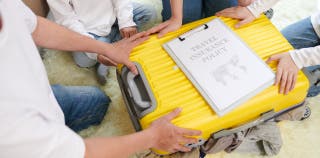
Best Travel Insurance Companies & Plans in 2024
Best Medical Evacuation Insurance Plans 2024

Best Travel Insurance for Seniors

Best Cruise Insurance Plans for 2024
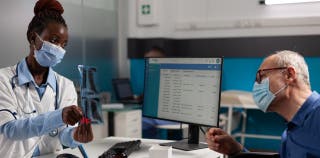
Best COVID-19 Travel Insurance Plans for 2024

Best Cheap Travel Insurance Companies - Top Plans 2024

Best Cancel for Any Reason (CFAR) Travel Insurance

Best Annual Travel Insurance: Multi-Trip Coverage

Best Travel Medical Insurance - Top Plans & Providers 2024

- Is Travel Insurance Worth It?

Is Flight Insurance Worth It? | Airlines' Limited Coverage Explained
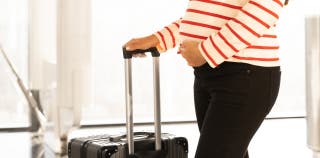
Guide to Traveling While Pregnant: Pregnancy Travel Insurance

10 Romantic Anniversary Getaway Ideas for 2023

Best Travel Insurance for Pre-Existing Medical Conditions April 2024

22 Places to Travel Without a Passport in 2024

Costa Rica Travel Insurance: Requirements, Tips & Safety Info

Best Spain Travel Insurance: Top Plans & Cost

Best Italy Travel Insurance: Plans, Cost, & Tips

Best Travel Insurance for your Vacation to Disney World

Chase Sapphire Travel Insurance Coverage: What To Know & How It Works

2024 Complete Guide to American Express Travel Insurance
Schengen Travel Insurance: Coverage for your Schengen Visa Application

Mexico Travel Insurance: Top Plans in 2024

Best Places to Spend Christmas in Mexico this December

Travel Insurance to Canada: Tips & Quotes for US Visitors
Best Travel Insurance for France Vacations in 2024
Travel Insurance for Germany: Tourist Information & Tips

Best UK Travel Insurance: Coverage Tips & Plans April 2024

Travel Insurance for Trips to the Bahamas: Tips & Safety Info

Europe Travel Insurance: Your Essential Coverage Guide

Best Trip Cancellation Insurance Plans for 2024
What Countries Require Travel Insurance for Entry?
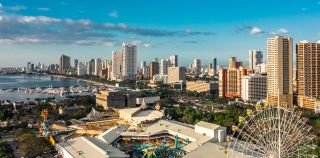
Philippines Travel Insurance: Coverage Requirements & Costs

Travel Insurance for the Dominican Republic: Requirements & Tips
Travel Insurance for Trips Cuba: Tips & Safety Info
AXA Travel Insurance Review April 2024

Travel Insurance for a Trip to Ireland: Compare Plans & Prices

Travel Insurance for a Japan Vacation: Tips & Safety Info

Faye Travel Insurance Review April 2024

Travel Insurance for Brazil: Visitor Tips & Safety Info

Travel Insurance for Bali: US Visitor Requirements & Quotes

Travel Insurance for Turkey: U.S. Visitor Quotes & Requirements

Travel Insurance for India: U.S. Visitor Requirements & Quotes

Australia Travel Insurance: Trip Info & Quotes for U.S. Visitors

Generali Travel Insurance Review April 2024

Travelex Travel Insurance Review for 2024

Tin Leg Insurance Review for April 2024

Travel Insured International Review for 2024

Seven Corners Travel Insurance Review April 2024

HTH WorldWide Travel Insurance Review 2024: Is It Worth It?

Medjet Travel Insurance Review 2024: What You Need To Know

Antarctica Travel Insurance: Tips & Requirements for US Visitors

Travel Insurance for Kenya: Recommendations & Requirements

Travel Insurance for Botswana: Compare Your Coverage Options

Travel Insurance for Tanzania: Compare Your Coverage Options

Travel Insurance for an African Safari: Coverage Options & Costs
Nationwide Cruise Insurance Review 2024: Is It Worth It?
- Travel Insurance
- Travel Insurance for Seniors
- Cheap Travel Insurance
- Cancel for Any Reason Travel Insurance
- Travel Health Insurance
- How Much is Travel Insurance?
- Is Flight Insurance Worth It?
- Anniversary Trip Ideas
- Travel Insurance for Pre-Existing Conditions
- Places to Travel Without a Passport
- Christmas In Mexico
- Europe Travel Insurance
- Compulsory Insurance Destinations
- Philippines Travel Insurance
- Dominican Republic Travel Insurance
- Cuba Travel Insurance
- AXA Travel Insurance Review
- Ireland Travel Insurance
- Japan Travel Insurance
- Faye Travel Insurance Review
- Brazil Travel Insurance
- Travel Insurance Bali
- Travel Insurance Turkey
- India Travel Insurance
- Australia Travel Insurance
- Generali Travel Insurance Review
- Travelex Travel Insurance Review
- Tin Leg Travel Insurance Review
- Travel Insured International Travel Insurance Review
- Seven Corners Travel Insurance Review
- HTH WorldWide Travel Insurance Review
- Medjet Travel Insurance Review
- Antarctica Travel Insurance
- Kenya Travel Insurance
- Botswana Travel Insurance
- Tanzania Travel Insurance
- Safari Travel Insurance
- Nationwide Cruise Insurance Review
Policy Details
LA Times Compare is committed to helping you compare products and services in a safe and helpful manner. It’s our goal to help you make sound financial decisions and choose financial products with confidence. Although we don’t feature all of the products and services available on the market, we are confident in our ability to sound advice and guidance.
We work to ensure that the information and advice we offer on our website is objective, unbiased, verifiable, easy to understand for all audiences, and free of charge to our users.
We are able to offer this and our services thanks to partners that compensate us. This may affect which products we write about as well as where and how product offers appear on our website – such as the order in which they appear. This does not affect our ability to offer unbiased reviews and information about these products and all partner offers are clearly marked. Given our collaboration with top providers, it’s important to note that our partners are not involved in deciding the order in which brands and products appear. We leave this to our editorial team who reviews and rates each product independently.
At LA Times Compare, our mission is to help our readers reach their financial goals by making smarter choices. As such, we follow stringent editorial guidelines to ensure we offer accurate, fact-checked and unbiased information that aligns with the needs of the Los Angeles Times audience. Learn how we are compensated by our partners.
You are using an outdated browser. Upgrade your browser today or install Google Chrome Frame to better experience this site.

Routine Vaccines
It’s important to be up to date on recommended routine vaccines prior to travel, including Flu, RSV and COVID-19.

Find a Clinic
Advice for Travelers
Personalized Health Information Tool for Global Travel
Disease Directory
Frequently Asked Questions
CDC Yellow Book
Pre-travel Rapid Evaluation Portal for Patients
Clinician Resources
Research and Surveillance
- Medical Tourism
- Cholera Information for Health Care Professionals
- COVID-19 Travel Information
- Travel Industry Resources

Learn about CDC’s Traveler Genomic Surveillance Program that detects new COVID-19 variants entering the country.

Sign up to get travel notices, clinical updates, & healthy travel tips.
See the full list of Travel Health Notices , including:
Level 2 - Practice Enhanced Precautions
- Updated Global Polio April 26, 2024
- Diphtheria in Guinea April 23, 2024
- Chikungunya in Timor-Leste April 05, 2024
Level 1 - Practice Usual Precautions
- Updated Global Measles April 26, 2024
- Updated Oropouche Fever in South America April 24, 2024
- Dengue in Asia and the Pacific Islands April 18, 2024
There are no Warning , Alert, Watch, COVID-19 Very High, COVID-19 High, COVID-19 Moderate, COVID-19 Low, COVID-19 Unknown, Level 4, or Level 3 notices currently in effect.
File Formats Help:
- Adobe PDF file
- Microsoft PowerPoint file
- Microsoft Word file
- Microsoft Excel file
- Audio/Video file
- Apple Quicktime file
- RealPlayer file
- Zip Archive file
Exit Notification / Disclaimer Policy
- The Centers for Disease Control and Prevention (CDC) cannot attest to the accuracy of a non-federal website.
- Linking to a non-federal website does not constitute an endorsement by CDC or any of its employees of the sponsors or the information and products presented on the website.
- You will be subject to the destination website's privacy policy when you follow the link.
- CDC is not responsible for Section 508 compliance (accessibility) on other federal or private website.

This website is managed by Siam Legal International - a law firm in Thailand

COVID Insurance for Foreigners in Thailand
IMPORTANT: For Thailand Travel Restrictions in 2023, please click the link below:
Thailand Travel Restrictions 2023
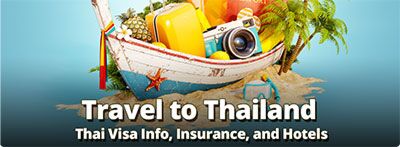
Required Documents for Travel to Thailand
Please have the following documents ready.
- Visa (if required)
- Buy Thailand Travel Insurance
- Flight Itinerary
- Hotel booking confirmation
- Vaccination record (if vaccinated)
- COVID-19 test result (if unvaccinated)
Incorrect documents will delay the entry screening to Thailand.
Buy Your Insurance Now
Travel Insurance to Enter Thailand
With Thailand very slowly reopening to visitors, one of the latest requirements for visitors is the mandatory COVID-19 insurance plan for foreigners that covers the traveler for a minimum of $10,000 (the Thai policies generally cover 350 thousand Thai baht). In addition to all the requirements, the traveler needs to obtain a Thailand Pass and a valid visa. This health insurance is another level of security to make sure that the traveler can cover all costs in case they are diagnosed with or die from COVID-19 during their stay in the kingdom.
Thai immigration officials are notoriously fastidious when it comes to paperwork, and will only accept policies from certain providers. Luckily, a consortium of insurance providers in Thailand offers COVID-19 insurance for foreigners planning to visit Thailand which will be accepted by immigration, and these policies can be purchased easily online. Although this could be seen as another opportunity to make some easy profits for the insurers, the policies are quite reasonably priced, depending on a few factors; let’s take a closer look.
Why is COVID-19 Insurance Required?
Whilst it may seem like just yet another hassle for beleaguered foreigners wanting to enter the country, there is good reason for the government to implement this requirement. One of the main reasons is that almost all standard health and travel insurance policies will not cover the insured against pandemics, hence will not cover you for anything to do with Covid-19. And with the costs of hospital treatment and possible repatriation, especially when considering the additional quarantine requirements to do with COVID-19, the Thai government is concerned about being lumped with a huge number of unpaid hospital bills from foreigners who come down with COVID-19.
The public health ministry of Thailand has quoted a figure for unpaid hospital bills of 448 million Baht ($14.9M) for the year up to September 2019, a huge sum. And with the threat of the coronavirus, they are concerned about this and don’t want to be stuck with another huge bill right when the economy is struggling because of the effects that the virus has had on tourism and exports. In essence, the requirement to hold one of these policies is an additional layer of security for the Thai government who is already dealing with a hammered economy as a result of the outbreak and subsequent decimation of the tourism industry which provided around a fifth of the country’s GDP.

What is the COVID-19 Coverage?
The COVID-19 insurance policy will cover the costs of isolation, quarantine, testing, and treatment, and the possible costs of repatriating your body in the unfortunate circumstance of you succumbing to the virus whilst in Thailand. It will also cover the cost of any medications prescribed to you as a result of being infected with the virus. The more comprehensive policies will also cover you for any losses incurred as a result of you catching COVID-19 such as lost travel bookings and trip cancellation or curtailment, be sure to check the small print of any policy before purchasing and, as always with insurance, don’t just opt for the cheapest policy.
Ultimately, most of these specialized insurance policies will comprise of three key components:
- Medical coverage. As mentioned this is a comprehensive package with a cap of a minimum of $10,000, covering all treatment costs associated with being infected with the COVID-19.
- Life insurance coverage. In an unfortunate circumstance of the insured dying from their confirmed COVID-19 infection, this covers them for a total of $10,000 which will be paid to the beneficiary stated in the policy.
- Any additional, unforeseen out-of-pocket expenses that arise as a result of you being infected with the virus. This could include lost travel bookings, flights, or any other expenses that arise from travel disruption or curtailment because of you becoming infected with the virus.
You must ensure that you retain the certificate of insurance as this will need to be shown to prove that you have the coverage, without it, you will not be granted entry into the country. Also, it should be noted that this policy will be in addition to any general health insurance policy that you may require to obtain your visa or retirement extensions.
COVID-19 Travel Insurance for Thailand
Unlike the mandatory health insurance for retirees, the COVID-19 insurance may be provided by an international insurance provider or by Thailand-based insurance providers. One of the COVID-19 insurance providers is AXA Thailand. They provide Inbound Travel Insurance for those who wish to secure Travel Insurance that covers COVID-19 as required for inbound travelers.
How To Purchase COVID-19 Travel Insurance?
This insurance is required to be allowed into the country so you will be purchasing this before you travel. The easiest way to buy your policy is online from one of the above providers who will then provide you with the all-important certificate of coverage to present to the authorities when you arrive (and you will also need to present it to the airline before they will allow you onboard). It’s quick and easy to do online, and you can choose your length of policy from 30 days to one year. Be sure that the policy covers the entire period that you are planning to stay in Thailand or you may be refused entry.
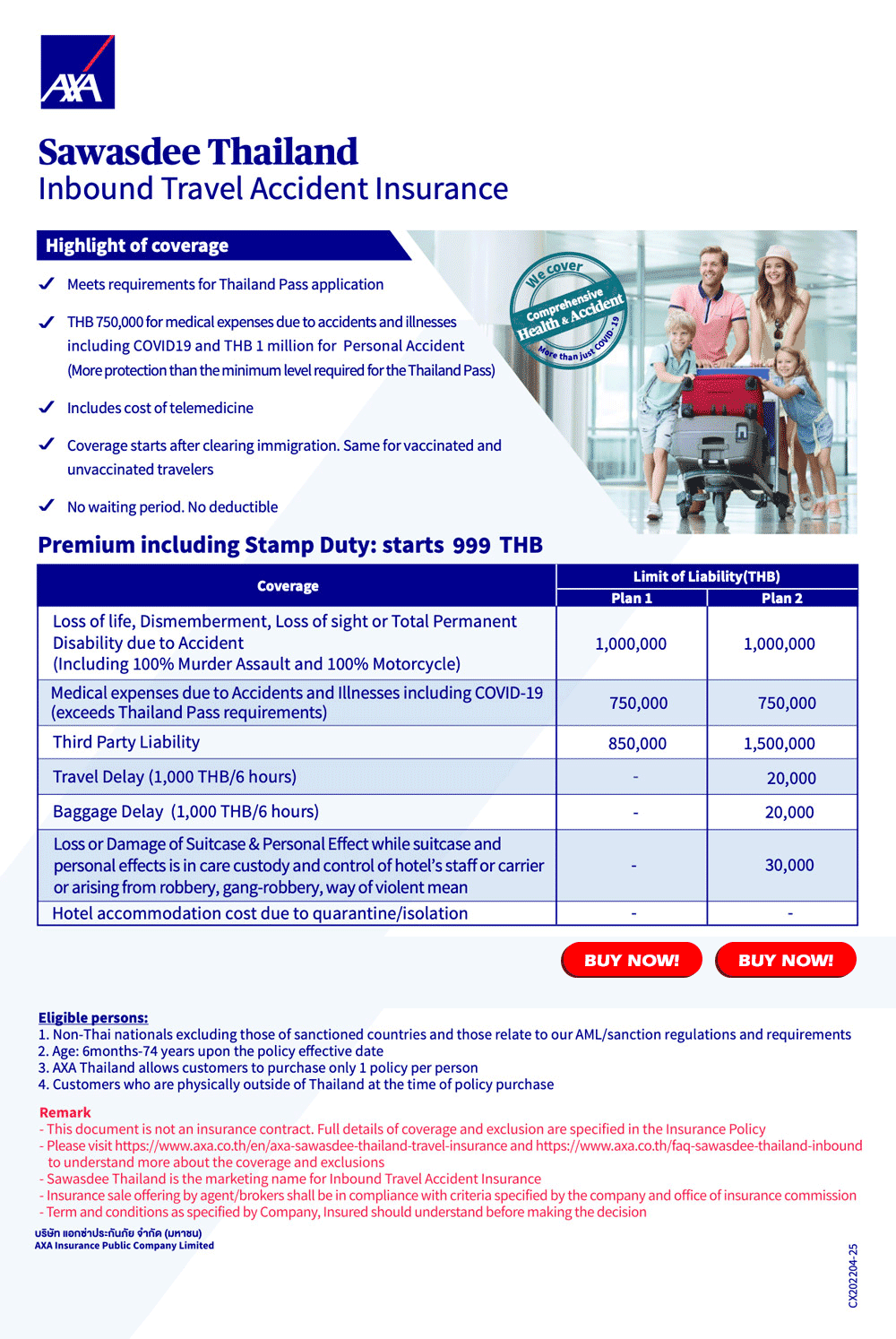
You may purchase COVID-19 travel insurance within a few minutes. Check the link below:

COVID Insurance Thailand Cost: Is It Expensive?
In a word, no, but it depends on a few factors. Although this is yet another burden and expense for foreign citizens trying to enter Thailand, it’s quite affordable. You can expect premiums to start from as little as 999 Thai baht for a policy. For the tourist visa or the non-immigrant visa application, the 90-day insurance coverage will cost 2,500 baht to 14,000 baht. As with all insurance policies, the premium will be determined by your circumstances, in this case, one of the most important factors is whether the country you are flying from is considered to be high or low risk for the virus.
Get your COVID-19 travel insurance for Thailand within few minutes.

Thailand COVID Insurance Requirement
The Thai Government has made it mandatory that foreign citizens entering Thailand have insurance coverage in case of medical needs during their stay. The insurance coverage becomes effective immediately upon your arrival in Thailand. Several foreigners have been reported to test positive for COVID-19 during their stay at the ASQ Hotel in Thailand . The COVID-19 Insurance Thailand for Foreigners completely covers their medical costs up to 350 thousand THB. You can purchase the insurance online in minutes using the Buy Now feature below. You will immediately receive the policy by email.
The cost of treatment for COVID 19 in hospitals in Thailand ranges from 700 USD to 1,000 USD per day, depending on the hospital. There may also be additional costs of staying in the intensive care unit (ICU). For foreigners who are positive for COVID-19, the cost of treatment and other medical expenses will be covered by the travel health insurance package. It is important to make sure that your insurance for Thailand covers the whole duration of your stay. Therefore, it is essential to purchase the best and reliable COVID 19 travel insurance for foreigners entering Thailand.
Other Thai Elite Visa Pages
Related posts.

How to Travel to Thailand in 2024

Best Places to Retire in Thailand for Couples

How to Retire in Thailand for Couples

Leave a comment Cancel reply
Your email address will not be published. Required fields are marked *
This form collects your name, email and content so that we can keep track of the comments placed on the website. By submitting this form, you accepted and agreed on our privacy policy and terms .
164 Comments
Me and Husband will be travelling to Thailand from 5th to 13th November. My husband and me have already paid for insurance with airlines. Do we need to buy additional insurance?

Dear Supriya,
The travel insurance you bought from the airline will be enough. Thank you.
Hi i’m visiting thailand for 8 days, but insurance package from AXA Thailand only provide 7 days or 15 days protection. is it ok if I only purchae the 7 days insurance since the price is doubled if I purchased the 15 days one. thanks

Hi Michella,
Yes that’s okay, but your eight day will not be covered.
For more information about travel to Thailand, please check this link: https://www.siam-legal.com/legal-guide/how-to-enter-thailand-2022-guide.pdf
I want Travel Pass Insurence for One Day , will be visiting bankok as Lay over time is about 18 hrs. Suggest best deal
You can get and check AXA, one of the most recommended https://direct.axa.co.th/TA-Inbound/CoverageOptionPlan?utm_source=Agent_Partner&utm_medium=Direct_SiamLegal&utm_campaign=Sawasdee_SiamLegal
Hello I am flying to Oman from Japan through Bangkok and will be at Suvarnabhumi airport for 5 hours. I took three vaccination shots. Do I still need to get the travel insurance and PCR test?
If you are fully vaccinated, just present your vaccination certificate and passport as requirements.
I am flying to Oman from Japan (Kansai airport) through Bangkok and will be at Suvarnabhumi airport for 5 hours (transit). I had three vaccination shots. Do I still need to get the travel insurance and PCR test?
Travel insurance is not compulsory but still highly recommended.
can you help me explain what are the requirements for entering Thailand? because I have plans to go to Thailand at the end of this month I’ve been vaccinated 3 times, I’ve booked a hotel
Is it mandatory to buy travel insurance?
Insurance is not compulsory but still recommended.
In terms of the dates to be indicated, do we only put the date range of our travel (i.e. Sept 5 to 11)? And if yes, would the insurance still covers us in case of hospitalization in Thailand starting Sept 11 onwards?
You can put your coverage atleast more than the days of your travel, so just incase anything happen afterwards you are still covered.
hello, I’m planning to take my family on vacation to Thailand next month.. my wife and I have been vaccinated 3 times, but my son, who is 3 years 5 months old, has not been vaccinated.. Can my child enter Thailand, or do I still need to do a PCR test for my child?
That would be fine, your children can enter without test if the parents are fully vaccinated.
Hi! We are travelling to Thailand in November this year from Holland with a stop over in Saudi Arabia. We have an international health travel insurance. Do we still need to get a Thailand Pass to enter Thailand? Hope to hear from you soon. Best, Valery
Insurance is not compulsory but still highly recommended.
I am flying to Sydney from London through Bangkok and will be at Bangkok airport for only 2 hours. I am 75 and am as vaccinated as it is possible to be 3rd booster shot was on 14th June prior to leaving Australia. I have never had Covid but take all precautions -masks, hygiene, social distance and full vaccination. Do I still need to get the travel insurance to get this Thailand Pass. (If it is that dangerous I will cancel the flight and rearrange my stopovers to avoid Thailand!)
Insurance is not compulsory but highly recommended.
hello! just transiting thru BKK but thinking of doing a layover tour. Still need insurance? Thanks.
It’s not mandatory but still highly recommended.
Hi I am a resident of Australia and travelling with my family of five via Thai Airways and making international transit through Bangkok. Is it mandatory to buy travel insurance, even though our transit stay is not more than 4 hours. Appreciate your quick response.
It’s not compulsory, but still highly recommended.
If I am already in Thailand and need a Covid-19 Insurance with immediate effect on the date of purchase, what would I do, where would I buy?
You can check AXA here’s the link https://direct.axa.co.th/TA-Inbound/CoverageOptionPlan?utm_source=Agent_Partner&utm_medium=Direct_SiamLegal&utm_campaign=Sawasdee_SiamLegal
I have a question iam traveling from Brisbane to Bankok and from Bankok Back to Brisbane is it necessary and when I buy a insurance can that be everything online and how long would it take time.
Insurance is not compulsory but still highly recommended. You can check this https://direct.axa.co.th/TA-Inbound/Index?utm_source=Agent_Partner&utm_medium=Direct_SiamLegal&utm_campaign=Sawasdee_SiamLegal
To be clear, a U.S. citizen will only need:
1. Valid passport 2. Vaccination records for COVID 3. Travel itinerary in Thailand with hotel confirmations
…to enter Thailand for a 3-week vacation, beginning in late October 2022? Thanks for your assistance.
Yes,you’re right. you can also include insurance if you want for safety, it’s not mandatory but highly recommended in any cases happen.
are singapore travel to thailand need covid insurance ?
Insurance is not compulsory but highly suggested.
Hi im travelling to Phuket from Malaysia on Aug 2 Can you advise me what do i need? do i need the travalling insurance and the Thai pass?
Hi Sunantha,
Thailand Pass has been waived and Insurance is not compulsory but highly recommended.
Hi if I stay in Thai airport for 4 hours 30 minutes transit .. I need travels insurance? I’m Bangladeshi and my destination South Korea
Insurance is not compulsory but still hight suggested.
Hi. I will be travelling from the UK to Philippines transiting via Thailand. Do I still need PCR and Travel insurance?
It is not mandated but we still highly recommended.
Hi. Is Thai pass still a requirement afterwards July 1st?
It’s no longer required.
I will travel to Melbourne AUS through Bangkok (2 hours transiting) on 2nd July 2022. Do I need to buy the insurance? Thanks.
It’s an optional.
Update! Starting from 1 July 2022, insurance with minimum 10,000 USD coverage will NO LONGER required?
Yes, you’re right. But we still highly recommended, better for your security. Thus, it’s up on you, it will be optional.
I am flying from Germany and transit in BKK with 2 kids (8 and 12 Years Old) 4 Hours Layover on 02.July.2022. Do I still need to purchase Insurance?
Insurance is optional starting on July 1st.
Is entering to Thailand the Covid travel insurance still requirement after July 1?
No, it’s optional starting July 1.
Good day, Please advise how accurate the Thai Pass Medical insurance cover must be. I have a quote for £8m (which with todays exchange rate is cover of USD 9 841,960.00) but this is not quite USD10m. I do not want to purchase the insurance cover and it is rejected by the Thai Travel Pass authorities and approval to travel is not given. (Traveller unfortunately is older than 74 yrs so cannot use the AXA insurance recommended). Thank you for advice please.
You can still check AXA what travel plan is better on your case.
Hi there, Why do we need to buy this for layovers? The terms of the insurance clearly state that coverage only starts after clearing immigration, which does not apply to passengers who are not going through immigration.
Yes insurance still required for layover.
Is AXA your only insurance provider for travel insurance? I was trying to buy for my 78-year old mother but the coverage covers only those born as early as 1947. What about those born earlier than 1947?
AXA is one of the best recommended provider. You can check your case with them, so they can give you better offer plan.
On a flight between Vienna and Sydney Australia,I will be transiting via Bangkok airport. Transit time is 2hrs arriving and departing on June 28/22. Do I still need travel insurance.
Is Thailand dropping the Covid travel insurance requirement starting July 1? Would that apply to transit passengers too?
Effective on July 1, it will be optional.
Hi, I am just transiting in Bangkok for 3 hours for my next connecting flight, do I need to purchase covid-19 insurance?
Hi I am a Singaporean citizen and fully vaccinated against COVID-19 I will be using Bangkok airport as a transit only . Do I need an insurance as I will remain in transit area only before I will take a next flight?
Yes, if you will enter for the month of June. If on July, it will be optional.
Thx for your answer, but i read everywhere that traveller need 10 000 $ insurance coverage, not 100 000 $. Excuse me for my insistence, but it’s really not clear and all insurances offer coverage of $10,000 for Thailand. So is it 10 000 $ or 100 000 $ ?
Hi Mathieu,
Yes it’s only USD 10,000
Hello,I am Theingi from Myanmar. I would like to know that is I will travel from Myanmar to Phuket and still 2 months.So do I need to buy insurance for 2 months or 3 months??
Your insurance should cover the length of your stay, but it still depending on you if you plan to add extension.
Hi, i asked visa and they ask 100 000 $ coverage for a non-O Visa. This is normal ?
Yes, that is the minimum requirements for all foreign travelers.
I have a O visa, and when I was at the Thai imagration office in Summit prakan they told me I can go in and out of Thailand without having covid insurance. Is this true? I do not want to get stuck at the airport. If it is true then how do I fill out the Thai pass
Hi Richard,
For all foreign traveler, they are require to get travel insurance with covid medical coverage of USD 10,000
hi, can foreigners buy this insurance? Thank you.
Yes, go on this site https://direct.axa.co.th/TA-Inbound/CoverageOptionPlan?utm_source=Agent_Partner&utm_medium=Direct_SiamLegal&utm_campaign=Sawasdee_SiamLegal
Hello, does Bangkok accept international insurance that i purchase from traveloka? in the term (detail of product) i dont see about covid cover. thanks
Hi Junaidi,
That’s okay , but it should meet the requirements for covid medical coverage of USD 10,000.
Hi. I am going to Thailand for a two-year Masters program. Do I need to buy the USD 10000 worth insurance from insurance agents in my home country or from a Thai service provider? Please help me.
One of our most recommended is AXA, here’s the link https://direct.axa.co.th/TA-Inbound/CoverageOptionPlan?utm_source=Agent_Partner&utm_medium=Direct_SiamLegal&utm_campaign=Sawasdee_SiamLegal
However, you can still get in any provider of your choice that would meet the requirements for covid medical coverage of USD 10,000.
Hello Can you tell me If I have Certificate of insurance Coverage with Respect to Overseas Travel Insurance Can we use it ,instead . Do I need to buy for Thai insurance ? Thanks
Your insurance should meet the requirements for covid medical coverage minimum of USD 10,000.
I am an expat living in Thailand for many years, but will travel outside of Thailand for 2 weeks next month. How do I buy Covid insurance that will allow me to reenter the country? These insurance say you cannot buy them if you live in Thailand.
Click this https://direct.axa.co.th/TA-Inbound/CoverageOptionPlan?utm_source=Agent_Partner&utm_medium=Direct_SiamLegal&utm_campaign=Sawasdee_SiamLegal .
I am having trouble getting insurance because aged 77 years need help
Hi Leonard,
You can contact the insurance provider, open this page https://direct.axa.co.th/TA-Inbound/CoverageOptionPlan?utm_source=Agent_Partner&utm_medium=Direct_SiamLegal&utm_campaign=Sawasdee_SiamLegal
Hi, is it still necessary to have an insurance that cover min. of 10,000 USD for COVID or no more covid insurance necessary? Thanks
Covid insurance was still required.
We have our own BUPA insurance coverage and it covers most of those required.
Can we use that instead?
Yes, that would be fine as long there’s a covid insurance coverage minimum of USD 10,000
do i need health insurance for transiting through Thailand?
Yes still needed.
Does Baby 10 month old need to buy the travel covid 19 insurance to enter thailand?
Hi Kristabella,
Yes , you can avail here https://direct.axa.co.th/TA-Inbound/CoverageOptionPlan?utm_source=Agent_Partner&utm_medium=Direct_SiamLegal&utm_campaign=Sawasdee_SiamLegal They cover age of 6 months and above.
I’m flying to Thailand from UK mid July and returning to UK mid August from Thailand but I want to visit Vietnam for a break in the interim. Will my Thailand covid medical insurance cover me for full month I’m in Thailand or will I have to renew it when I re-enter Thailand from Vietnam.
AXA can be use for single entry only.
Hi What is the excess you have to pay on these insurance policies ?
Excess in what policy please?
How much insurance coverage should a student going on a student visa need for the Thai Pass? Thanks
All foreign travelers are required to get a minimum coverage of USD 10,000 for their covid insurance.
Hi Rex, Do I need insurance for just flight exchange?? I will be staying in Bangkok Airport for just 2 and half hours. Thanks
For layover, yes still recommended.
Hello…I have a extremely good insurance that covers covid 19 worldwide and up to 15 million in medical expenses for my entire family…do I have to buy additional insurance from a Thai company… I find that very odd and seems like another money scam to help the Thai insurance companies…:)
You can use it , if it has coverage for covid medical treatment.
I’m travelling from Melbourne to London via Thailand. I will be waiting 8 hours in the airport between my flights. Do I still need insurance?
Hi there, My credit card has complimentary travel insurance with no cap on medical expenses. Does it satisfy the entry requirement or do we still need COVID-specific travel insurance?
Hi Randall,
It should have covid insurance with a minimum coverage of USD 10,000.
Hi Rex, My Wife and I are both aged 75. We have previously bought Axa Thailand Covid Insurance for previous 60 day Tourist Visas but cannot do so now because of our ages. The drop down length of stay on the covid 19 tgia.org website only allows for a 30 day Period of Coverage. What other reputable Insurance Companies would cover over 75s with Tourist Visas please?
Please check this site https://direct.axa.co.th/TA-Inbound/CoverageOptionPlan?utm_source=Agent_Partner&utm_medium=Direct_SiamLegal&utm_campaign=Sawasdee_SiamLegal
Do we need a covid insurance even if we are transiting passengers (5 hrs)? Travelling to India from Melbourne in July and returning via the same route on Thai Airways (only transit in BKK) Also I understand there is a free covid insurance for Australian passport holders travelling on Thai Airways, does that apply to NZ passport holders too?
Thanks in Advance
Yes, with a minimum coverage of USD 10,000.
Hi there I am travelling SYD-LHR via BKK and will be in the city for less than 24 hours on 6 june 2022. Do I still have to buy the covid19 medical insurance or is there a waiver for people transiting? I have my own travel insurance but it does not cover the virus.
Hi Georgie,
Yes, still recommended to have covid insurance for transited flights .
Rex, I’m 74 and reside in Thailand with ‘O’ visa (1 year). I just travelled and had to buy travel insurance for return. I’m travelling again in June so knew the interval of my stay in Thailand. I travel frequently but irregularly. I’m confused that I need travel insurance to return to my home (where insurance is not required). How can I buy a policy in thailand that covers frequent exit/entry and living in Thailand?
Travel insurance with your covid coverage is just a single entry.
I am a US CZ traveling to thailand June 24-27 2022. I have proof of my health insurance from America. Would that be sufficient or do I still need to buy additional health insurance policy to enter Thailand? I have already been approved for the Thailand pass by providing health insurance from America. Thank you!
Hi American tourist,
It should have covid medical coverage minimum of USD 10,000.
Hi, I plan to travel to Thailand from India, stay for 15 days, go to Cambodia and come back to Thailand for a week before flying back to India. As an Indian citizen, I am eligible for a 15 day visa on arrival, and since I will be entering the country 2 times, I will be applying for the visa on arrival and Thai pass 2 times.
The entire duration of my travel will be 28 days. Would it work if I purchased a 30 day covid insurance and use it for both the times I apply for the Thai pass or would I be required to purchase 2 policies of 15 days each before each entry to Thailand.
Yes, separate every entry.
Do I need Thailand Insurance for COVID even if I am in transit at Bangkok airport?
My Birthday is 07/11/1940 I frequently travel to Thailand 2 times a year this year I will travel to Bangkok late June for 4 weeks and than again mid November this year again for 4 weeks I have the Australian Government COVID pass and I have my personal Goverment Antigen Rapit Test { Nasal Swob Please send me costing for your Travel Insurance Peter Schmidt
For foreign traveler, we highly recommended AXA for travel insurance with covid medical coverage https://direct.axa.co.th/TA-Inbound/CoverageOptionPlan?utm_source=Agent_Partner&utm_medium=Direct_SiamLegal&utm_campaign=Sawasdee_SiamLegal
Hi There My mum is going to transit from thailand. She is coming from melboune and going back to Turkey however in transit she will be in Bankhkok for 3 hours. Does she need a covid insurance just for transit
Hi Melissa,
Do you accept family plan for travel insurance?
Hi William,
Yes, make sure all names of members were included in the certificate.
Hello! Would you please advise if i still need an insurance, even just transit for few hours in Thailand, not entering the nation.
Do you accept a family insurance plan?
Yes, Check here https://direct.axa.co.th/TA-Inbound/CoverageOptionPlan?utm_source=Agent_Partner&utm_medium=Direct_SiamLegal&utm_campaign=Sawasdee_SiamLegal
Do children under 18 also need travel insurance? Thanks!
Dear Jessica,
Foreigners whether child or adult are required to have COVID insurance in order to get approval of Thailand Pass. Thank you.
My birth date is 1 August 1940 & my wife’s is 24 June 1945. The AXA insurance site does not allow for these older birth dates. What do we do?
We depart Australia on 1 July 2022 & depart Thailand for Australia on 30 July 2022.
We will be 29 nights in Thailand.
Please advise.
Dear Donald,
You may check this page as alternative: https://covid19.tgia.org/ Thank you.
I am 75 years old,coming from Spain in may.Do you have the mandatory $20.000 insurance for me for a period of about 2 weeks?
Yes, you still need to have a COVID insurance in order to get a Thailand Pass. You may get an insurance for 75 years old or above on this page: https://covid19.tgia.org/ Thank you.
Hi. I’m from MALAYSIA. Can I use my own MALAYSIA’s insurance to apply the Thailand Pass ?
Your insurance policy must have cover for Covid-19 and hospital expenses in Thailand.
Hi Rex, as a Turkish citizen who is Special passport holder which is allowed for 90 days without visa by Thai government; if I only wanna stay there like 30 days, should I still buy 60 days insurance or 30 is enough? And is return/out ticket from country is mandatory? Big thank you.
Good day. If you have a return flight, you can buy an insurance valid from date of entry and date of exit from Thailand. Yes, exit flight is required to determine the validity of the insurance that you need. To buy the insurance, please visit http://www.siam-legal.com/axa-insurance
Hi Rex, can I use the COE COVID-19 insurance to apply for the Tourist Visa (60days)? Are they the same? Thanks!
Dear Delson, Good Day! Yes, you can use the same insurance. You just have to make sure that the insurance will cover the validity of your visa or your stay in Thailand. To purchase the correct insurance please go to: http://www.siam-legal.com/axa-insurance Thank you!
I am entering on a Non immigrant B visa which is valid for 1 year.
Can I enter with 90 days insurance and renew it when I am in Thailand? Or do I have to have a 1 year insurance in order to enter Thailand?
Dear Zach, Good day. If your 1 year non immigrant B visa was issued by a Thai Embassy with multi entries, you are only permitted to stay for 90 days per entry correct? You can use a 90-day COVID 19 Insurance. Please check this page to purchase the insurance: https://www.siam-legal.com/axa-insurance Thank you.
The AXA website isn’t working
Dear Jacky, Good day. I checked the links on this page, the links are working. Thank you.
Thanks for awesome and timely responses to questions on this platform
If I want to travel to Thailand from Nigeria for an holiday. What’s the procedure. Thanks
Dear Adediran, Thank you for your comment. Please check our Guide on How to Enter Thailand in 2021 on this page: https://www.thaiembassy.com/travel-to-thailand/how-to-travel-to-thailand-in-2021 Have a good day.
Hello, Is it really necessary to purchase this insurance *before* submitting the “Pre-approval” COE application? This seems risky. I am from a visa-exempt country, but if my application is rejected for some other reason, I will have wasted the money spent on the premiums.
Dear Michael, Good day. Yes, on the part one of the COE Application, the insurance is required. If you are going to apply for the Visa Exemption, it is very likely that it will be approved as long as your have a flight exiting Thailand within 45 days, you have an ASQ and your Insurance is valid for 60 days. Thank you.
Hi there Please contact me I need coe visa Thanks
Dear Fadil, Please check this page: https://www.thaiembassy.com/thailand-visa/coe-thailand It has a comprehensive instruction on how to apply for COE. Thank you.
I have sent relevant pages to COE my Insurance Certificate, clearly sets out, that it cowers 100,000 USD For Covid -19 Just received, notification my application has been rejected, in reference to above, not sure, what to do, wont help to send Certificate again. Kind regards Leif
Dear Leif, The only wait this insurance will be rejected is for the reason that your visa is under category O-retirement or category OA or OX visa. Thank you.
Hi I’m traveling from US with my 15-year daughter to Thailand. Can you please confirm if I and my daughter can be quarantined in the same room ?
Dear Kulwant, Good day. Yes, parents and children can stay in one room. You may consider a Family Room. Please check this page for more information: https://www.thaiembassy.com/asq-hotels/courtyard-by-marriott-bangkok Thank you.
when can i come to thai;and as a vistor and a hoiladay
Dear Mick, You may now travel to Thailand for holiday. You can apply for the 45-day Visa Exemption and COE. Please check this page for the information: https://www.thaiembassy.com/thailand-visa/coe-thailand Thank you.
I come on a tr visa to Thailand and want to switch to ed visa for one year. Can i get a covid insurance for 90 days, and when i switch to ed visa in thailand a insurance for 365 days?
Dear Pieter, Yes, 60-day or 90-day COVID 19 insurance is enough for your visit to Thailand. Once you have successfully entered Thailand, if you wish to switch to ED visa, the COVID 19 insurance will not be required by the local immigration office. Thank you.
And what if have tr visa and change to ed visa, and stay for one year then it will be expensive?
Dear Pieter, You only need the COVID 19 insurance for the duration of your TR visa. In that case, you only need 60-day insurance policy. Thank you.
hi i am looking to have a health insurance for 60 days that cover covid 19 for visiting thailand
Dear Os, Good day. You may purchase COVID 19 Insurance and receive the certificate within minutes. Please check this page: https://u.axa.co.th/Sawasdee_Siamlegal Thank you.
Hello. Do i need to print out all the certificates, ir just by having them on My phone (digital) is enough?
Better to prepare hard copy , it makes your transaction faster.

IMAGES
VIDEO
COMMENTS
If your travel plans in Thailand include outdoor activities, take these steps to stay safe and healthy during your trip. ... Consider learning basic first aid and CPR before travel. Bring a travel health kit with items appropriate for your activities. Heat-related illness, such as heat stroke, can be deadly. Eat and drink regularly, wear loose ...
Vaccinations and health risks. At least 8 weeks before your trip check: Health risks in Thailand include: See the 'Other risks' section of the TravelHealthPro Thailand guide for more on health ...
The COVID-19 pandemic wreaked havoc on the world. International travel ground to a halt and countries were forced to implement strict processes and entry requirements to halt the spread of the virus. Thailand introduced quarantine measures and Thailand Pass. Thailand Pass required visitors to register details like vaccination status, flight, and hotel bookings, and confirmation
If you decide to travel to Thailand: Enroll in the Smart Traveler Enrollment Program (STEP) ... Visit the CDC page for the latest Travel Health Information related to your travel. Prepare a contingency plan for emergency situations. Review the Traveler's Checklist. Yala, Pattani, Narathiwat, and Songkhla Provinces - Level 3: Reconsider Travel.
In 2020, an estimated 12% of men who have sex with men, and 3% of sex workers (≈4% of male sex workers and 1.7% of female sex workers) in Thailand were living with HIV. Travelers should be aware of the risks of acquiring HIV and other STIs in Thailand, always use condoms during sex, and avoid injecting drugs or sharing needles.
During this COVID-19 crisis in Thailand, some foreign nationals may find themselves overstaying in Thailand, do so by mistake, by miscalculating the length of their stay, forgetting their visa expiration date, or by unforeseen cancellation of their flights due to travel restrictions. As a traveler, you should strongly avoid overstaying in ...
The information on these pages should be used to research health risks and to inform the pre-travel consultation. Due to COVID-19, travel advice is subject to rapid change. ... On 22 February 2024, the Ministry of Public Health, Thailand has reported a total of 73 Zika virus cases and no deaths across 19 provinces in Thailand in 2024. Source: ...
Thailand's entry requirements from 1 July 2022. Thailand Pass removed, Also lifting an US$10,000 health insurance requirement, thus welcoming all travellers with proof of either a certificate of vaccination or a pre-arrival negative RT-PCR or professional ATK test result. Learn More & Suggestion. Traveller's Journey.
Novel Coronavirus (COVID-19) getting to Thailand. WHO is continuously monitoring and responding to this outbreak. This document will be updated as more is known about COVID-19, how it spreads and how it is affecting people worldwide. If you are traveling to Thailand, please visit Department of Disease Control, Ministry of Public Health's ...
After months of strict travel restrictions due to the COVID-19 pandemic, Thailand is gearing up for a return to normalcy by easing some travel restrictions and quarantine requirements and allowing normal tourists to enter the country. Vaccinated travelers are allowed to travel to Thailand without quarantine under the Phuket Sandbox and the Samui Plus Sandbox programs.
Call us in Washington, D.C. at 1-888-407-4747 (toll-free in the United States and Canada) or 1-202-501-4444 (from all other countries) from 8:00 a.m. to 8:00 p.m., Eastern Standard Time, Monday through Friday (except U.S. federal holidays). See the State Department's travel website for the Worldwide Caution and Travel Advisories.
Advice for All Destinations COVID-19. Read the information on the COVID-19: Health Considerations for Travel page for advice on travelling during the COVID-19 pandemic.. Vaccinations and malaria risk. Review both the Vaccination and Malaria sections on this page to find out if you may need vaccines and/or a malaria risk assessment before you travel to this country.
Global Health Security. CDC supports Thailand to continue strengthening local capabilities to prevent, detect, and respond to infectious disease outbreaks, achieve the goals outlined in the Global Health Security Agenda (GHSA), and implement the International Health Regulations.Thailand is a member country of GHSA, a permanent member of the GHSA Steering Group, and served as the Chair of the ...
Ambulance and Emergency Services. For a public ambulance in Thailand, call 1669. Response time is usually 10 minutes in cities and 30 minutes in rural areas. For a private ambulance in Bangkok, call 66-2-667-2999 (Bumrungrad International Hospital) or 66-2-712-7007 (Samitivej Hospital).
Customer Reviews. Passport Health - Travel Vaccines for Thailand. Overall rating: 5 stars - 15 reviews. ★★★★★. "Great experience". "The nurse was very professional and knowledgeable about what we needed to safely travel to Thailand.
Consult a health care professional or visit a travel health clinic before travelling to discuss your options. It is recommended to do this 6 weeks before travel, however, it is still a good idea any time before leaving. Protect yourself from mosquito bites at all times: • Cover your skin and use an approved insect repellent on uncovered skin.
As mentioned earlier, the Health Declaration Form or the T8 form is just one of the requirements. Listed below are the other requirements: For Thai Citizens/Nationals returning to Thailand: Confirmed booked flight. Medical or Health certificate issued at least 72 hours before the intended date of departure.
Advice. Travellers'. Diarrhea Kits. Available. Thailand is a popular destination with its tropical climate, food, culture and beaches. Thai is the official language of Thailand. But, other smaller languages spoken in rural areas. The primary religion of Thailand is Buddhism and is prevalent in many aspects of culture throughout Thailand.
Silver. $42. $0 / $500. $25k / $100k. A more comprehensive travel insurance policy that covers trip cancellation and trip interruption will be a bit more expensive. Our quotes from the same ...
More. Learn about CDC's Traveler Genomic Surveillance Program that detects new COVID-19 variants entering the country. Sign up to get travel notices, clinical updates, & healthy travel tips. CDC Travelers' Health Branch provides updated travel information, notices, and vaccine requirements to inform international travelers and provide ...
Many Americans travel to Thailand for its centuries-old culture, sandy white beaches, exotic food, floating markets, world-class accommodations and vibrant nightlife. Having a reliable travel ...
With Thailand very slowly reopening to visitors, one of the latest requirements for visitors is the mandatory COVID-19 insurance plan for foreigners that covers the traveler for a minimum of $20,000 (the Thai policies generally cover 750 thousand Thai baht). In addition to all the requirements, the traveler needs to obtain a Thailand Pass QR code and a valid visa.
The Meteorological Department of Thailand issued a warning of thunderstorms across 26 provinces, accompanied by strong gusts in some areas. Amidst scorching heat, temperatures are expected to soar as high as 41 degrees Celsius today, April 22. A low-pressure system caused by intense heat covering the upper part of Thailand is contributing to the generally hot to very hot weather conditions ...